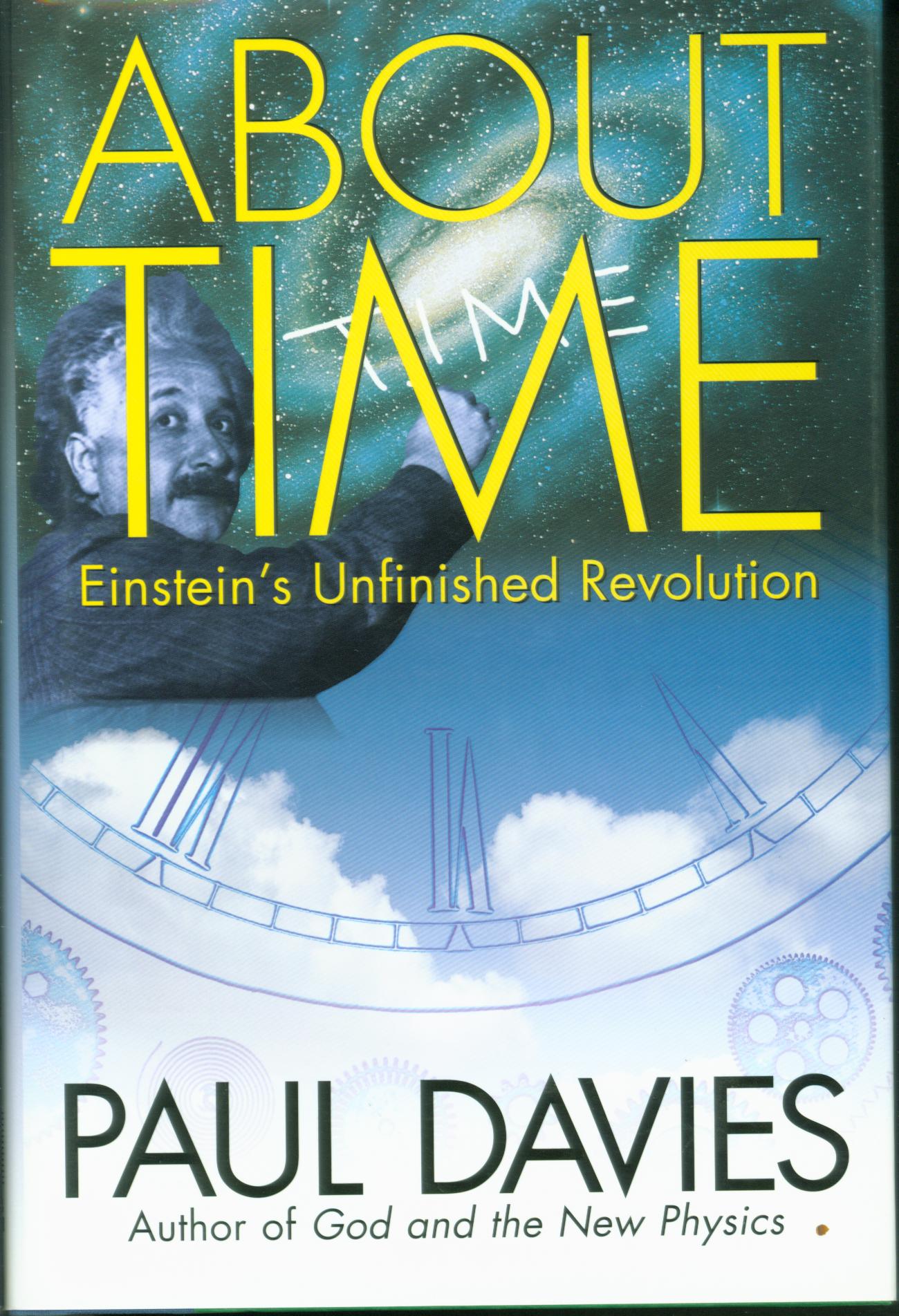 ABOUT TIME: Einstein's unfinished revolution--cloth. by Paul Davies.
ABOUT TIME: Einstein's unfinished revolution--cloth. by Paul Davies.
Examines the deep mysteries of time, consequences of
relativity theory, latest theories. Time has been discovered to be elastic and can be warped by gravitation and rapid motion and that time cannot meaningfully be divided into past present, and future, nor does time flow in the popular sense. From black holes where time stands still to the world of quantum physics where time vanishes completely--current theories of time simply don't add up. Drawings, 316 pages, index.
Inventory = 1. ISBN: 0-671-79964-9. 1995. Order #: SISC4576 cloth$24.00.
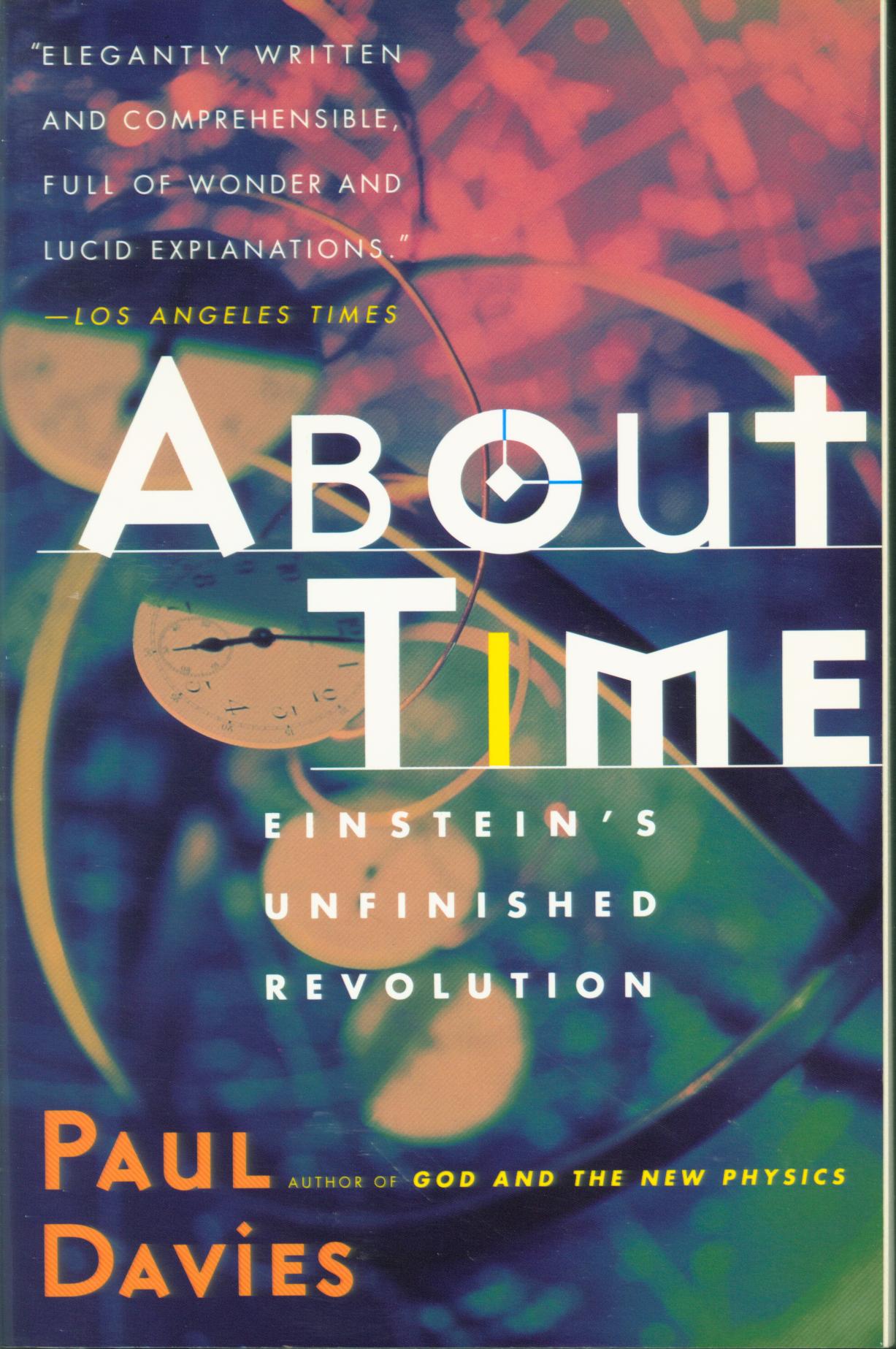 ABOUT TIME: Einstein's unfinished revolution--paper. by Paul Davies.
ABOUT TIME: Einstein's unfinished revolution--paper. by Paul Davies.
Explores the riddle of time, examining the consequences of Einstein's theory of relativity, with suggestions about what further research might reveal. Discusses the big bang theory, chaos theory, and that the universe may be younger than some of the objects in it. Explores universal questions such as "Does the universe have a beginning and an end?", "Is the passage of time merely an illusion?", "Is it possible to travel backward--or forward--in time?" Diagrams, 316 pages, index.
Inventory = 1. ISBN: 0-684-81822-1. 1995. Order #: SISC1567 paper$14.00.
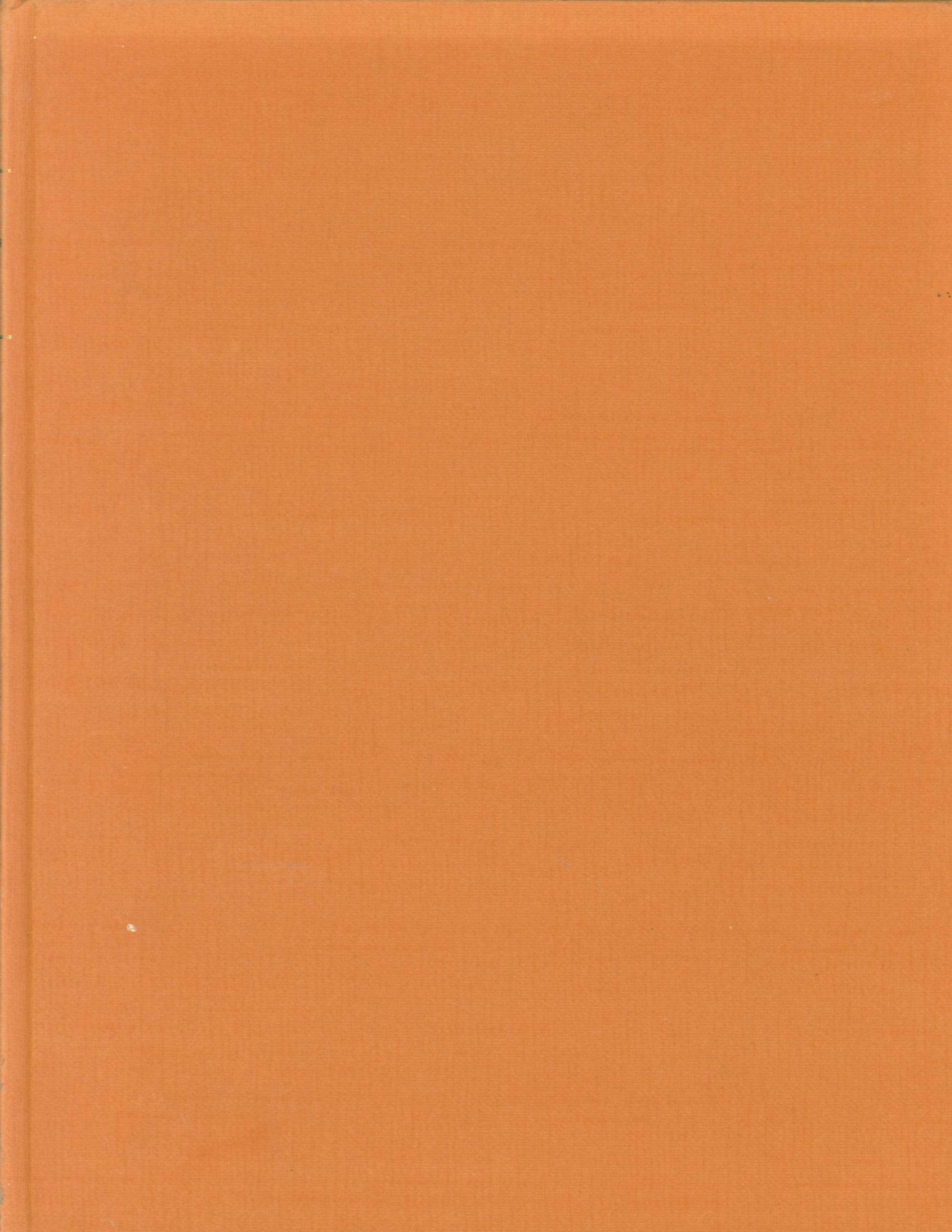 AN AGE OF CAMERAS. by Edward Holmes.
AN AGE OF CAMERAS. by Edward Holmes.
Traces the historic evolution of cameras from the first large and cumbersome machines, with chapters on "The Coming of Kodak," "The Reflex Principle", "The Double Cameras", "Detective Cameras", "The Roll Film Boom," "Cameras with Two Eyes", "The Coming of the Miniature", and more. Photographs, 159 large-format pages.
Inventory = 1. ISBN: 0-85242-346-2. 1974. Order #: FOUN3416 cloth$14.95.
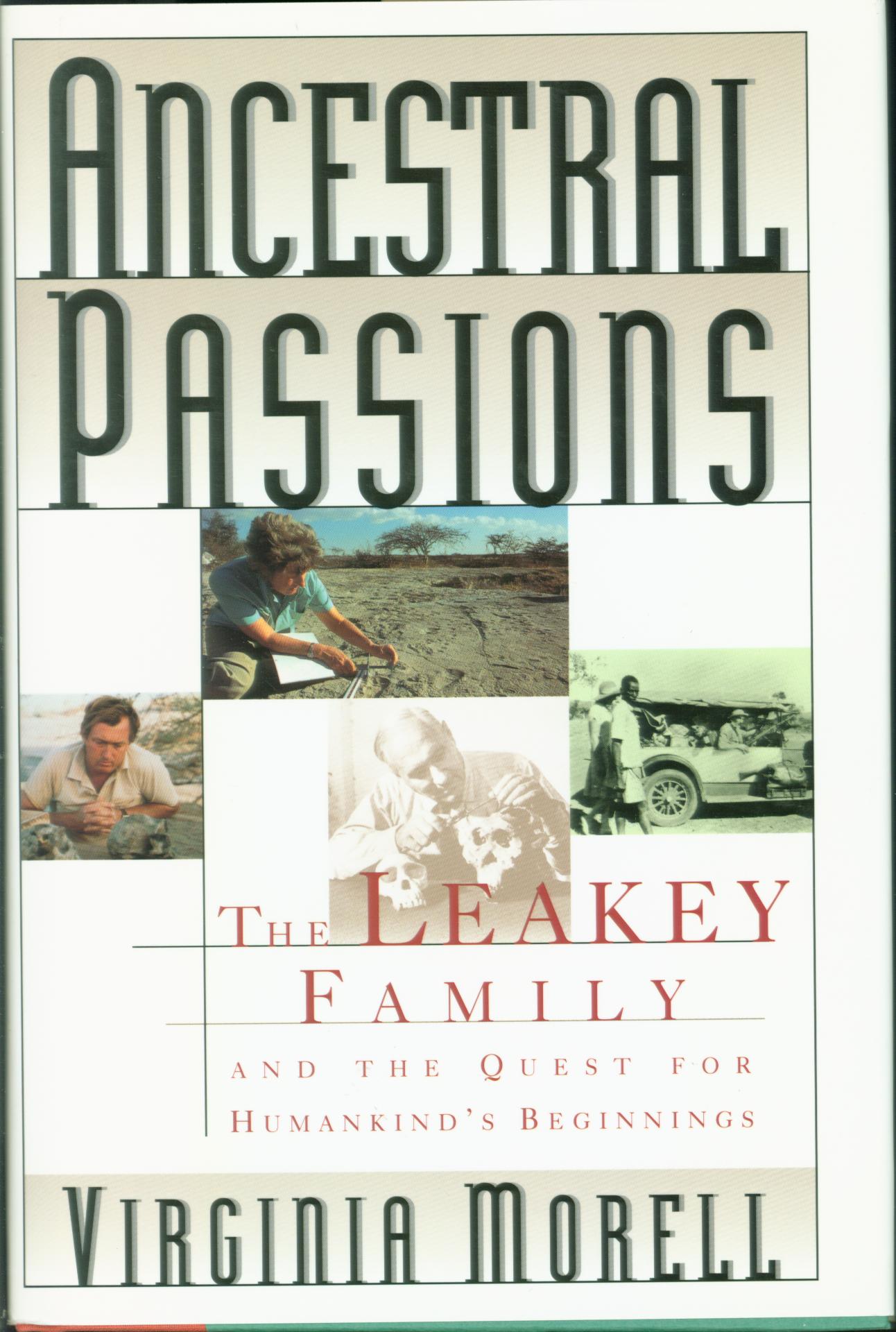 ANCESTRAL PASSIONS: the Leakey family and the quest for humankind's beginnings--cloth. by Virginia Morell.
ANCESTRAL PASSIONS: the Leakey family and the quest for humankind's beginnings--cloth. by Virginia Morell.
Biography of family making unique and enduring contributions to knowledge of human origins through excavations in Africa as the cradle of the human species--with sidelights on the development of the science of paleoanthroplogy over an eventful half-century.
Notes, bibliography, 640 pages, index.
Inventory = 1. ISBN: 0-684-80192-2. 1995. Order #: SISC6038 cloth$30.00.
![]() ANCESTRAL PASSIONS: the Leakey family and the quest for humankind's beginnings--paper. by Virginia Morell.
ANCESTRAL PASSIONS: the Leakey family and the quest for humankind's beginnings--paper. by Virginia Morell.
Biography of family making unique and enduring contributions to knowledge of human origins through excavations in Africa as the cradle of the human species--with sidelights on the development of the science of paleoanthroplogy over an eventful half-century. Notes, bibliography, 640 pages, index.
Inventory =1. ISBN: 0-684-82470-1. 1996. Order #: SISC8852 paper$16.00.
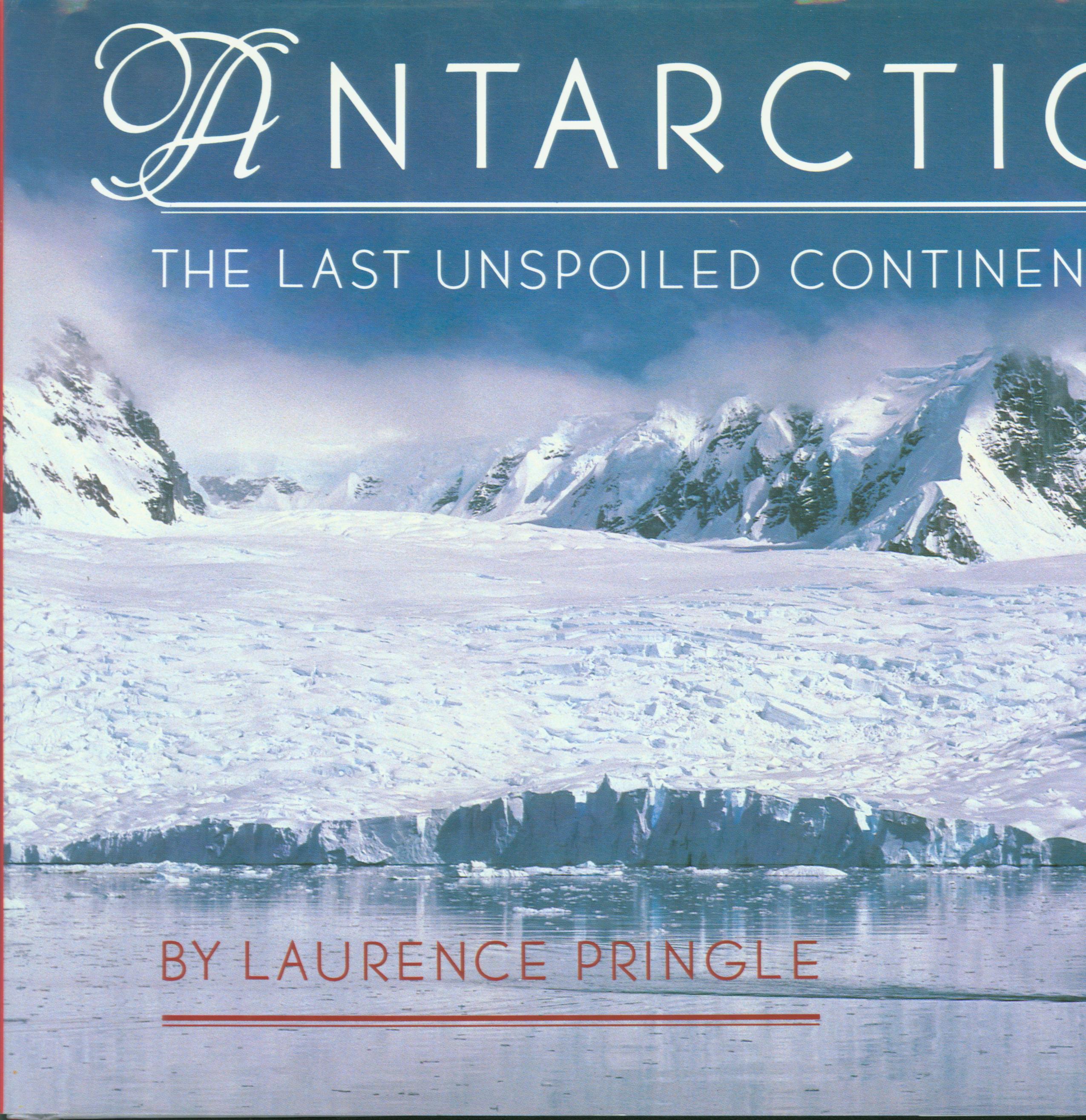 ANTARCTICA: the last unspoiled continent. by Laurence Pringle.
ANTARCTICA: the last unspoiled continent. by Laurence Pringle.
Introduction to the ice, life, and human use of this land at the south pole. Two-thirds of the Earth's water is locked here in frozen glaciers,. Covers claims of territory by nations, wildlife including penguins and whales, operation of science bases and research projects. Color photos, 56 large-format pages, index.
Inventory =1. ISBN: 0-671-73850-X. 1992. Order #: SISC6011 cloth$15.00.
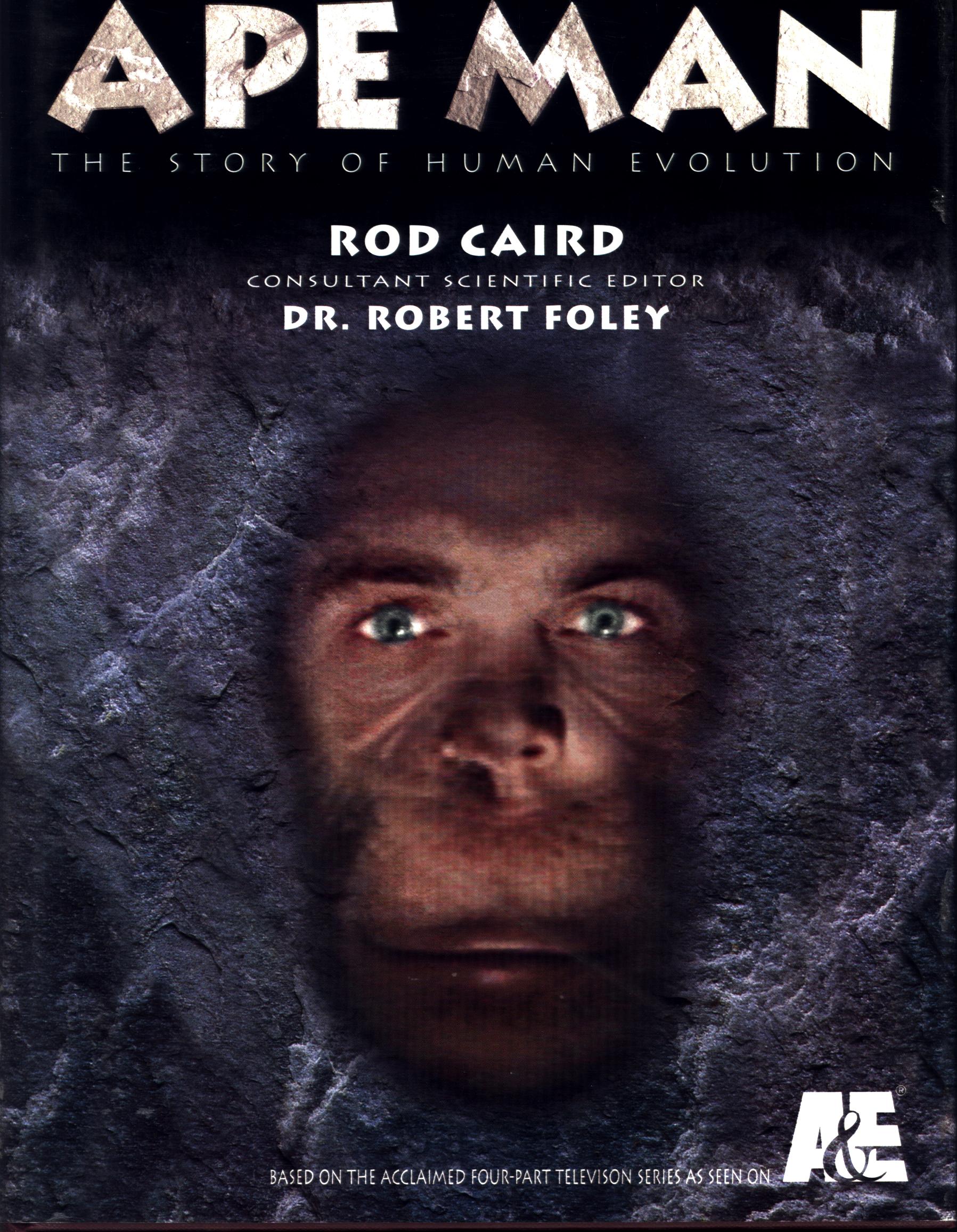 APE MAN: the story of human evolution. by Rod Caird with Dr. Robert Foley.
APE MAN: the story of human evolution. by Rod Caird with Dr. Robert Foley.
Explores our origins: traits
making us human, our brains, use of language, art. Where did we come from? What features set us apart from near relatives? What made us stand up straight and walk on two legs? Why did we develop our big and powerful brains? When and why did we start to use language? What made us begin to create pictures, sculptures and symbols? What makes us human? What has happened to the many other human-like species from the past and why did we continue instead of them? Considers fossil and archaeological evidence in answering these and other questions. Color photos, 192
large-format pages. See sample pages, illustrations.
Inventory =1. ISBN: 0-671-50146-1. 1994. Order #: MACM8533 cloth$30.00.
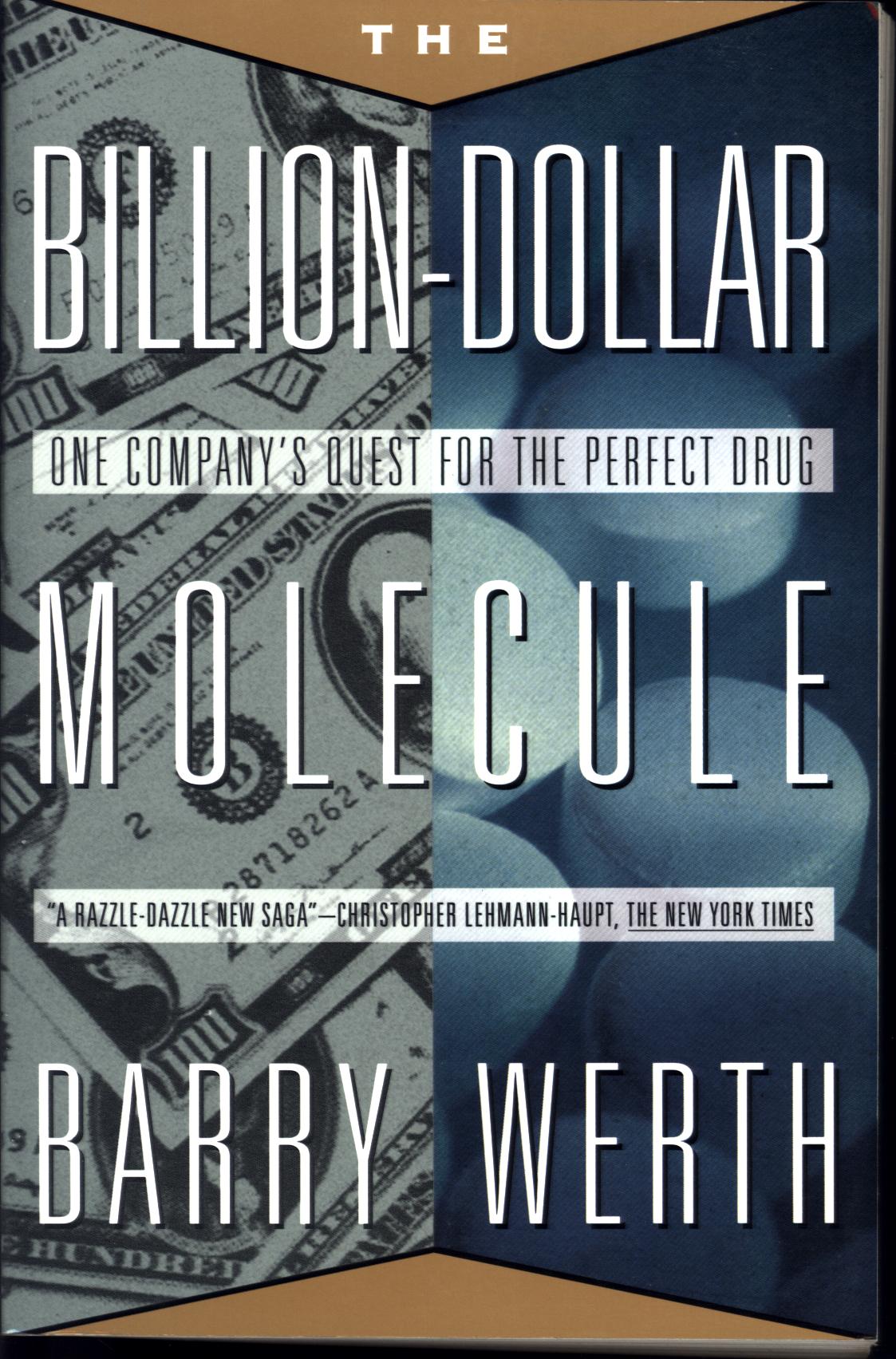 THE BILLION-DOLLAR MOLECULE: one company's quest for the perfect drug--paper. by Barry Werth.
THE BILLION-DOLLAR MOLECULE: one company's quest for the perfect drug--paper. by Barry Werth.
How science and business have interacted in the search for a virus-suppressing drug. A company named Vertex was created to design drugs--not merely appropriate them from nature and tinker with them--but design them atom by atom. The process requires accomplished and dedicated scientists, and venture-capital fund-raising to keep the project going. 448 pages, index. For cloth edition see SISC0992.
Inventory =1. ISBN: 0-671-51057-6. 1994. Order #:SISC4580 paper$14.00.
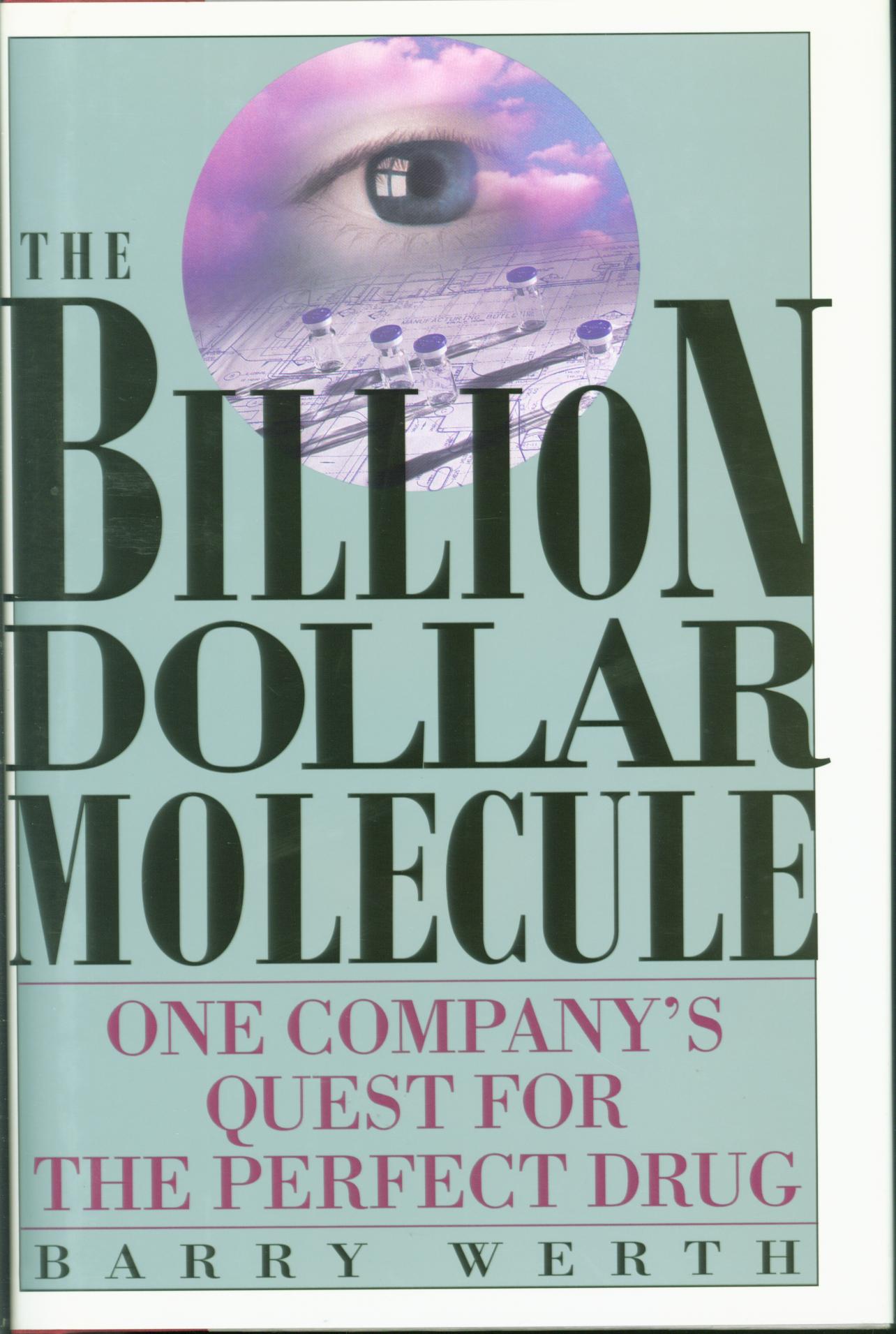 THE BILLION-DOLLAR MOLECULE: one company's quest for the perfect drug--cloth. by Barry Werth.
THE BILLION-DOLLAR MOLECULE: one company's quest for the perfect drug--cloth. by Barry Werth.
How science and business have interacted in the search for a virus-suppressing drug. A company named Vertex was created to design drugs--not merely appropriate them from nature and tinker with them--but design them atom by atom. The process requires accomplished and dedicated scientists, and venture-capital fund-raising to keep the project going. 448 pages, index. For paper edition see SISC4580.
Inventory =1. ISBN: 0-671-72371-8. 1994. Order #: SISC0992 cloth$25.00.
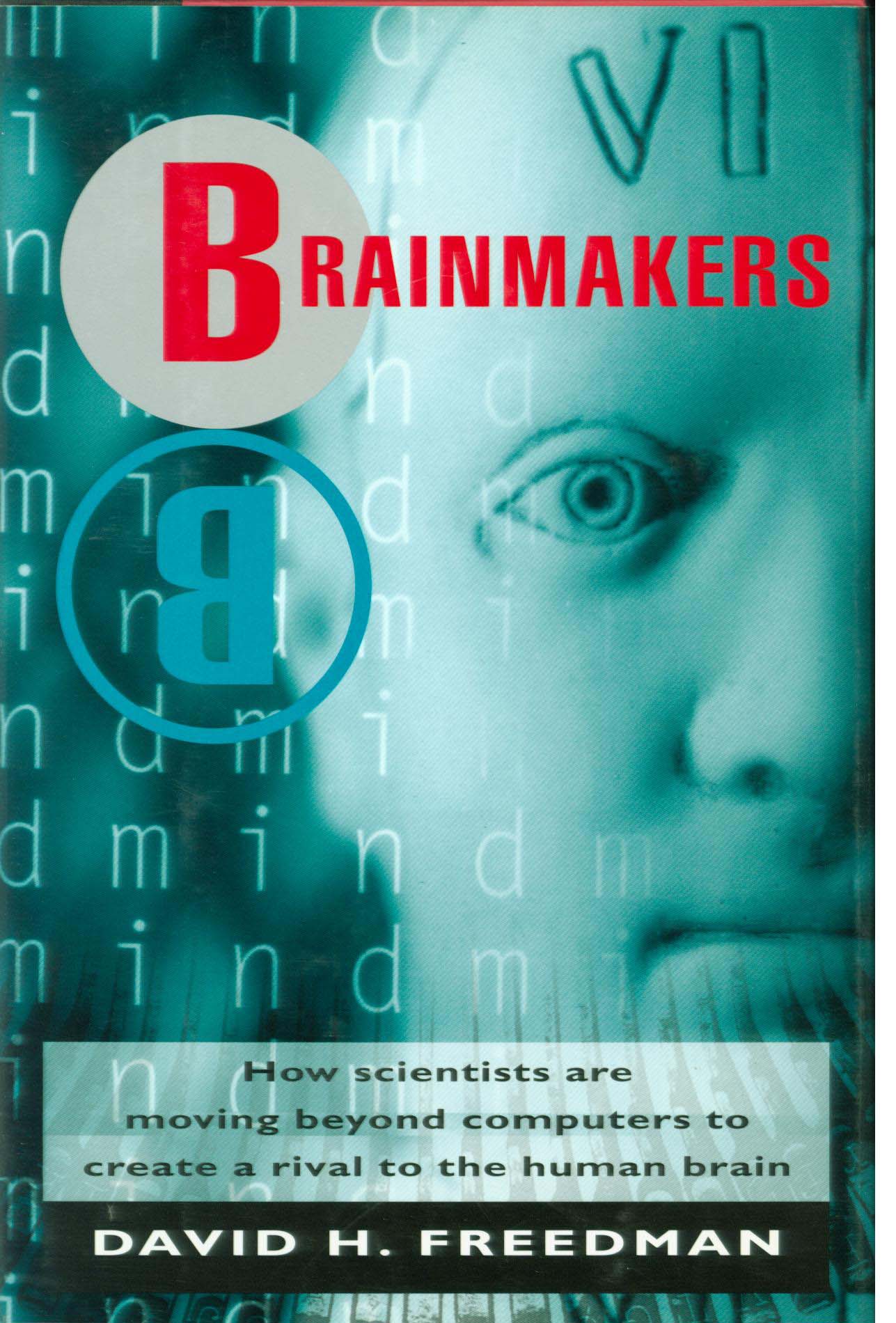 BRAINMAKERS--cloth. Freedman.
BRAINMAKERS--cloth. Freedman.
How scientists are moving beyond computers to create a rival to the human brain. Documents a new approach to artificial intelligence in an account of the revolutionary research taking place around the world aimed at creating devices that are more like living brains than computers; jarfuls of chemicals that recognize patterns and act like a primitive life form, a computer chip fashioned out of living brain cells, a robot farm, a machine that experiences human-like brainwaves and mental disorders. 224
pages.
Inventory =1. ISBN: 0-671-76079-3. 1994. Order #: SISC4579 cloth$22.00.
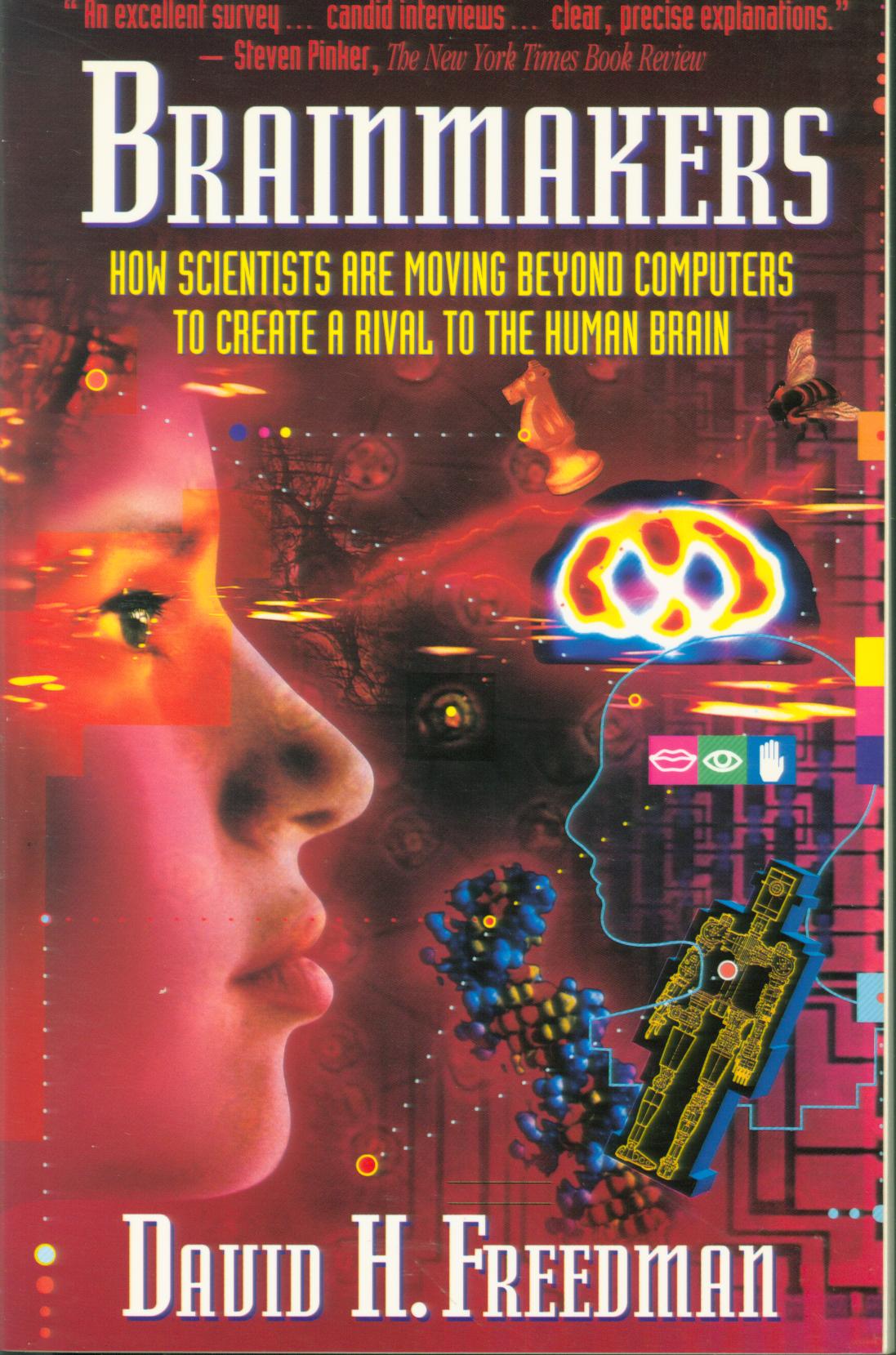 BRAINMAKERS--paper. by David H. Freedman.
BRAINMAKERS--paper. by David H. Freedman.
How scientists are moving beyond computers to create a rival to the human brain. Take a tour behind the scenes at laboratories around the world as top researchers race to create revolutionary "thinking machines" that one day may lead to a new form of intelligence from neuroscience and robotics.224
pages, index.
Inventory =1. ISBN: 0-671-51055-X. Order #: SISC6012 paper$12.00.
 CERAMIC HOUSES & EARTH ARCHITECTURE: how to build your own. by Nader Khalili.
CERAMIC HOUSES & EARTH ARCHITECTURE: how to build your own. by Nader Khalili.
With text full of experiential advice, technical guidance, and encouragement to those who would search for cheap, durable, attaining housing for much of the world. Chapters include Structural Principles and Basic Forms of Design;, Adobe; How to Build Arches, Domes, and Vaults; Roofing; Flooring; Landscaping; Visions for the Future. Photographs and drawings, 237 pages, index.
Inventory=1. ISBN: 1-87819-02-0. 1990. Order #: MISC2798 paper$19.95.
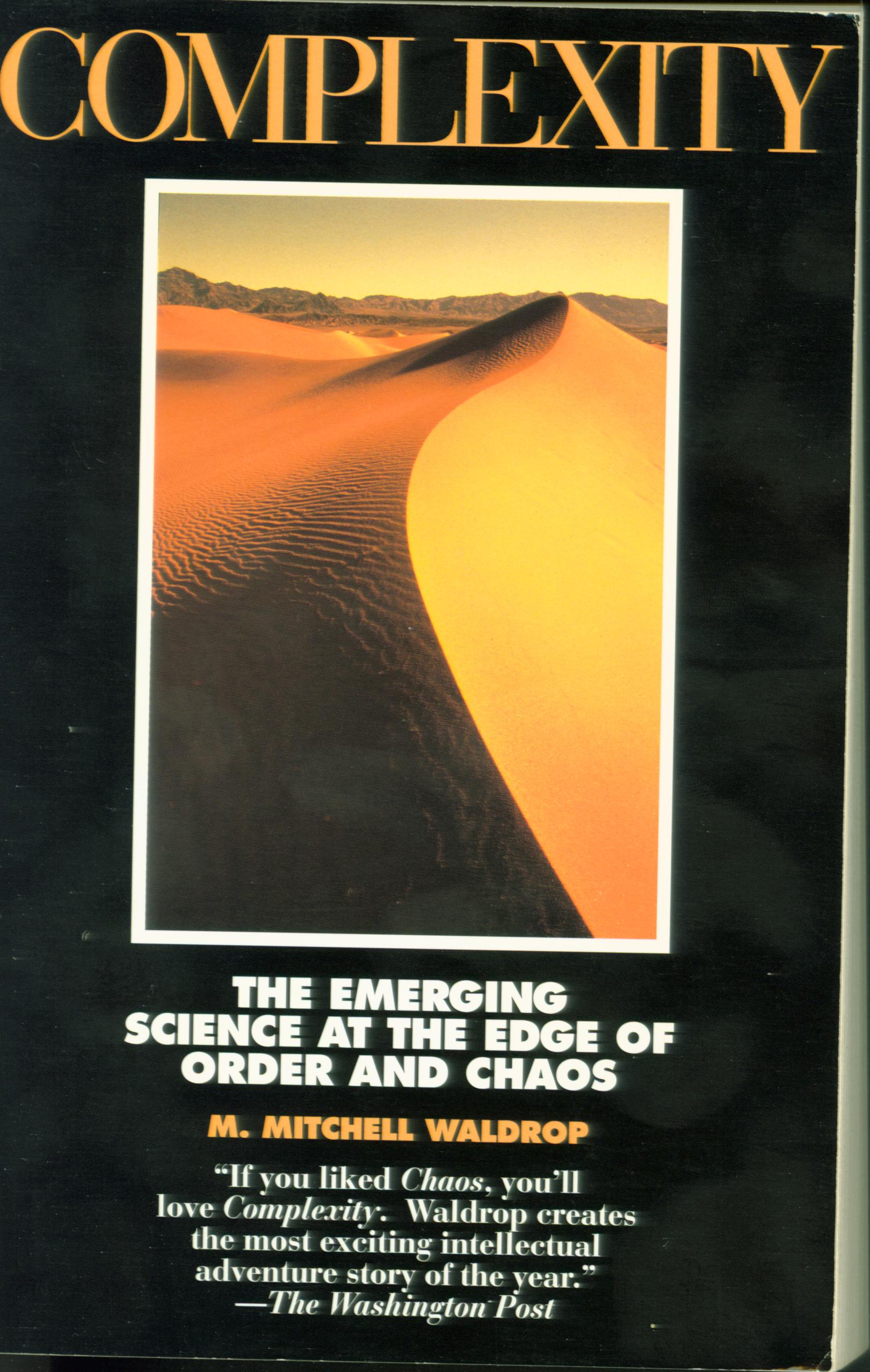 COMPLEXITY: the emerging science at the edge of order and chaos--paper. by Mitchell Waldrop.
COMPLEXITY: the emerging science at the edge of order and chaos--paper. by Mitchell Waldrop.
Probings at the Santa Fe Institute toward a new way of merging sciences. Explores the interrelatedness of many events and how science and our thinking in general can evolve to accept interactions and thus better deal with our environment, culture, and society. 380 pages.
Inventory =1. ISBN: 0-671-87234-6. 1992. Order #: SISC5697 paper$12.00.
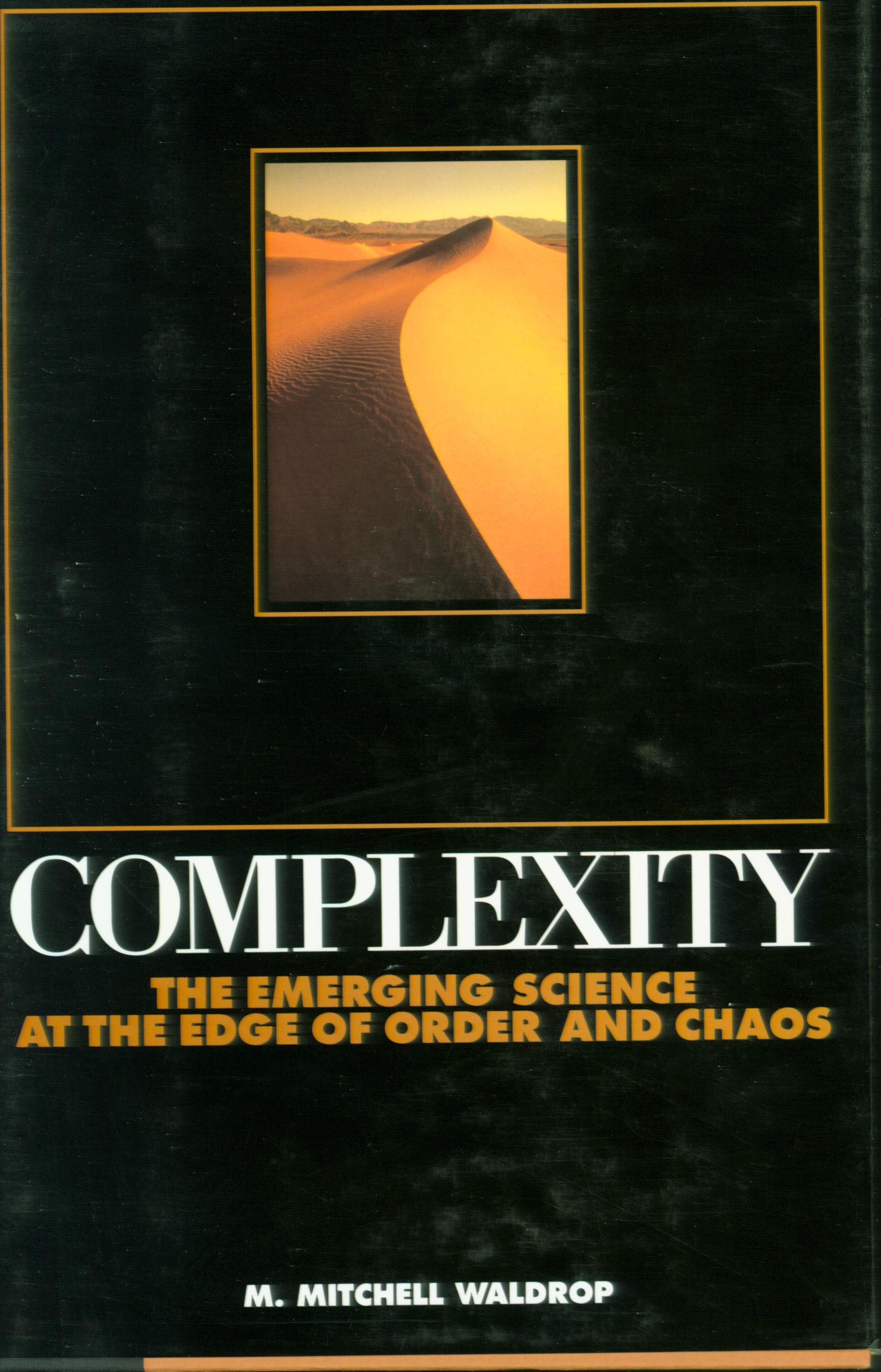 COMPLEXITY: the emerging science at the edge of order and chaos--cloth. by Mitchell Waldrop.
COMPLEXITY: the emerging science at the edge of order and chaos--cloth. by Mitchell Waldrop.
Probings at the
Santa Fe Institute toward a new way of merging sciences. Explores the interrelatedness of many events and how science and our thinking in general can evolve to accept interactions and thus better deal with our environment, culture, and society. 380 pages.
Inventory =1. ISBN: 0-671-76789-5. 1992. Order #: SISC6067 cloth$23.00.
 CONSTRUCTION OF HOOVER DAM. by Bureau of Reclamation.
CONSTRUCTION OF HOOVER DAM. by Bureau of Reclamation.
By 1927 when construction of Hoover Dam was authorized to be built, the Department of the Interior's Bureau of Reclamation had already constructed some of the largest dams in the world. Although the site here had favorable qualities for a massive dam, that in itself added to the challenge of straddling the steep-walled gorge and diverting the huge Colorado River while they prepared the dam's bed and created the concrete barrier complete with hydroelectric generation and highway bridge crossing the Arizona-Nevada border.. Text and photographs report how the project was done and show its immensity. Engineering diagrams, photographs, 48 pages. Historical reprint
Inventory = 1.ISBN:0-916122-51-4. Historical reprint 1976. Order #: KCPU8060 paper$4.00.
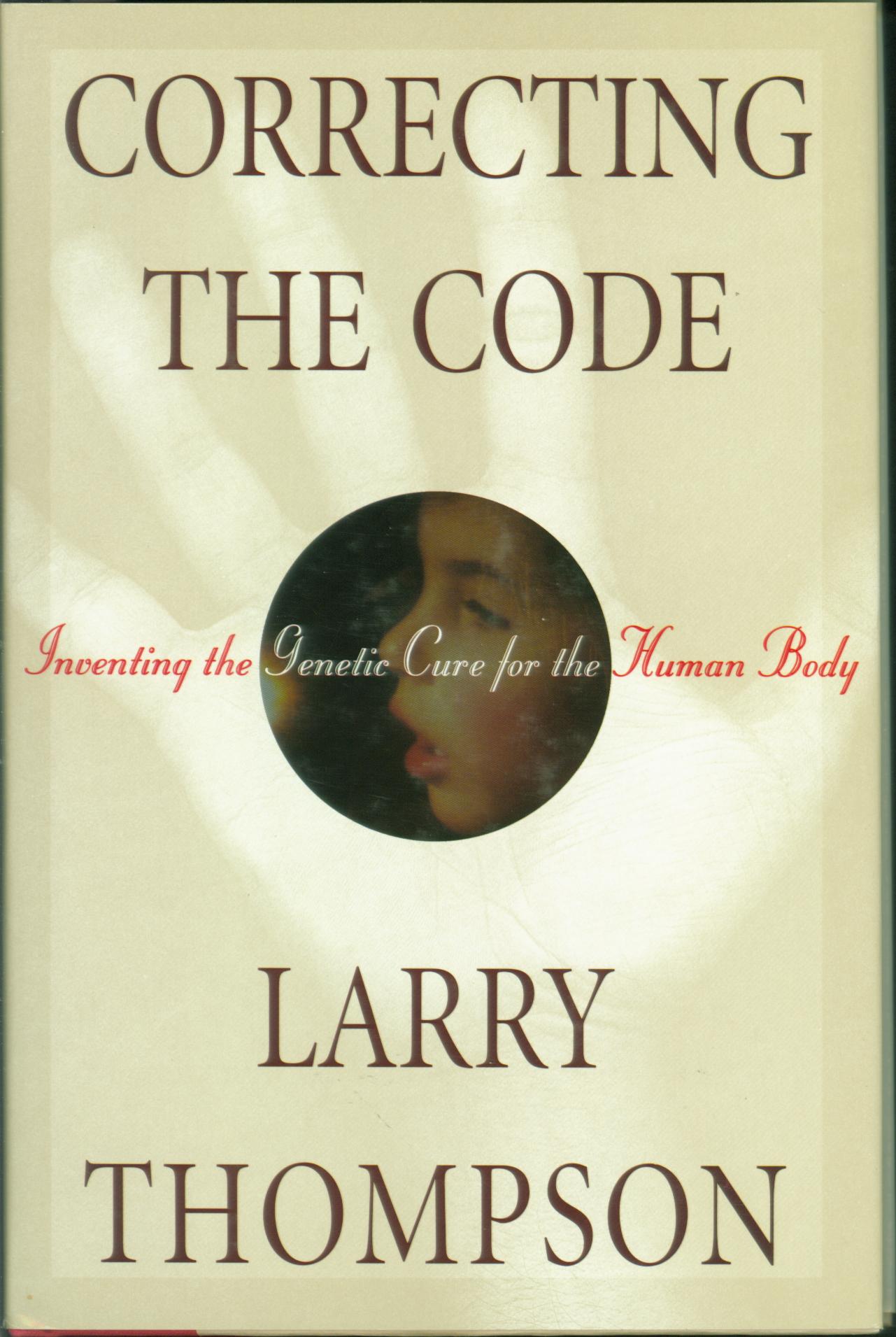 CORRECTING THE CODE: inventing the genetic cure for the human body. by Larry Thompson.
CORRECTING THE CODE: inventing the genetic cure for the human body. by Larry Thompson.
Explains human
gene therapy, using altered genetic material for medical treatment, and the political, intellectual and moral dilemmas this science procedure has faced, with the dilemma of putting it to use. 378 pages, index.
Inventory = 1.ISBN:0-671-77082-9. 1994. Order #: SISC5037 cloth$23.00.
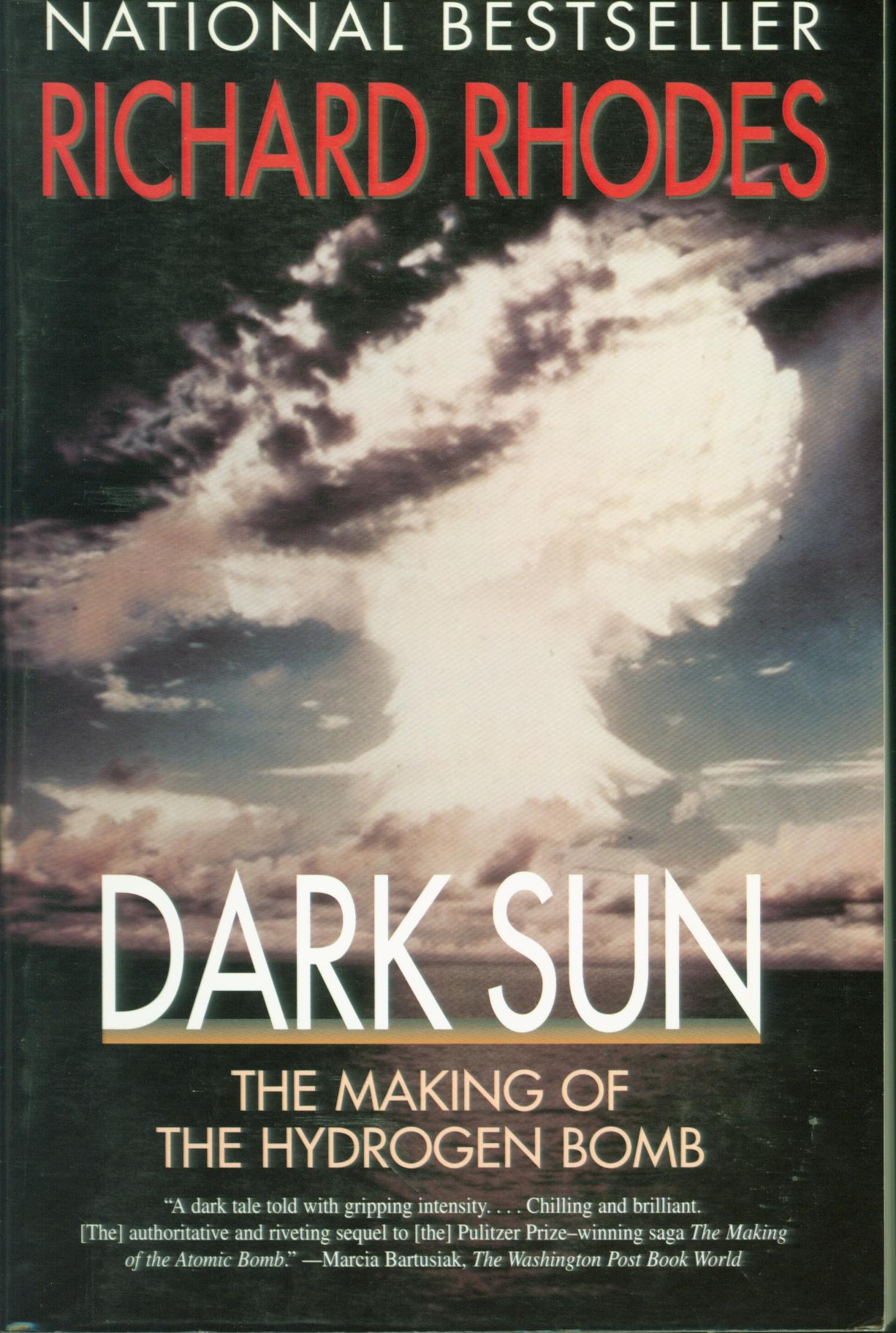 DARK SUN: the making of the hydrogen bomb--cloth. Rhodes.
DARK SUN: the making of the hydrogen bomb--cloth. Rhodes.
Definitive, often shocking, story of the politics and science behind the development of the hydrogen bomb and birth of the Cold War. Based om files in both the United States and the Soviet Union, this history discloses how and why the United States decided to create the bomb that would dominate world politics for over 40 years. Extensive notes, photographs,
731 pages, index.
Inventory =1. ISBN: 0-684-80400-X. 1995. Order #: SISC6083 cloth$32.50.
 DARK SUN: the making of the hydrogen bomb--paper. by Richard Rhodes.
DARK SUN: the making of the hydrogen bomb--paper. by Richard Rhodes.
Definitive, often shocking, story of the politics and science behind the development of the hydrogen bomb and birth of the Cold War. Based om files in both the United States and the Soviet Union, this history discloses how and why the United States decided to create the bomb that would dominate world politics for over 40 years. Extensive notes, photographs,
731 pages, index.
Inventory =1. ISBN: 0-684-82414-0. 1995. Order #: SISC8812 paper$16.00.
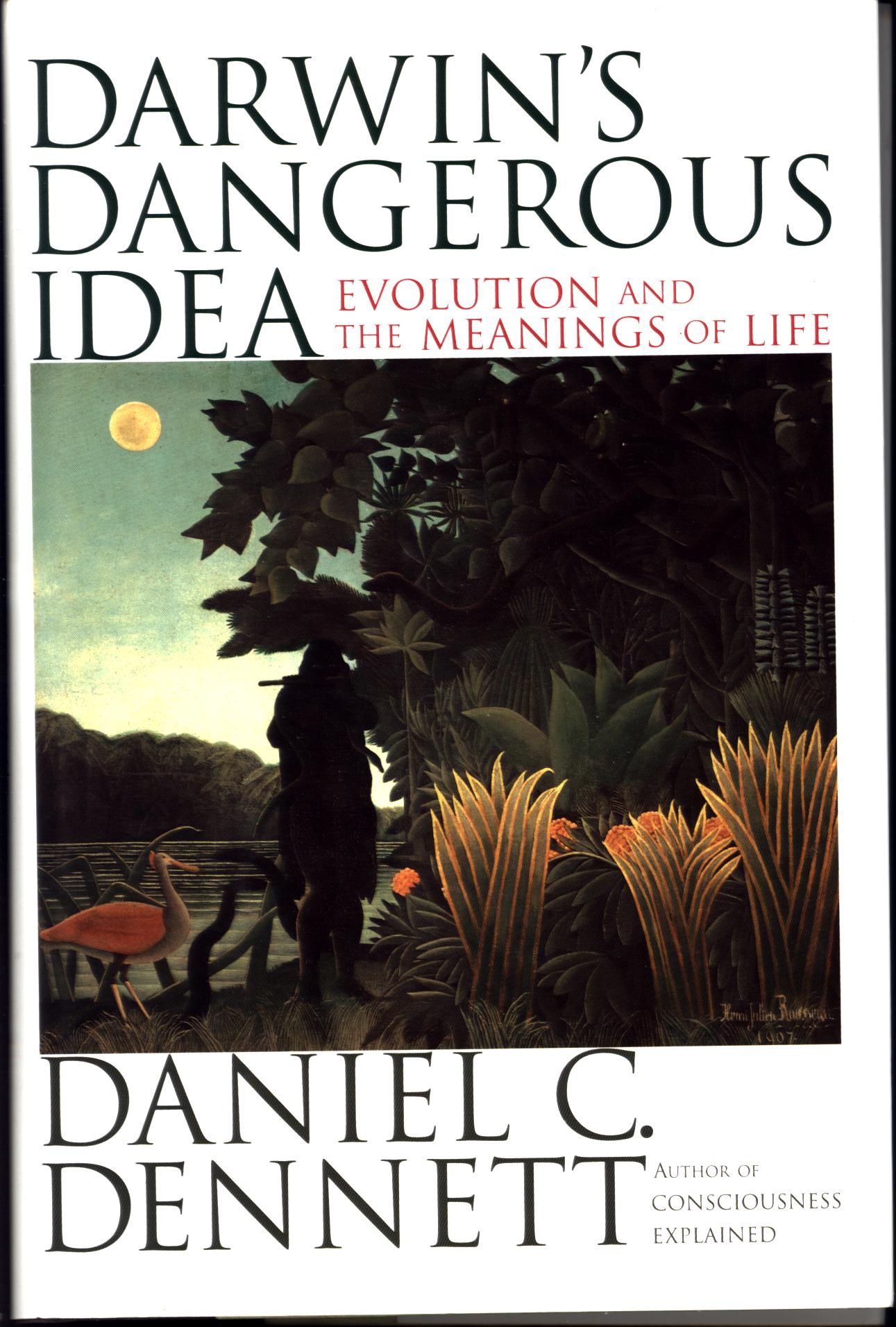 DARWIN'S DANGEROUS IDEA: evolution and the meanings of life. by Daniel C. Dennett.
DARWIN'S DANGEROUS IDEA: evolution and the meanings of life. by Daniel C. Dennett.
Demonstrates power of theory of evolution and how that idea impacts our traditional view of our place in the
universe. Darwin's idea of evolution by natural selection has been the focus of controversy for more than a century. Here current controversies are laid out about the origin of life, punctuated equilibrium, sociobiology the evolution of language and culture, and evolutionary ethics. Exposes philosophical--even religious--yearnings that have distorted disputes among scientists and laypeople alike and challenges the view of some famous scientists. Illustrated, 587 pages.
Inventory = 1. ISBN: 0-684-80290-2. 1995. Order #: SISC6088 cloth$30.00.
#THE DREAMING UNIVERSE: a mind-expanding journey into the realm where psyche and physics meet. Wolf.
Synthesis of mythology, anthropology, dream, and consciousness research, and modern
physics. 413 pages.
Inventory =1. ISBN: 0-684-80159-0. Order #: SISC6141 paper$13.00.
 ELEMENTS OF OUTDOOR RECREATION PLANNING. by D. L. Driver.
ELEMENTS OF OUTDOOR RECREATION PLANNING. by D. L. Driver.
25 experts review outdoor recreation planning, including recreational trends, policy
formulation, regional planning, cultural preferences, financing problems, history of outdoor recreation planning,private sector
role, supply of outdoor recreation as well as demand, steps in the planning process, establishment of goals, variables, and perils. 328 pages.
Inventory = 1. ISBN: 0-472-08284-1. 1970. Order #: UNMI3929 paper$10.95.
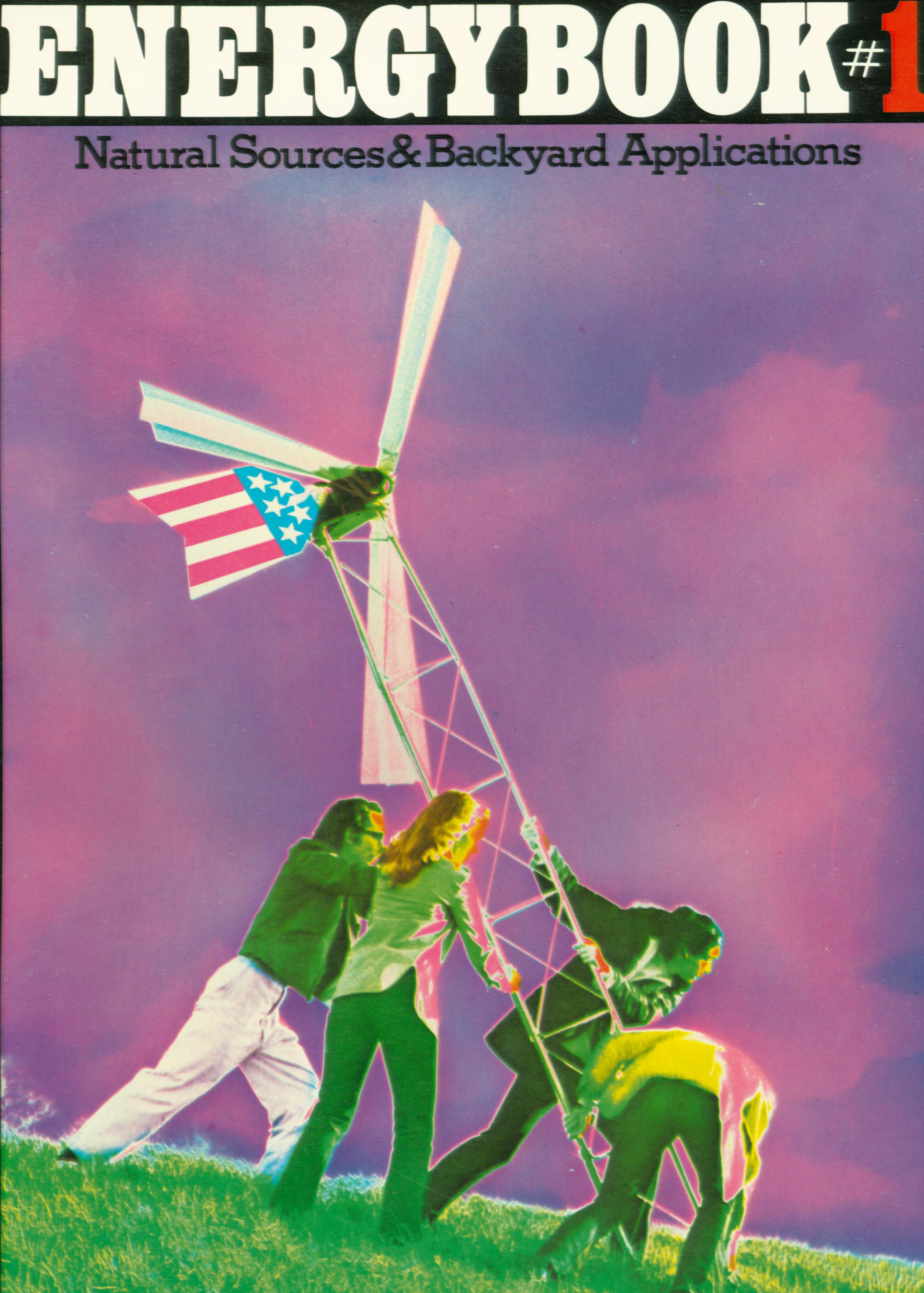 ENERGY BOOK #1: natural sources & backyard applications. edited by John Prenis.
ENERGY BOOK #1: natural sources & backyard applications. edited by John Prenis.
Myriad ideas about developing alternative sources of energy: wind, solar, tidal, wood, ocean thermal power,
and many more for exploration, experimentation, and application. Ideas both practical and theoretical such as shapes of reflecting surfaces, experiments with hydrogen, methane and bio-gas experiments, tidal power, soap-bubble heat collector, ocean thermal power from structures that have pipes deep into the sea, and more. Illustrated, 112
large-format pages.
Inventory = 2. ISBN: 0-914294-21-0. 1975. Order #: RUNN3001 paper$7.95.
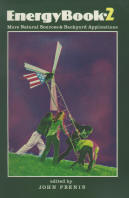 ENERGY BOOK #2: more natural sources & backyard applications. Prenis.
ENERGY BOOK #2: more natural sources & backyard applications. Prenis.
Anthology of alternate sources of energy explains what energy is and gives do-it-yourself projects for
non-conventional power. Illustrated, 12 large-format pages.
Inventory = 4. ISBN: 0-914294-51-2. Order #: RUNN3002 paper$5.00.
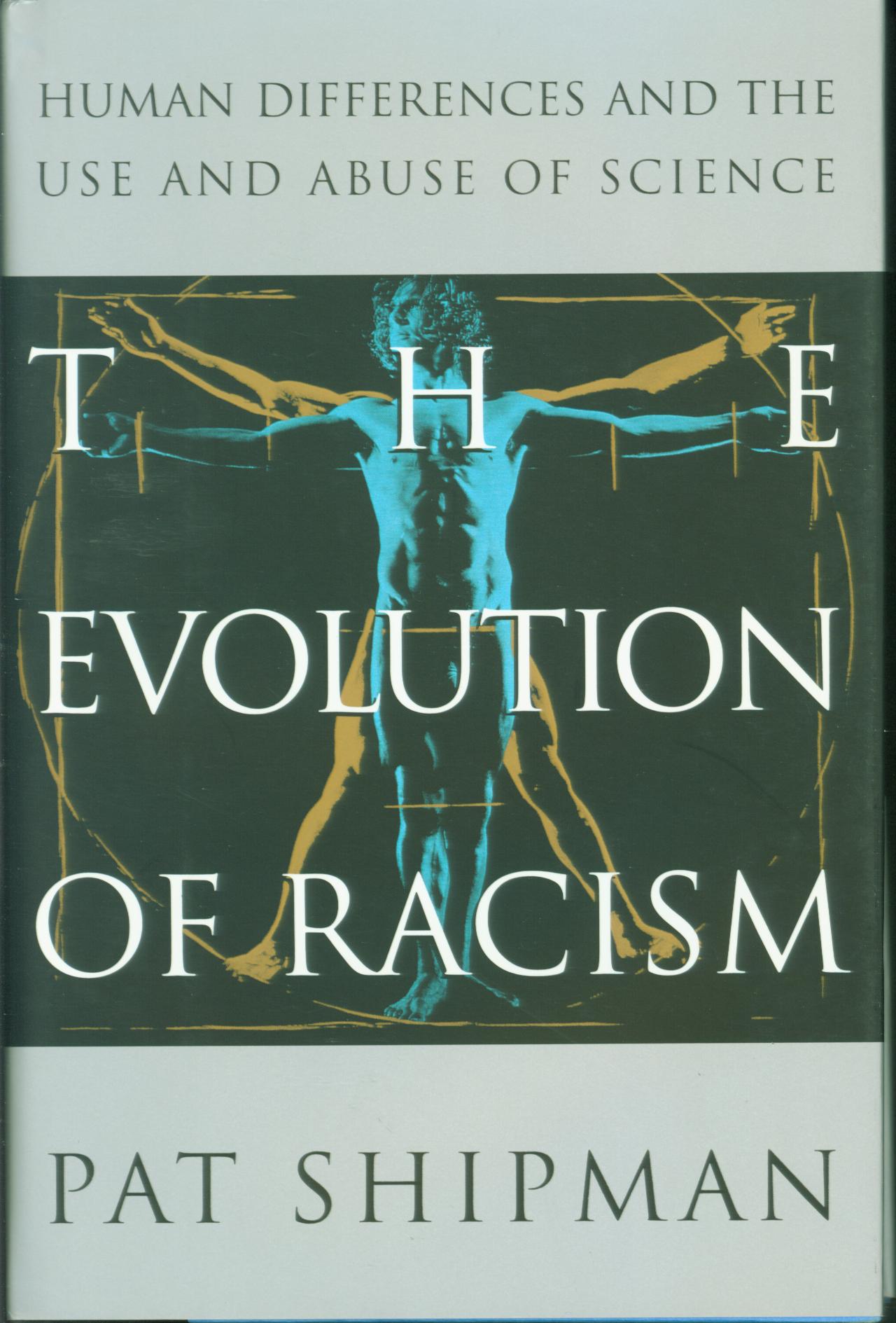 THE EVOLUTION OF RACISM: human differences and the use and abuse of science. by Pat Shipman.
THE EVOLUTION OF RACISM: human differences and the use and abuse of science. by Pat Shipman.
Explores this most inflammatory subject that exposes the frailty of human thinking and points a rational way to understand what a human is and how because of our intermingling due to migration, war, exploration that human races are not separate species and cannot evolve into them. Notes, bibliography, 316 pages, index.
Inventory =1. ISBN: 0-671-75460-2. 1994. Order #: SISC5038 cloth$23.00.
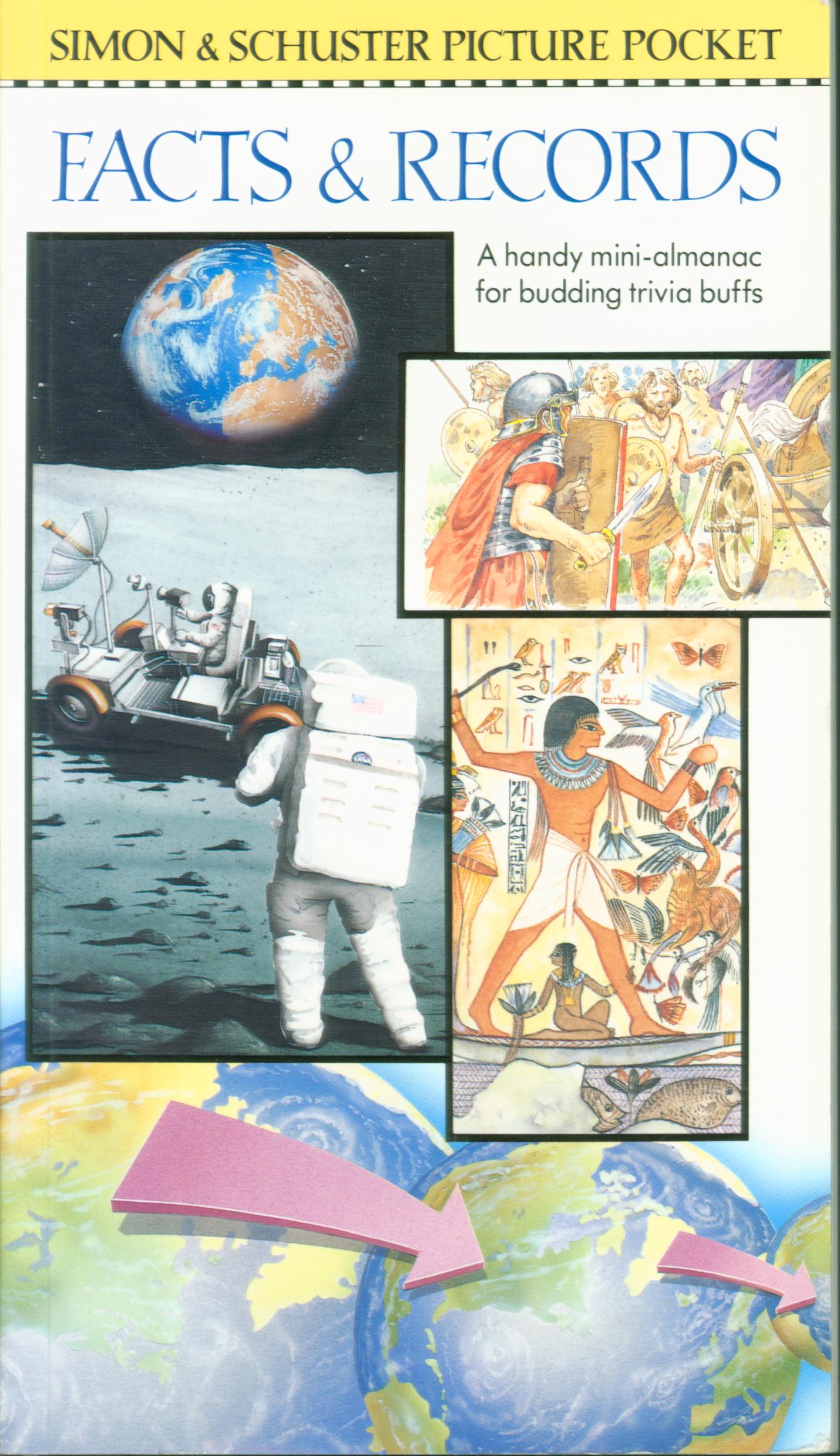 FACTS & RECORDS: a handy mini-almanac for budding trivia buffs. by Veronica Pennycook.
FACTS & RECORDS: a handy mini-almanac for budding trivia buffs. by Veronica Pennycook.
For young readers (and curious, older, ones too). Tidbits on every imaginable subject--history and science to people and entertainment--easily organized format. On the universe, our plane Earth, natural world, human body, history, travel. technology, Color drawings, 96 pages.
Inventory =1. ISBN: 0-671-79151-6. Order #: SISC1033 paper$8.00.
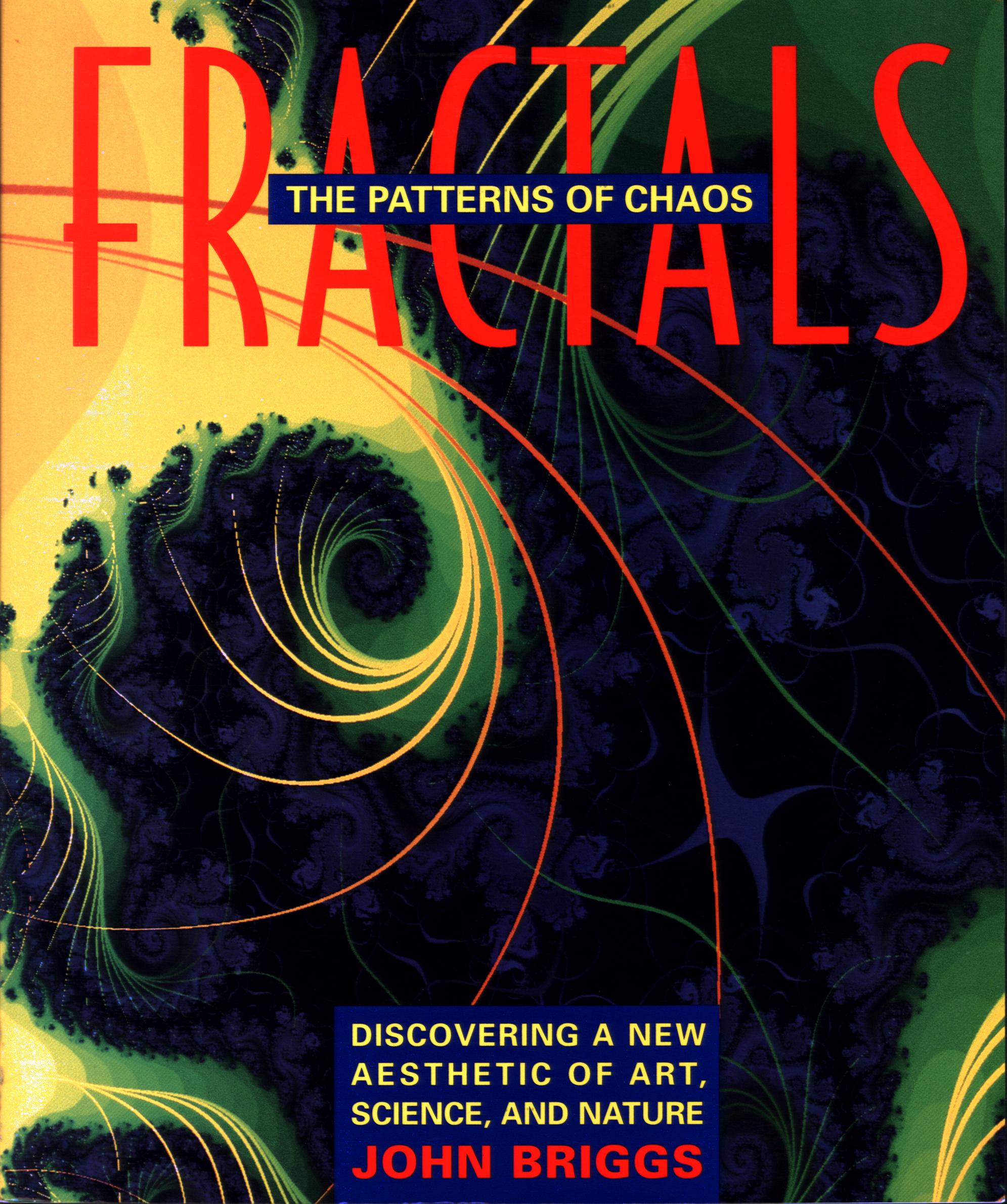 FRACTALS: THE PATTERNS OF CHAOS--discovering a new aesthetic of art, science, and nature. by John Briggs.
FRACTALS: THE PATTERNS OF CHAOS--discovering a new aesthetic of art, science, and nature. by John Briggs.
Explores the unique patterns left behind by unpredictable movements in nature, explaining the concept and principles of fractals. Have you wondered "What is a fractal?" It's defined as a geometric shape that is self-similar through infinite iterations in a recursive pattern and through infinite detail. Simple, right? Don't worry, author Briggs goes over all the pieces. Color photos, 192 large-format pages, index. See sample pages, illustrations.
Inventory =1. ISBN: 0-67-74217-5. 1992. Order #: SISC4058 paper$20.00.
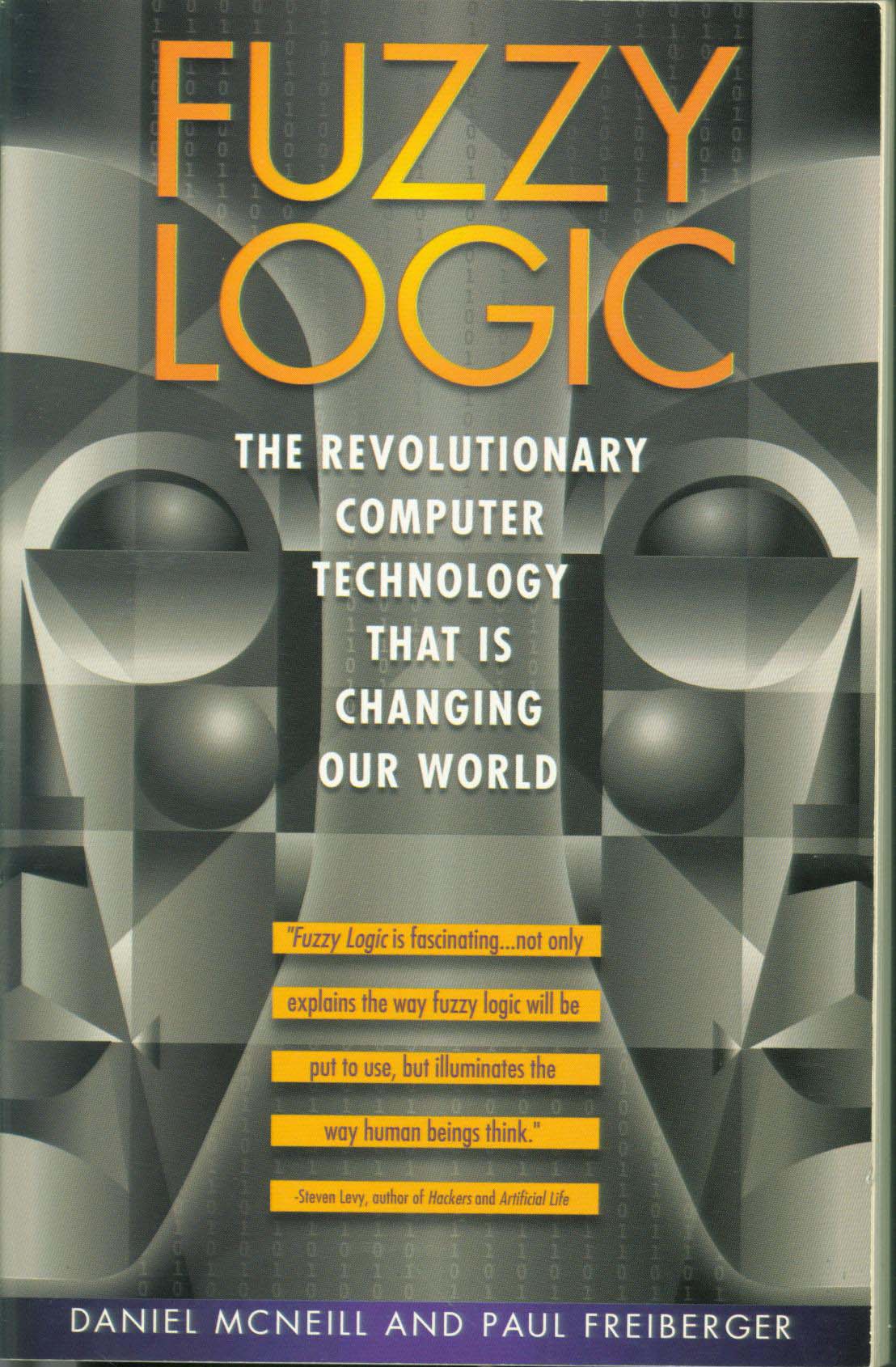 FUZZY LOGIC: the revolutionary technology that is changing our world--paper. by Daniel McNeill & Paul Freiberger.
FUZZY LOGIC: the revolutionary technology that is changing our world--paper. by Daniel McNeill & Paul Freiberger.
Imagine a technology that gives computers the ability to make decisions more like humans--a way of programming computers to make decisions based on imprecise data and complex situations. 317 pages.
Inventory =1. ISBN: 0-671-87535-3. Order #: SISC0105 paper$12.00.
![]() FUZZY LOGIC--cloth. by Daniel McNeill & Paul Freiberger.
FUZZY LOGIC--cloth. by Daniel McNeill & Paul Freiberger.
Discovery of a revolutionary computer technology--and how it's changing
our world. A precise formal logic based on fuzzy sets has been constructed and has proved to have significant applications in computer designs especially in Japan--even though he innovation was hatched and developed in the United States. Diagrams, 317 pages, index..
Inventory =1. ISBN: 0-671-73843-7. Order #: SISC3248 cloth$22.00.
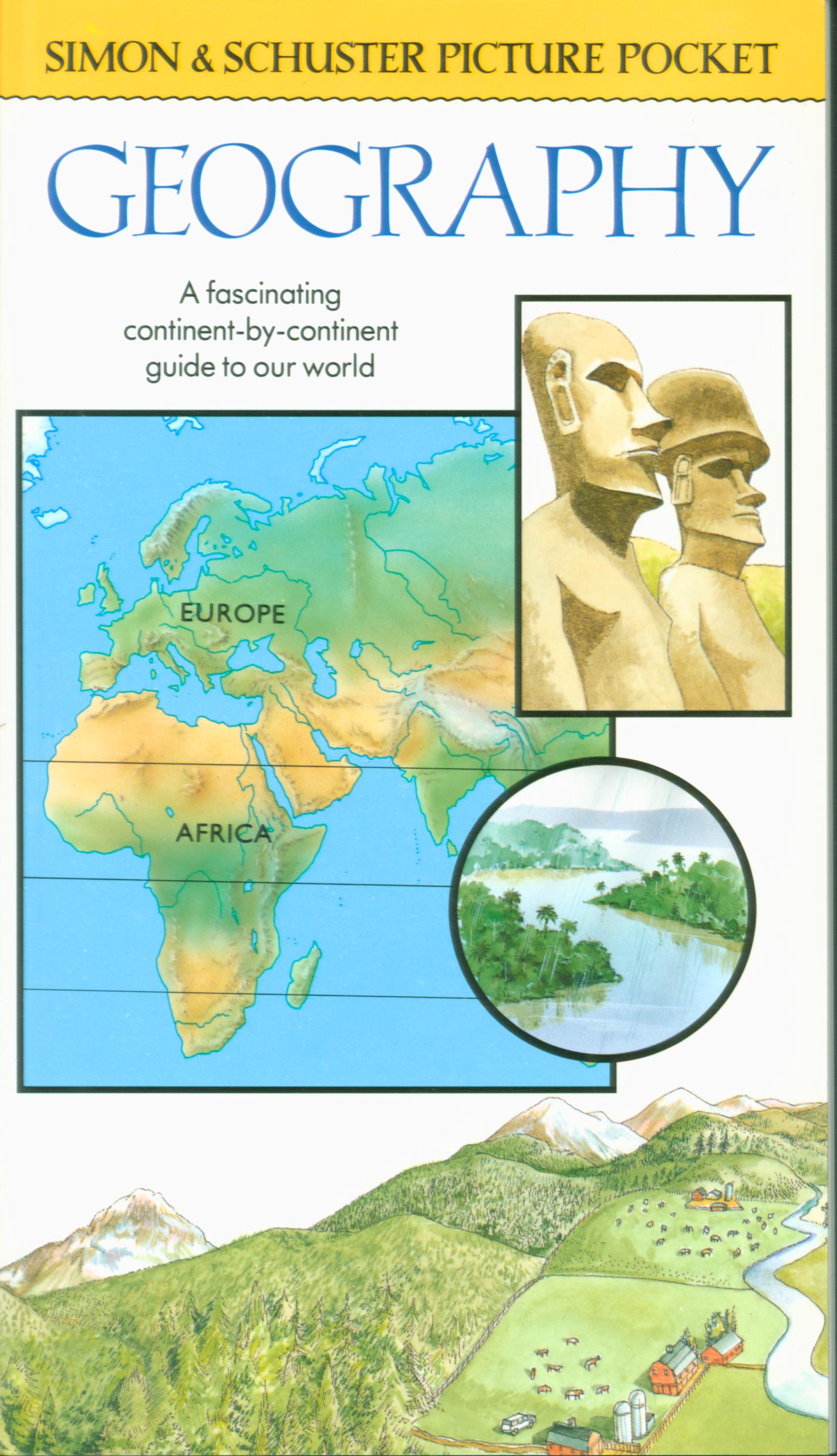 GEOGRAPHY: (Simon & Schuster Picture Pocket). by Lionel Bender.
GEOGRAPHY: (Simon & Schuster Picture Pocket). by Lionel Bender.
Child's guide to our world,
continent by continent--habitats, industry, population, peoples, agriculture. Includes polar and ocean areas.. Color illustrations, index of countries, many with maps, 96 pages.
Inventory =1. ISBN: 0-671-75997-3. 1992. Order #: SISC8347 paper$8.00.
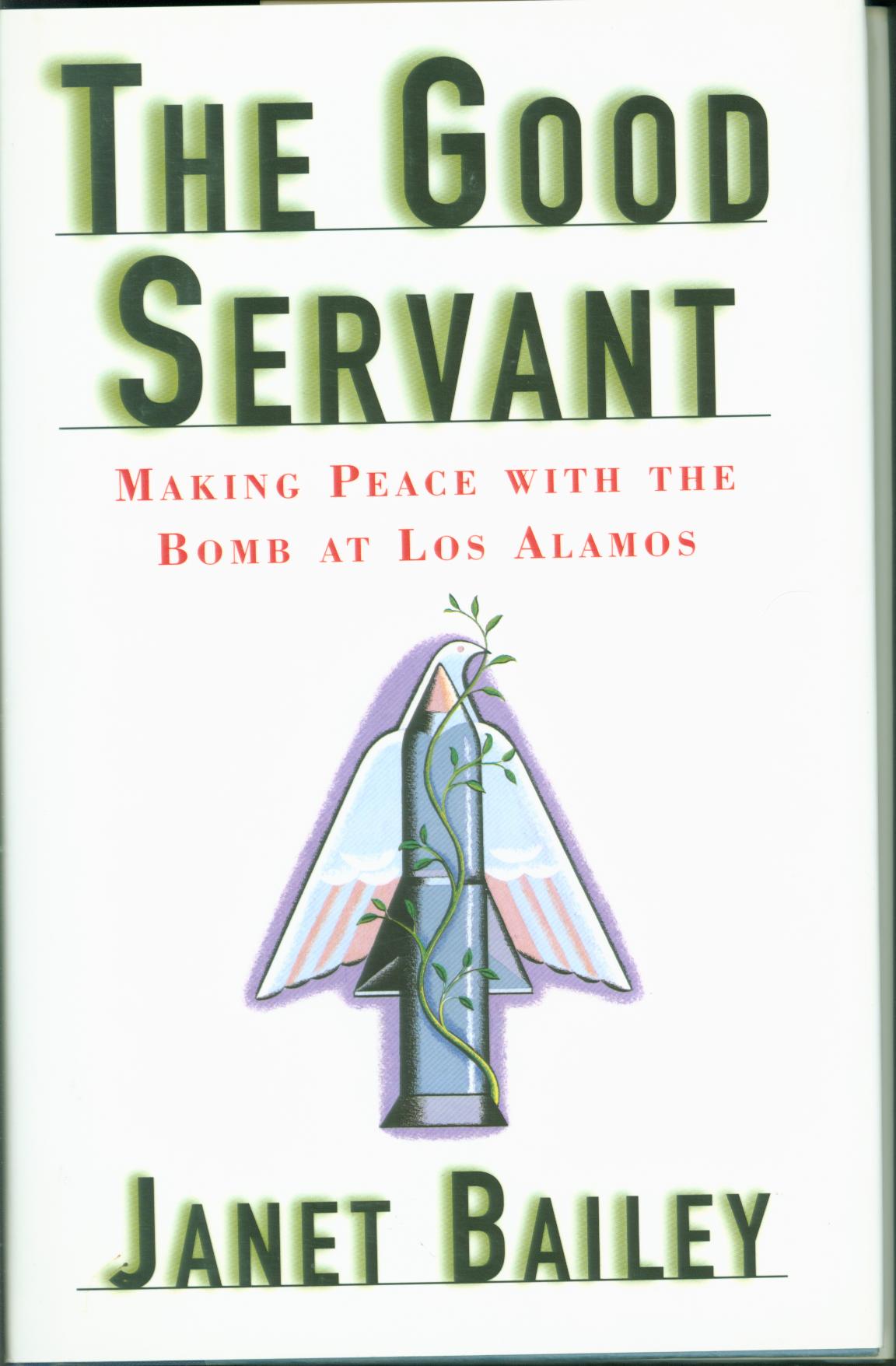 THE GOOD SERVANT: making peace with the Bomb at Los Alamos. by Janet Bailey.
THE GOOD SERVANT: making peace with the Bomb at Los Alamos. by Janet Bailey.
Roles of this scientific community in making nuclear weapons and peacetime research. How these products have been and could be used in war and how they have also helped reduce the chance of war, even perhaps causing the end of the Cold War. Behind-the-scenes look at the labs and scientists involved in this work, including those in Russia. 188 pages.
Inventory =1. ISBN: 0-684-80939-7. 1995. Order #: SISC6103 cloth$22.00.
 GOOD NEIGHBORS: building next to history--design guidelines handbook.
GOOD NEIGHBORS: building next to history--design guidelines handbook.
Professional manual from the State Historical Society of Colorado for use in design standards for historical developments and areas as well as environmental and aesthetic considerations. Photographs, maps, drawings including many of Colorado historical character, 44 large-format pages..
Inventory = 1. ISBN: None. 1980. Order #: COHI3347 paper$4.95.
![]() HANDBOOK OF ANATOMY & PHYSIOLOGY (Simon & Schuster's). Bevan.
HANDBOOK OF ANATOMY & PHYSIOLOGY (Simon & Schuster's). Bevan.
Skeleton, joints,
muscle, digestion, respiration, circulation, sensory organs, sex, growth. Color
illustrations, 96 large-format pages.
Inventory = 2.ISBN: 0-671-24998-3. 1978. Order #: SISC2829 paper$13.00.
 THE HEALING BLADE: a tale of neurosurgery. by Edward J. Sylvester.
THE HEALING BLADE: a tale of neurosurgery. by Edward J. Sylvester.
Insight into modern medical field. Procedures that involve placing patients in a state near death with their blood removed and their bodies chilled to 61 degrees in order to operate on areas of the brain in advanced surgery to alleviate serious medical conditions, not all of which are successful. 240
pages, index..
Inventory = 1.ISBN:0-671-76054-8. 1993. Order #: SISC5914 cloth$22.00.
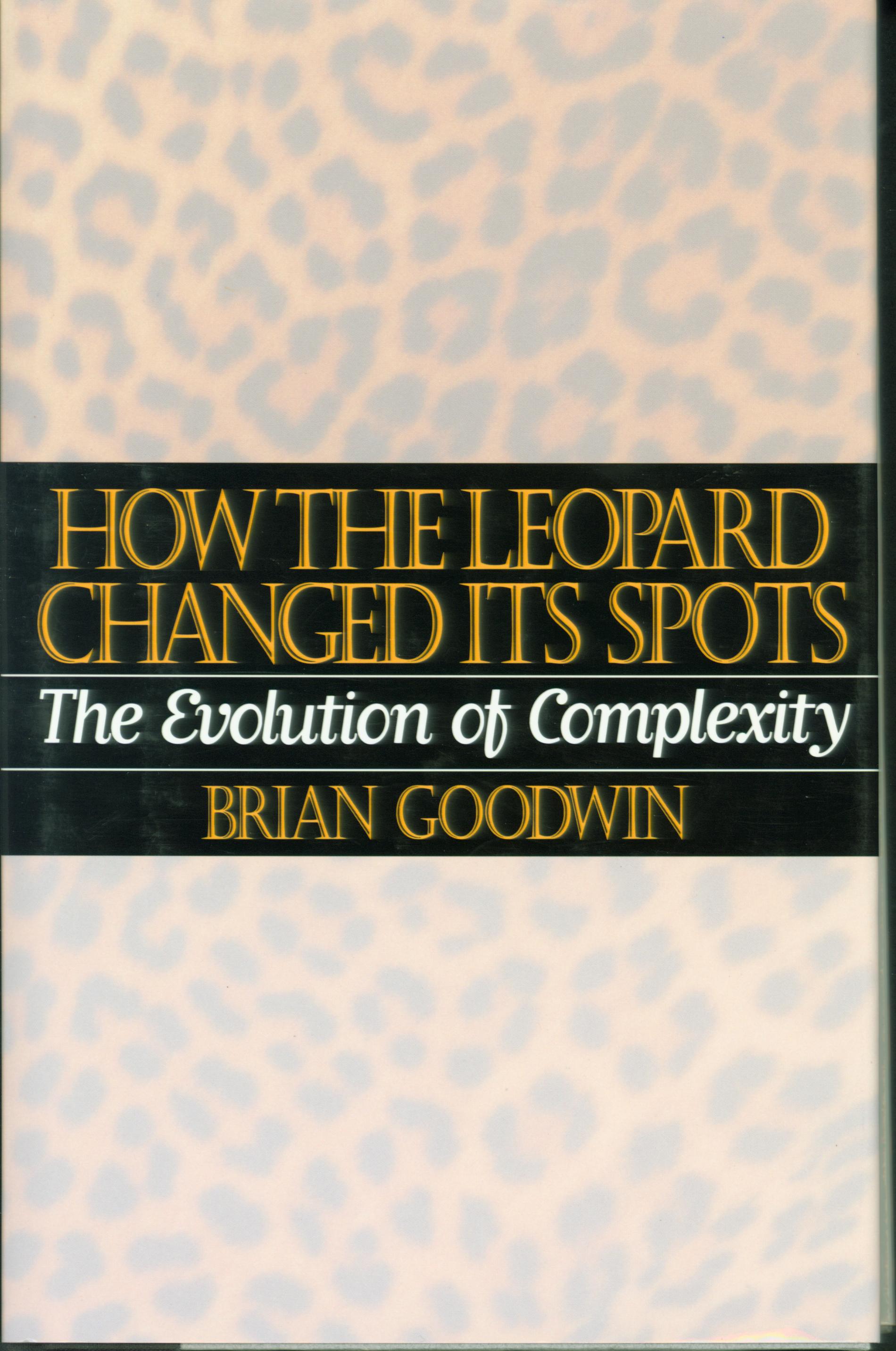 HOW THE LEOPARD CHANGED ITS SPOTS: the evolution of complexity--cloth. by Brian Goodwin.
HOW THE LEOPARD CHANGED ITS SPOTS: the evolution of complexity--cloth. by Brian Goodwin.
Explores concepts of science including the Darwinian theory of evolution that determines the character of the individuals within a species group and argues that organisms not only compete but also cooperate and are as altruistic as they are selfish and are as playful as they are destructive and repetitive. This leads to a new or at least another way of applying our own philosophies to situations rather than imagining conflict as the sole basis for determining the various life forms and as the most important ingredient for dealing with our own circumstances. Diagrams, 252 pages, index. See SISC1564 for paper edition.
Inventory =1. ISBN: 0-02-544710-6. 1994. Order #: SCRI8756 cloth$23.00.
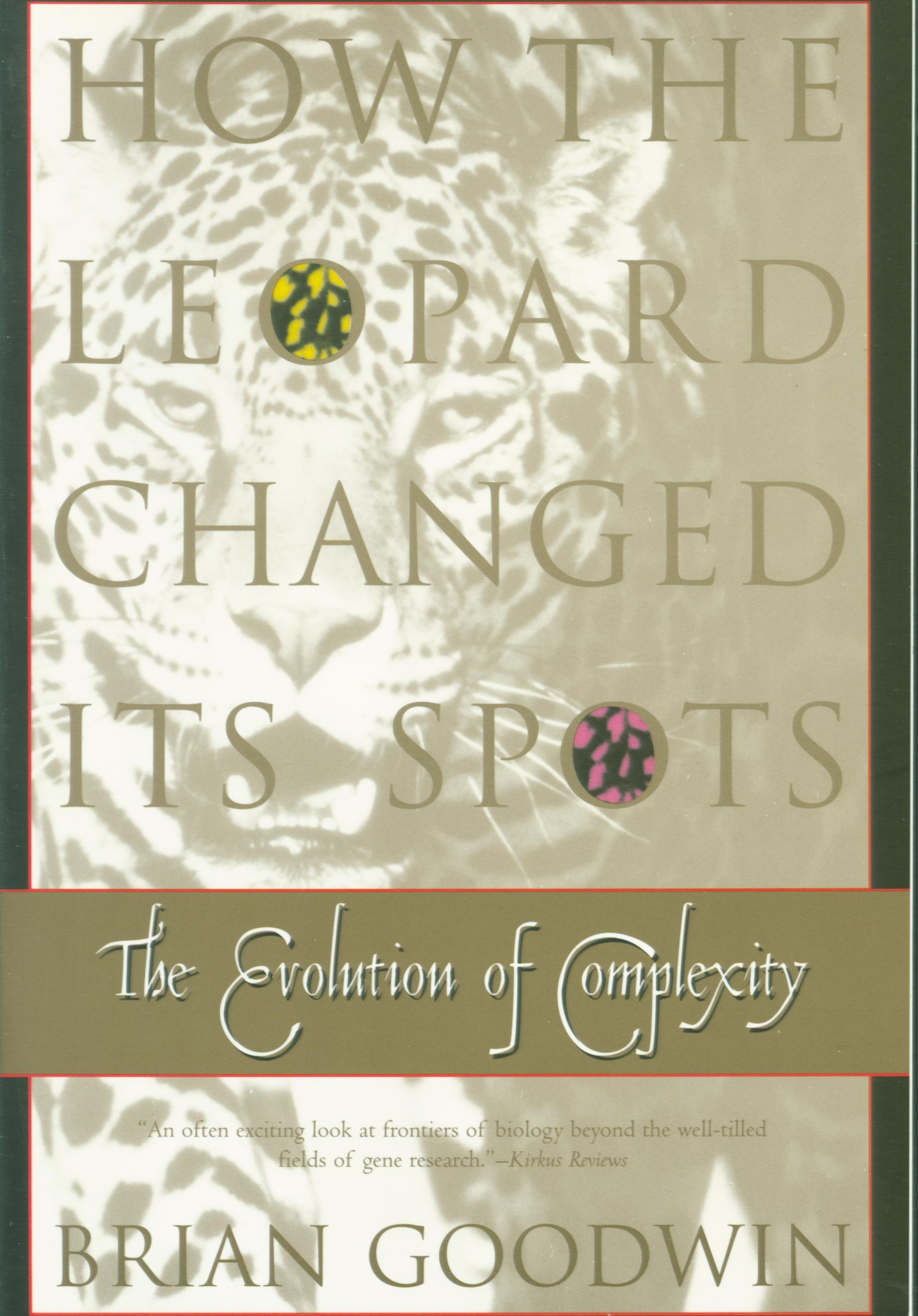 HOW THE LEOPARD CHANGED ITS SPOTS: the evolution of complexity--paper. by Brian Goodwin.
HOW THE LEOPARD CHANGED ITS SPOTS: the evolution of complexity--paper. by Brian Goodwin.
Explores concepts of science including the Darwinian theory of evolution that determines the character of the individuals within a species group and argues that organisms not only compete but also cooperate and are as altruistic as they are selfish and are as playful as they are destructive and repetitive. This leads to a new or at least another way of applying our own philosophies to situations rather than imagining conflict as the sole basis for determining the various life forms and as the most important ingredient for dealing with our own circumstances. Diagrams, 252 pages, index. See SCRI756 for cloth edition.
Inventory =1. ISBN: 0-684-80451-4. 1996. Order #: SISC1564 paper$14.00.
#HUMAN BODY: a Prentice Hall Illustrated Dictionary. Sainsbury et. al.
Dictionary for 9 to 14
year olds. Color drawings, 160 large-format pages.
Inventory = 1. ISBN: 0-671-84693-0. Order #: PRHA4080 cloth$19.00.
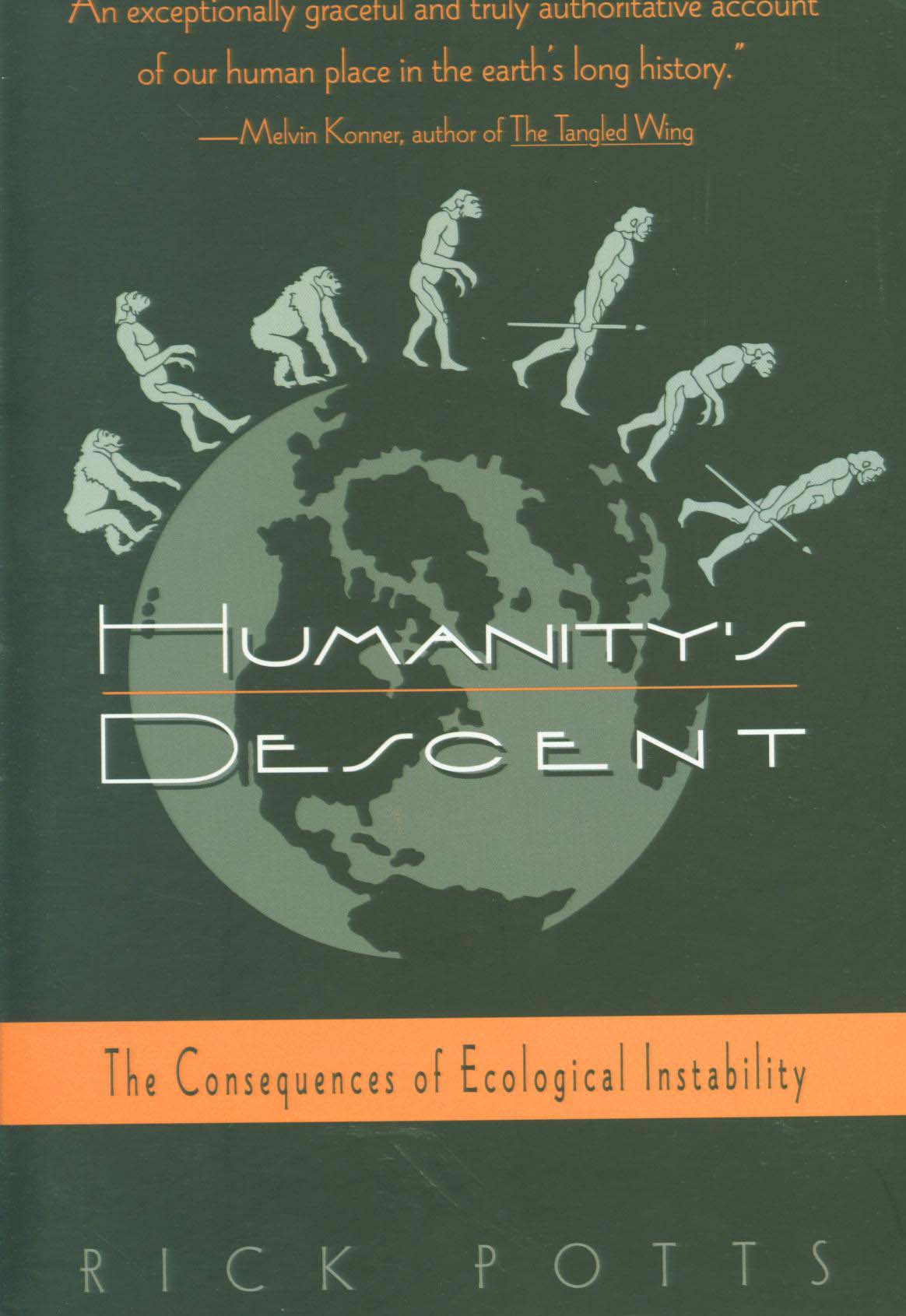 HUMANITY'S DESCENT: the consequences of ecological instability. by Rick Potts.
HUMANITY'S DESCENT: the consequences of ecological instability. by Rick Potts.
Place of humans in
earth's long history--survival of the species despite floods, ice ages, earthquakes, and other outbursts of nature. Fossil discoveries present a new understanding of human origins placing our ancestors firmly within the story of the earth's developing ecology, revealing the drama of human evolution. Drawings, 331 pages, index.
Inventory =1. ISBN: 0-380-71523-6. 1996. Order #: MISC1090 paper$14.00.
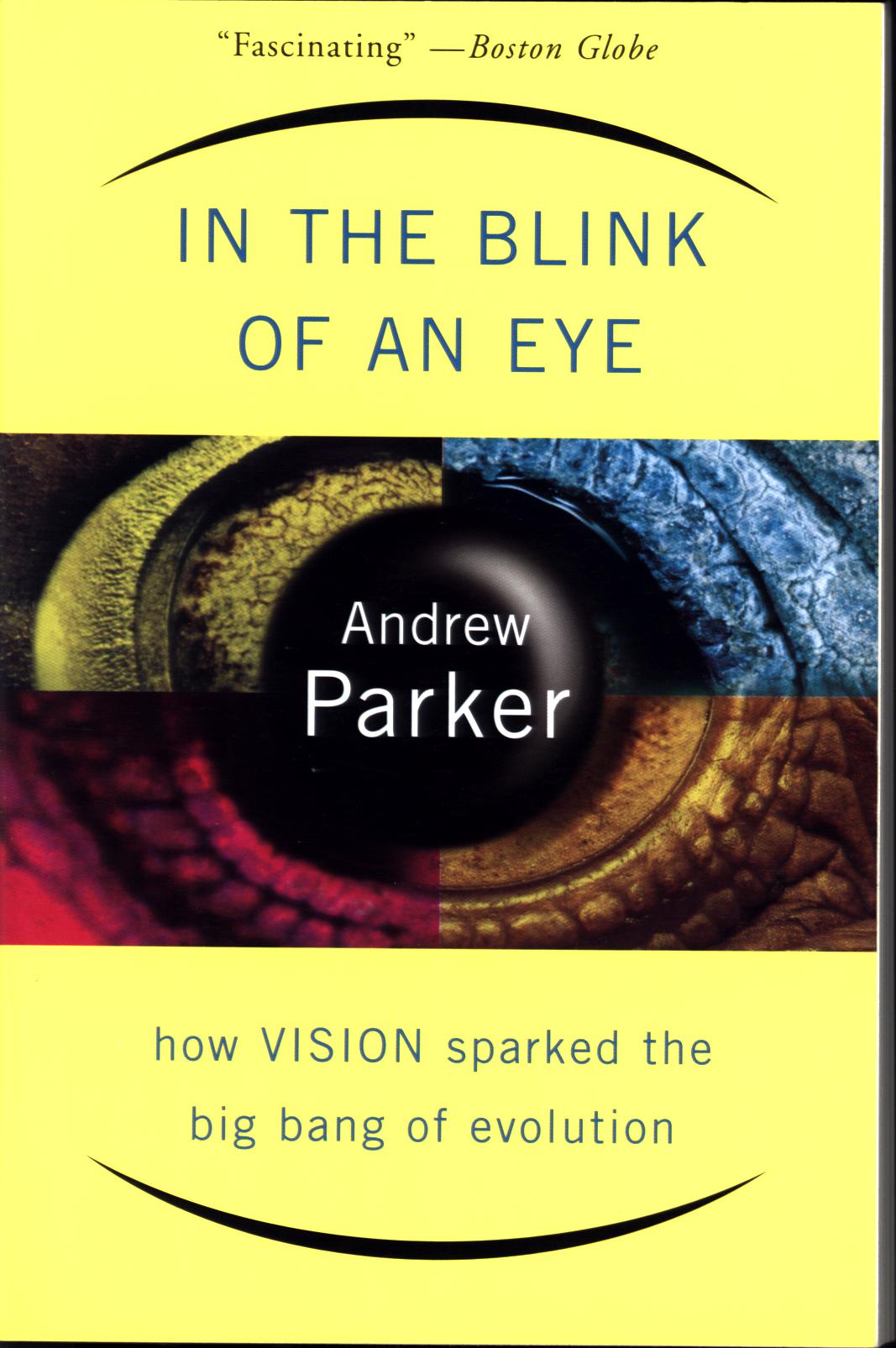 IN THE BLINK OF AN EYE: how vision sparked the big bang of evolution. by Andrew Parker.
IN THE BLINK OF AN EYE: how vision sparked the big bang of evolution. by Andrew Parker.
Reveals a theory of the great increase in animal diversity about 550 million years ago during the "Cambrian Explosion" when animal classification forms went from 3 to 38, the number we still have today. That time period is when primitive animals developed vision. Author Parker draws on evidence not just from biology, but also from geology, physics, chemistry, history, and art in this account of his intellectual journey. Photographs, drawings, 334 pages, index.
Inventory =1. ISBN: 0-465-5438-2. 2003. Order #: PERS2713 paper$15.00.
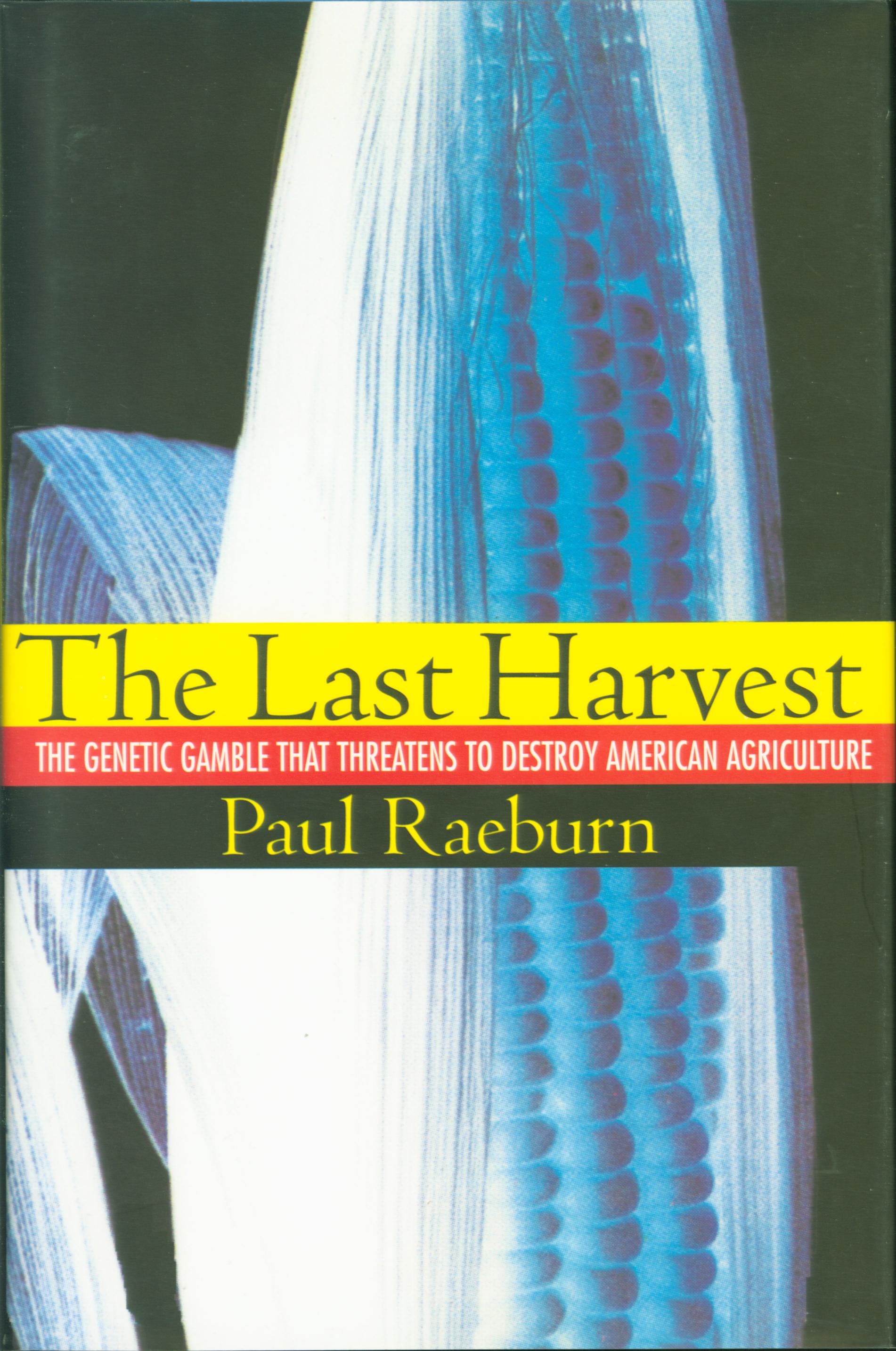 THE LAST HARVEST: the genetic gamble that threatens to destroy American agriculture. by Paul Raeburn.
THE LAST HARVEST: the genetic gamble that threatens to destroy American agriculture. by Paul Raeburn.
How loss of natural genetic diversity in cultivated crops could result in devastating
vulnerability to pollution and pestilence. Accelerating loss of both older cultivated stocks and species in the wild is occurring through our own neglect and devastation of the environment. 269 pages, index.
Inventory =1. ISBN: 0-684-80365-8. 1995. Order #: SISC6147 cloth$24.00.
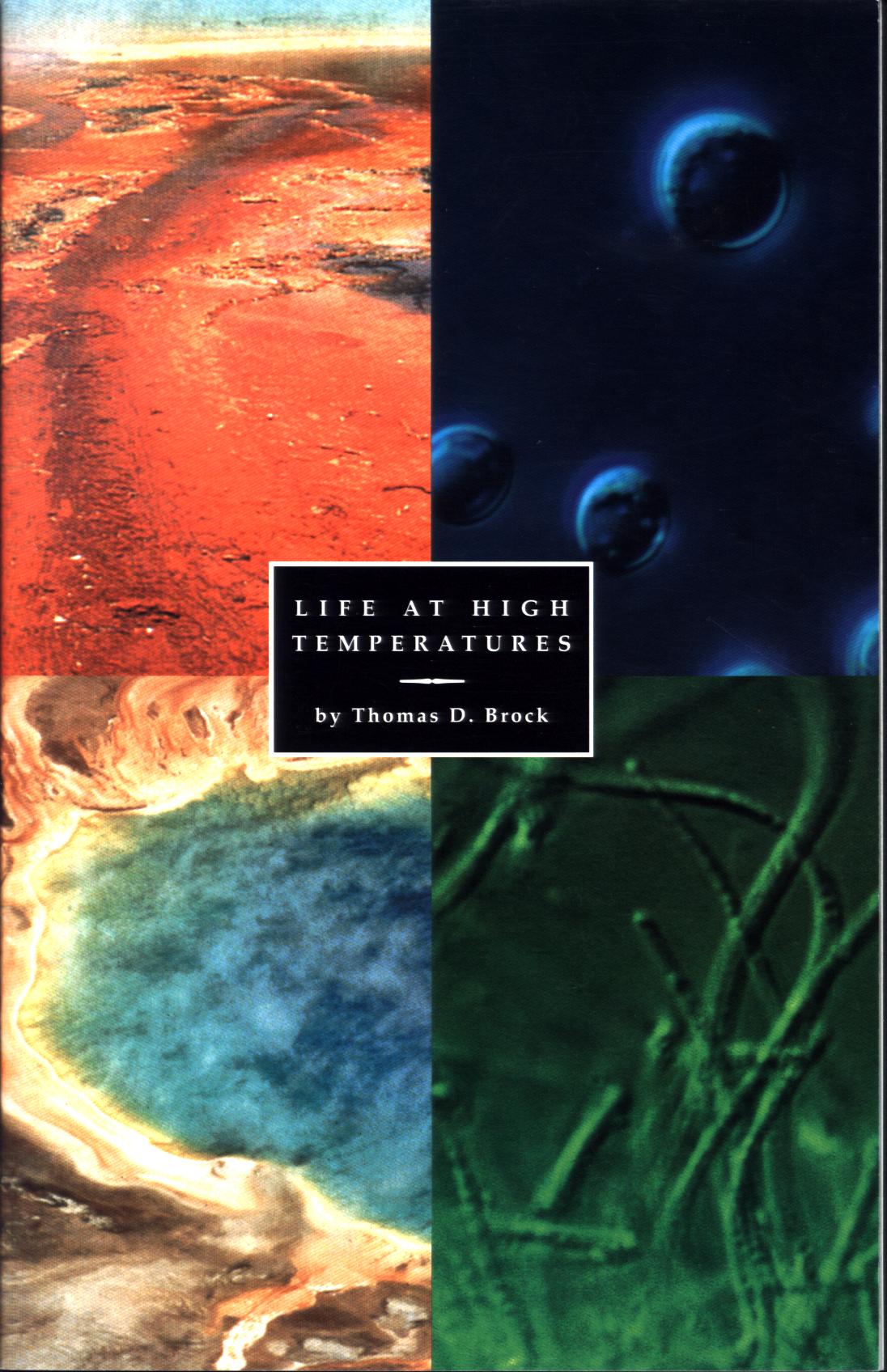 LIFE AT HIGH TEMPERATURES. by Thomas D. Brock.
LIFE AT HIGH TEMPERATURES. by Thomas D. Brock.
Story of microorganisms that live in the boiling waters and runoff channels of the geysers and hot springs. Although their vast numbers make their color visible to the naked eye, an individual microbial cell is so small it is invisible. Most of the microorganisms are bacteria but where temperatures are lower, algae and protozoa are also present. Discovered in the 1960s, they have had major uses in the biotechnology industry with the potential for billions of dollars of activity..
Called thermophiles, the types present vary with the temperature, acidity, and mineral content of the hot water. Explains origins of waters and of thermal features and characteristics of many of those in Yellowstone. Also tells how more familiar plants and animals relate to waters that are up to 113 degrees Fahrenheit. Color photographs, 32 pages.
Inventory = 1. ISBN: 0-9349480-7-0. 1994. Order #: YELL2731 paper$3.95.
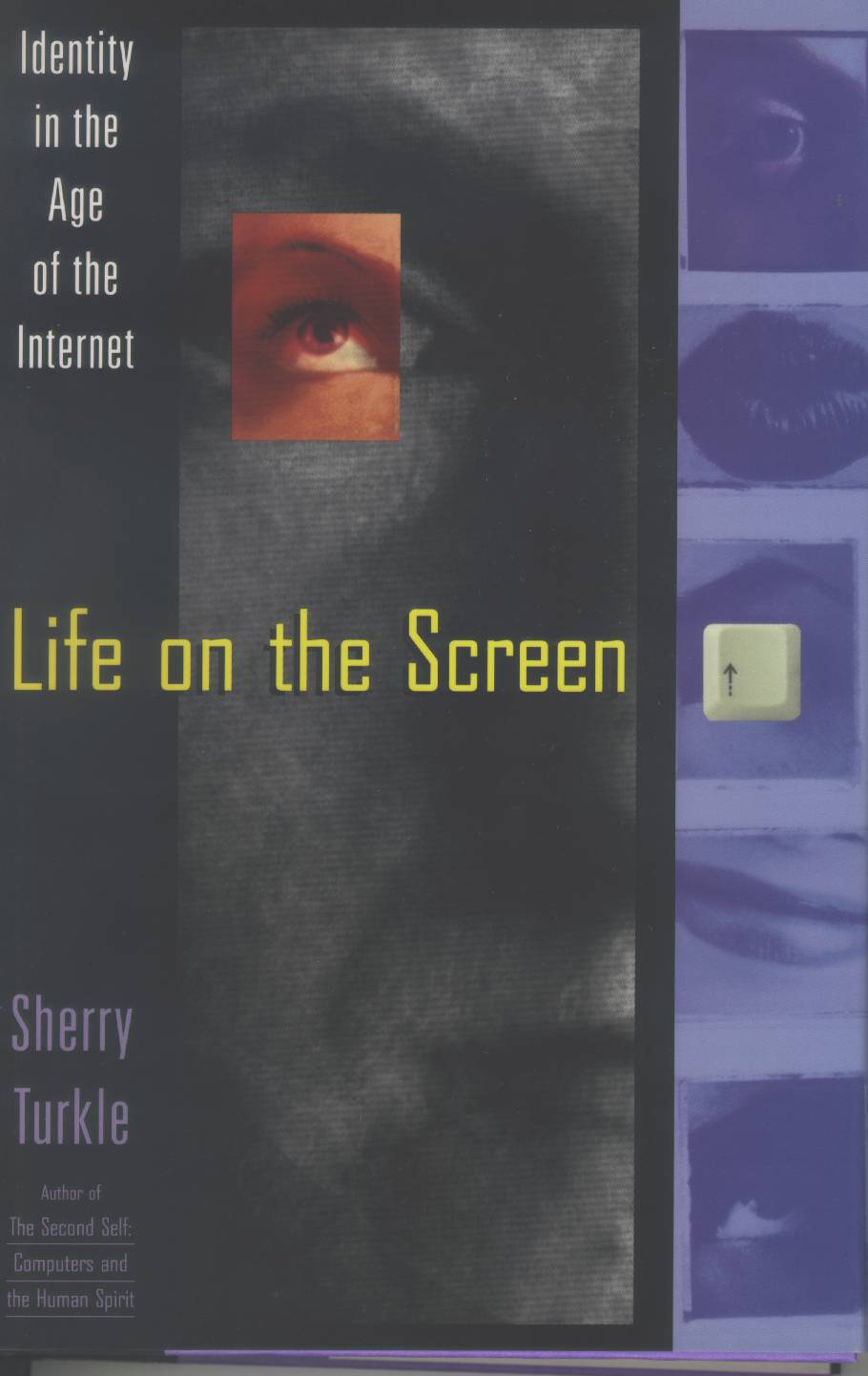 LIFE ON THE SCREEN: identity in the age of the internet. by Sherry Turkle.
LIFE ON THE SCREEN: identity in the age of the internet. by Sherry Turkle.
The relationship between
computers and people. Tells the story of the changing impact of the computer in our psychological lives and our evolving ideas about minds, bodies, and machines. Describes trends in computer design, in artificial intelligence and in people's experiences of virtual environments that confirm a dramatic shift in our notions of self, other, machine, and work. The computer merges as an object that brings postmodernism down to earth.. Notes, 347 pages, index.
Inventory =1. ISBN: 0-684-80353-4. 1995. Order #: SISC6107 cloth$25.00.
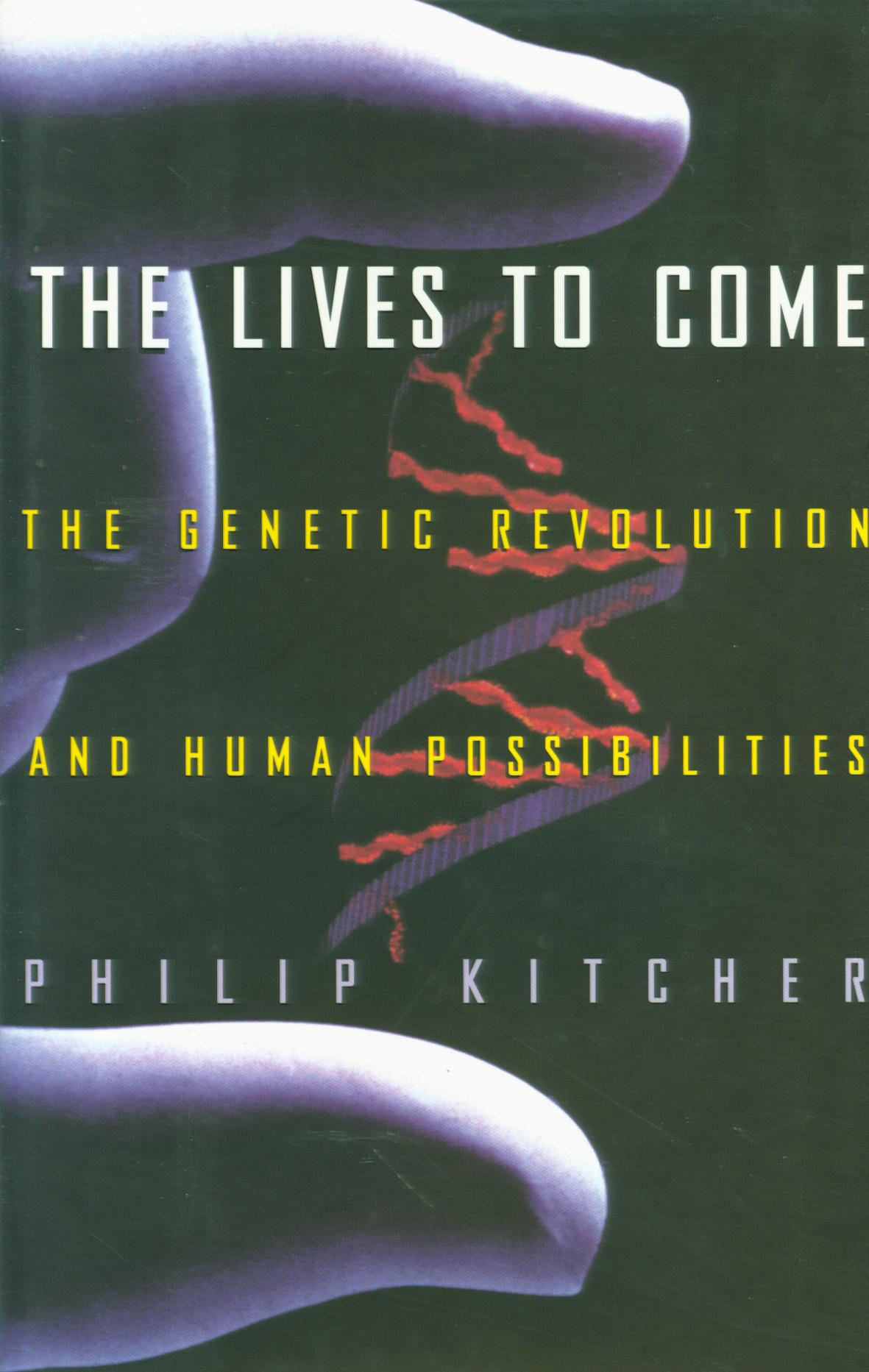 THE LIVES TO COME: the genetic revolution and human possibilities. by Philip Kitcher.
THE LIVES TO COME: the genetic revolution and human possibilities. by Philip Kitcher.
Molecular biology raises scientific and moral issues as the human gene is mapped in the Human Genome Project. Addresses the hopeful possibilities of genetic testing but also implications for insurance and employment. Explores how human genetic knowledge affects or choices--particularly ethical and reproductive choices--we may make for ourselves and the options we may allow to each other. Notes, glossary, 381 pages index..
Inventory =1. ISBN: 0-684-80055-1. 1996. Order #: SISC7772 cloth$25.00.
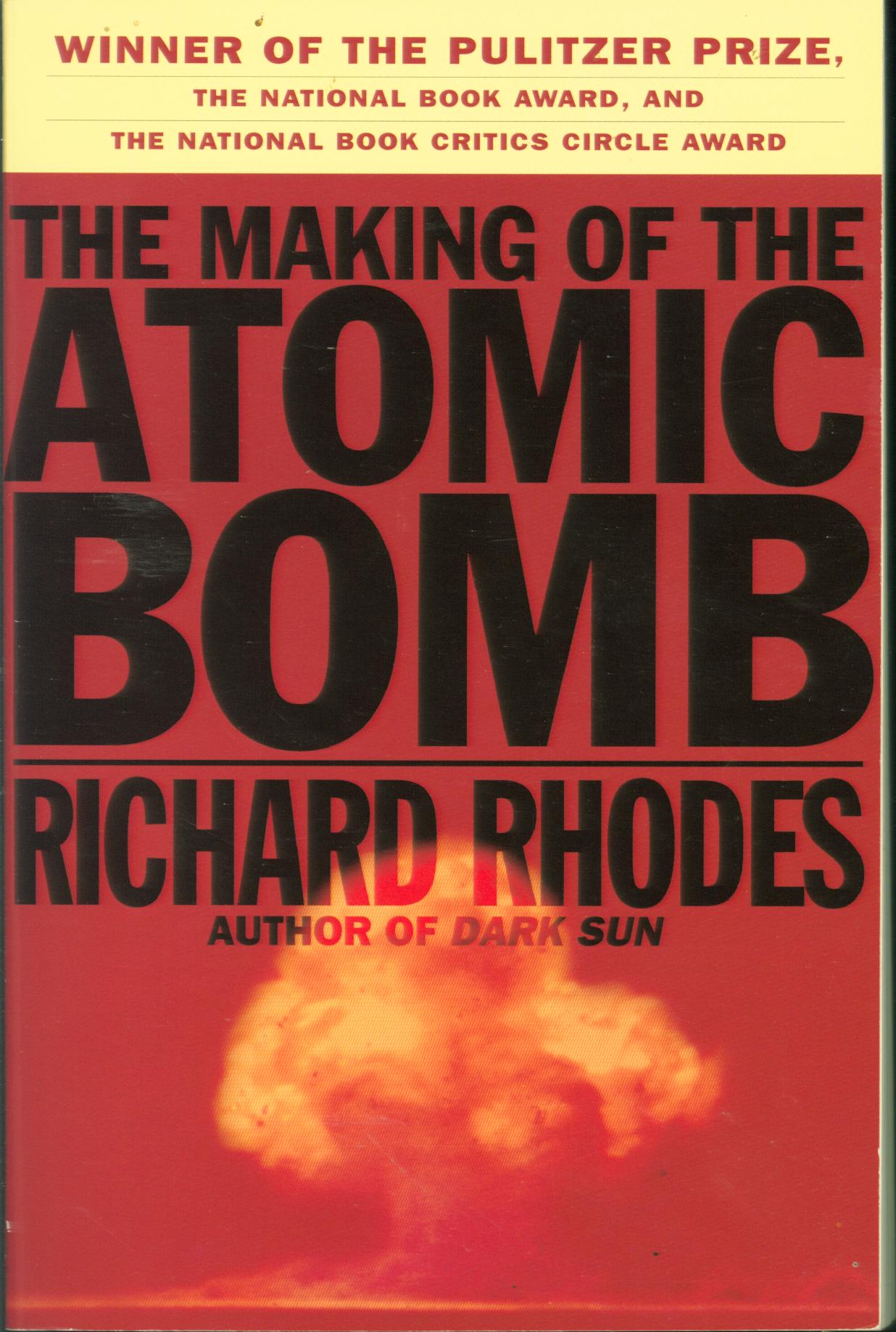 THE MAKING OF THE ATOMIC BOMB. by Richard Rhodes.
THE MAKING OF THE ATOMIC BOMB. by Richard Rhodes.
Complete story of how the bomb was developed, from the 1900s discovery of the vast energy locked inside the atom to the dropping of the first bombs on Japan. Beginning as an interesting speculative problem in physics, the effort grew into the Manhattan Project and then rapidly into the bomb itself, produced by scientists known only to their peers but to assume notoriety and controversy. Photographs, 886 pages, bibliography and index.
Inventory =1. ISBN: 0-684-81378-5. 1986. Order #: SISC6151 paper$16.00.
 THE MAKING OF THE ATOMIC BOMB. by Richard Rhodes.
THE MAKING OF THE ATOMIC BOMB. by Richard Rhodes.
Complete story of how the bomb was developed, from the 1900s discovery of the vast energy locked inside the atom to the dropping of the first bombs on Japan. Beginning as an interesting speculative problem in physics, the effort grew into the Manhattan Project and then rapidly into the bomb itself, produced by scientists known only to their peers but to assume notoriety and controversy. Photographs, 886 pages, bibliography and index.
Inventory =1. ISBN: 0-684-81378-5. 1986. Order #: SISC6151 paper$16.00.
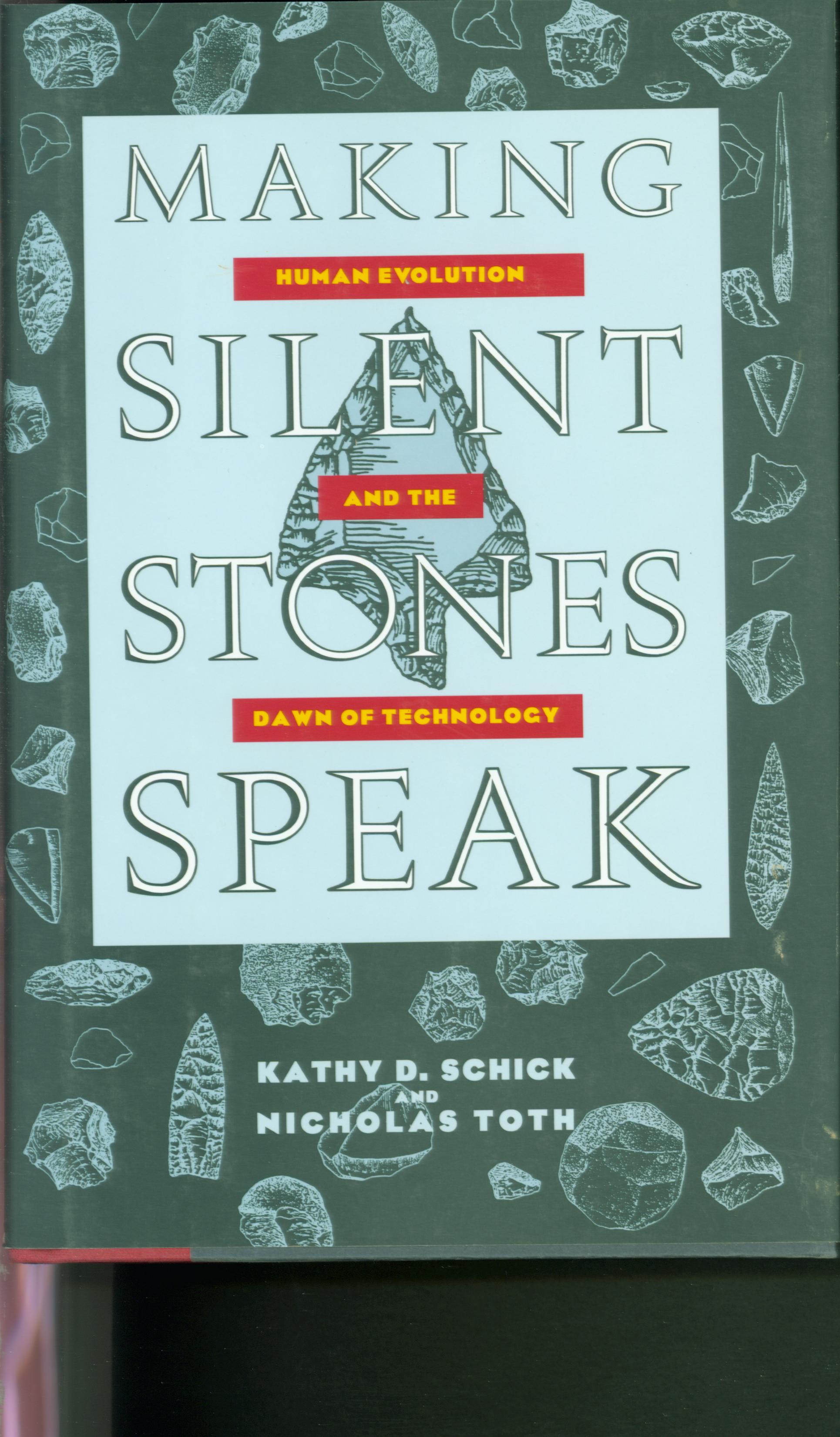 MAKING SILENT STONES SPEAK: human evolution and the dawn of technology--cloth. by Kathy D. Schick & Nicholas Toth.
MAKING SILENT STONES SPEAK: human evolution and the dawn of technology--cloth. by Kathy D. Schick & Nicholas Toth.
Latest thinking on human origins. Authors reconstruct the lives of our human ancestors, starting with discoveries in archaeological sites in many areas of the world to show how early stone tools were made, and thus how technology is an important factor in human evolution. But human behaviors have been as important as biology. 100 photographs and drawings, 352 pages, index.
Inventory = 1. ISBN:0-671-69371-9. 1993. Order #: SISC3514 cloth$25.00.
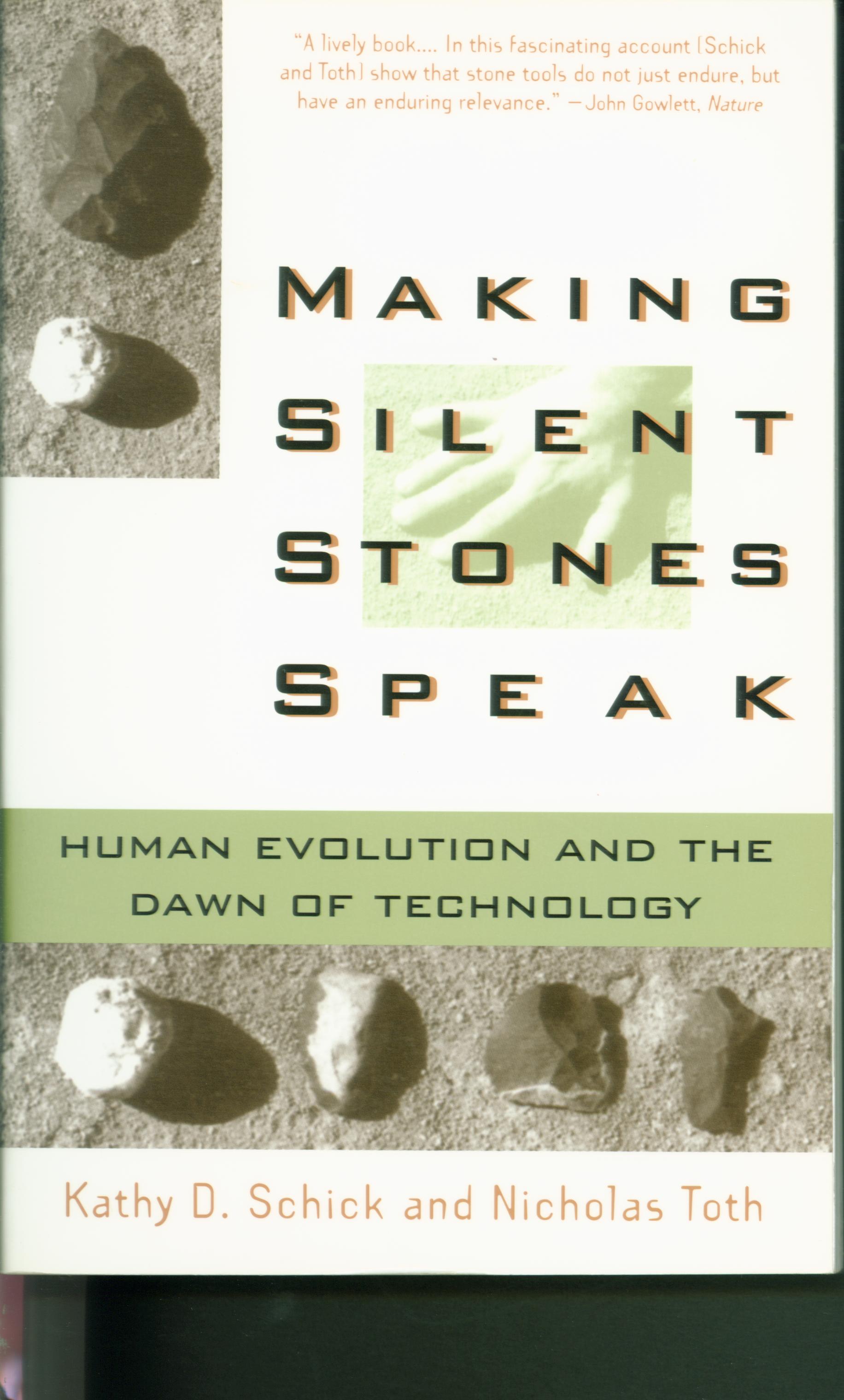 MAKING SILENT STONES SPEAK: human evolution and the dawn of technology--paper. Schick & Toth.
MAKING SILENT STONES SPEAK: human evolution and the dawn of technology--paper. Schick & Toth.
Latest thinking on human origins. Authors reconstruct the lives of our human ancestors, starting with discoveries in archaeological sites in many areas of the world to show how early stone tools were made, and thus how technology is an important factor in human evolution. But human behaviors have been as important as biology. 100 photographs and drawings, 352 pages, index.
Inventory =1. ISBN: 0-671-87538-8. 1993. Order #: SISC6407 paper$13.00.
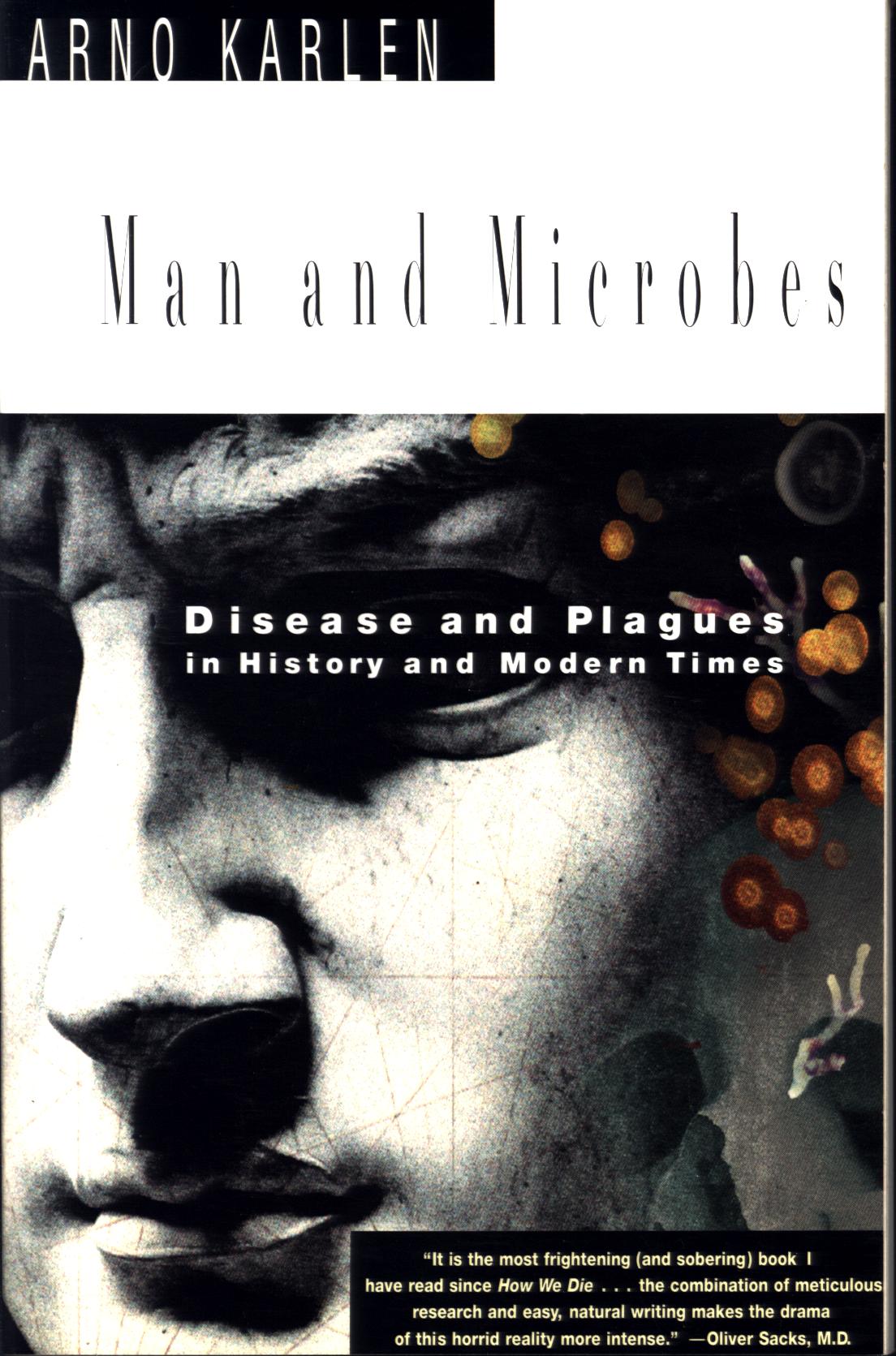 MAN AND MICROBES: disease and plagues in history and modern times. by Arno Karlen.
MAN AND MICROBES: disease and plagues in history and modern times. by Arno Karlen.
Points out the alarming tide of new diseases rising around the world and asks "Where do new diseases come from?", "Why have old ones returned with sharper virulence?", " Why now?".Presents a panorama of the natural history of disease including the measles and smallpox that raked ancient empires, the intertwined stories of leprosy and tuberculosis , the onslaught of European microbes that devastated the aboriginal peoples of the Americas, and the pandemic of 1918 that killed tens of millions.. How we have brought these new diseases on by changing our environment and our behavior. 266 pages,index.
Inventory =1. ISBN: 0-684-82270-9. 1995. Order #: SISC8801 paper$13.00.
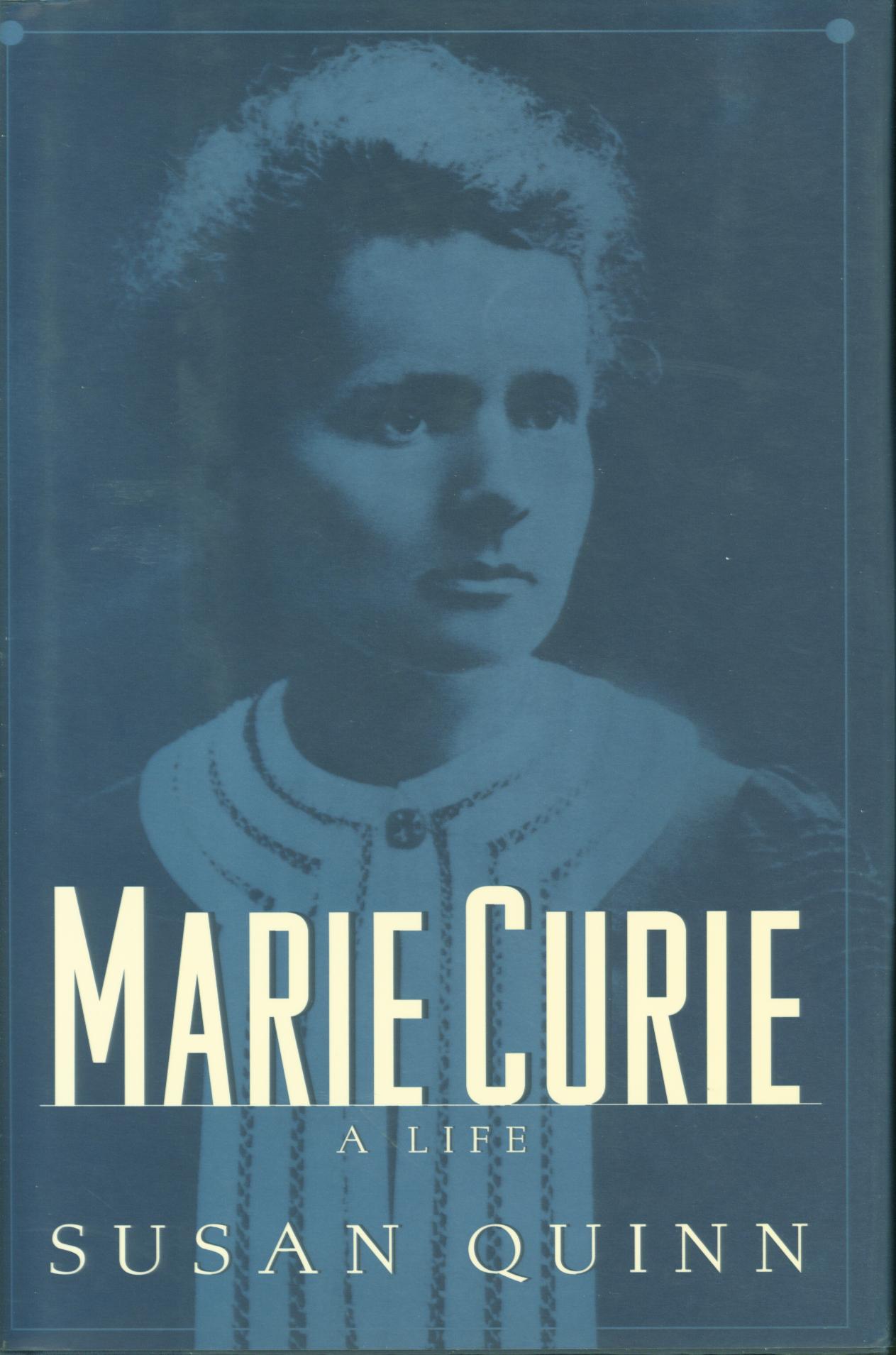 MARIE CURIE: a life. by Susan Quinn.
MARIE CURIE: a life. by Susan Quinn.
Biography of X-ray pioneer of Polish heritage, winner of two Nobel prizes, discoverer of radium and plutonium, realization that radiation was an atomic process, and the events and relationships in her personal life that facilitated and/or had be overcome to maintain disciplined research--being a mother, a widow, and a lover. 509 pages.
Inventory =1. ISBN: 0-671-67542-1. Order #: SISC4569 cloth$30.00.
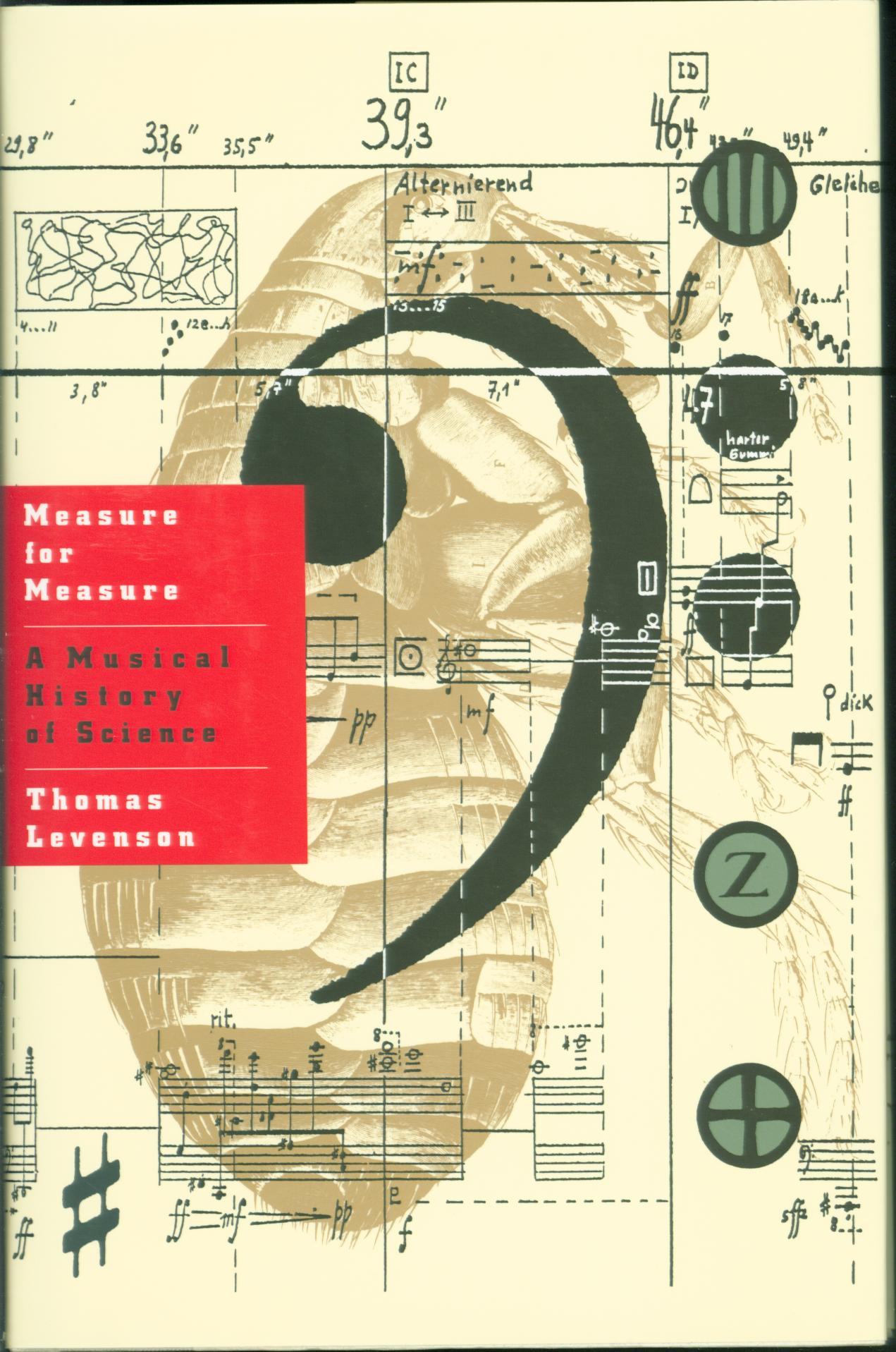 MEASURE FOR MEASURE: a musical history of science--paper. by Thomas Levenson.
MEASURE FOR MEASURE: a musical history of science--paper. by Thomas Levenson.
Guide to music's mathematical underpinnings and a lively tour through the history of science. Drawings, 351 pages, index.
Inventory =1. ISBN: 0-684-80434-4. Order #: SISC6105 paper$14.00.
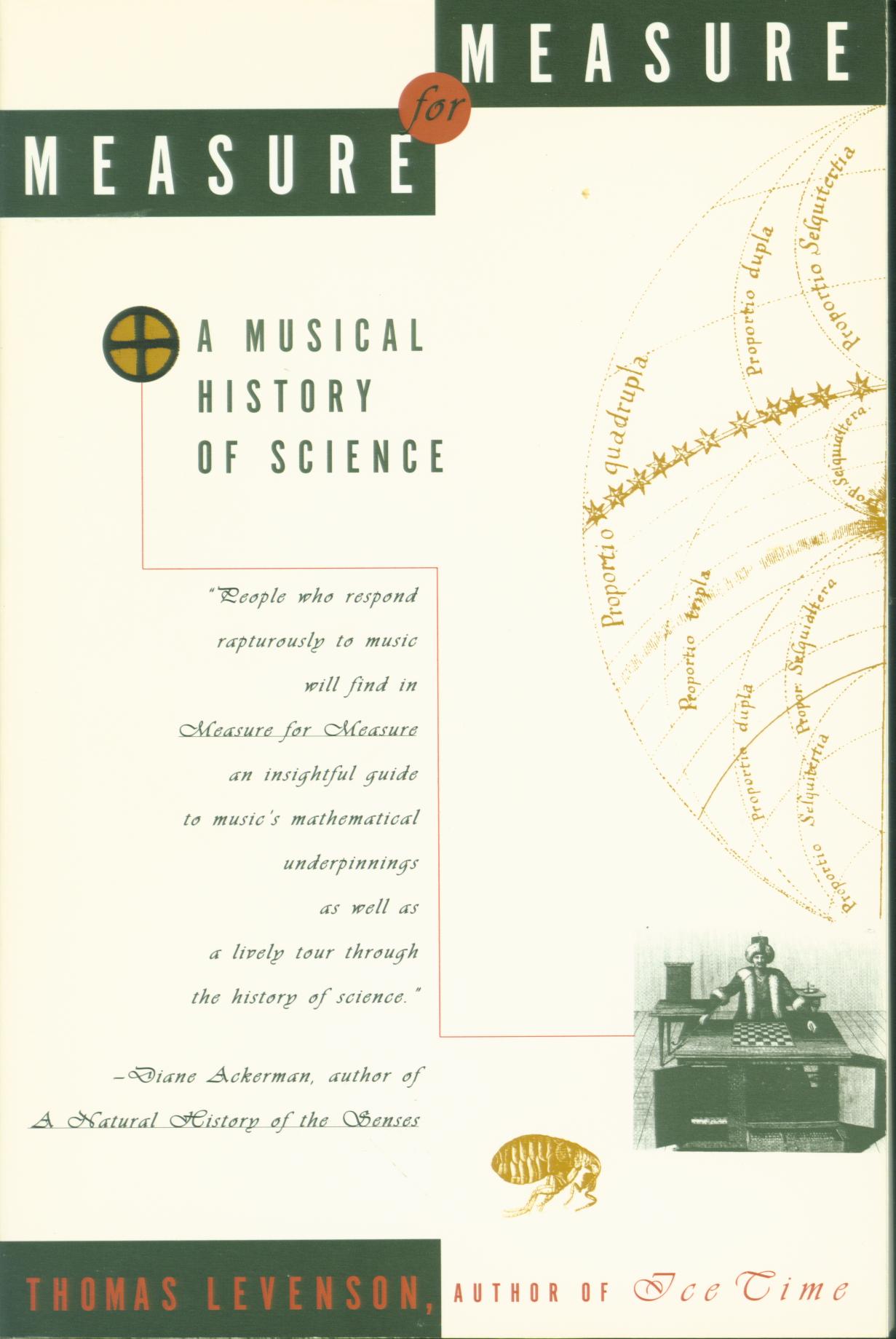 MEASURE FOR MEASURE: a musical history of science--cloth. by Thomas Levenson.
MEASURE FOR MEASURE: a musical history of science--cloth. by Thomas Levenson.
Insightful guide to music's
mathematical underpinnings from 2,500 years ago when the musical scale was discovered to the present. The story unfolds through the tales of instruments scientific and musical; the origin of the microscope, the still, the scales, Stradivari's miraculous violins and cellos, computers, and synthesizers. Drawings, 351 pages, index .
Inventory =1. ISBN: 0-67-78730-6. Order #: SISC4570 cloth$25.00.
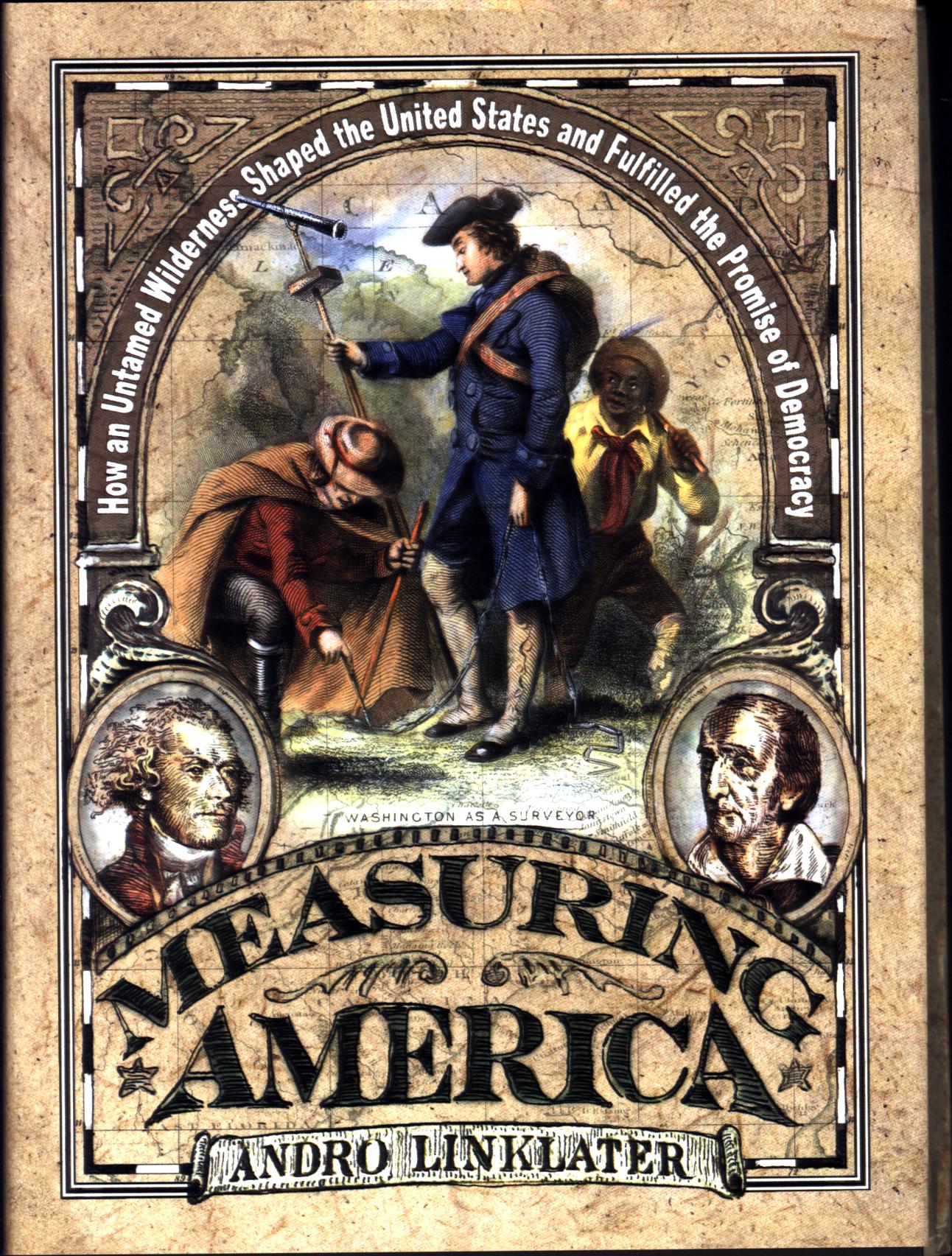 MEASURING AMERICA. by Andro Linklatr.
MEASURING AMERICA. by Andro Linklatr.
How America came to adopt a uniform system of weights and measures based on a then-traditional system and not on decimal values. Following the war for freedom, the debts incurred winning that had to be paid, and land was to be the asset sold to raise money to do so. But some 100,000 units of measure were in place in the country and so Washington in his first presidential address to Congress proposed unification of measures as well as a monetary system. He, Thomas Jefferson, James Monroe, Alexander Hamilton and many others championed a system based on increments of ten, each measurement type based on some universal constant. However, the use by surveyors of the 22-yard chain both in America and Britain led us instead to the American Customary System, the last traditional system in the world. A thorough discussion of how these units were applied and their effect on American culture and life. 310 pages, illustrations, index.
Inventory = 1. ISBN: 0-8027-1396-3. 2002. Order #: MISC2745 cloth$14.95.
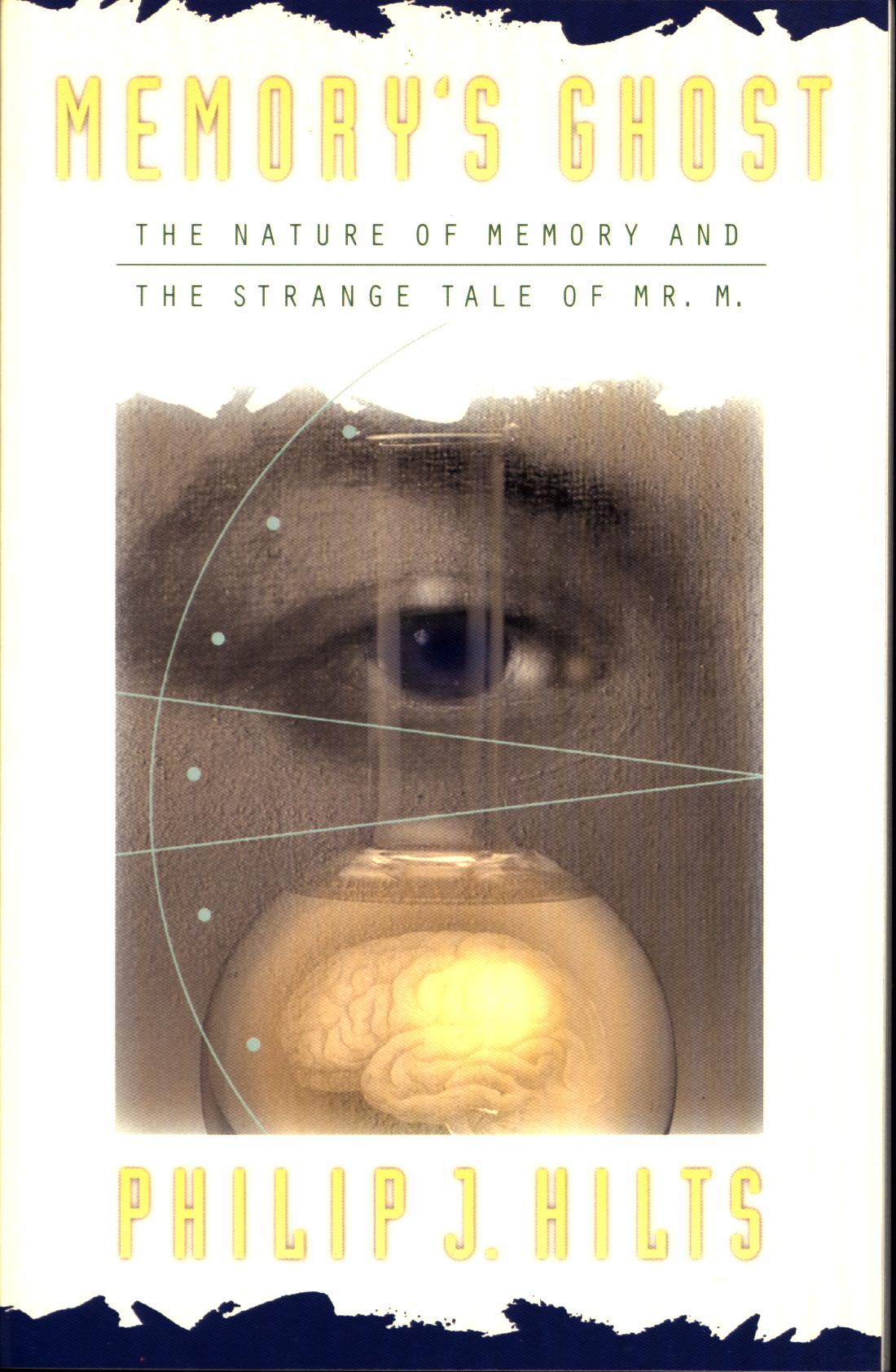 MEMORY'S GHOST: the nature of memory and the strange tale of Mr. M. by Philip J. Hilts.
MEMORY'S GHOST: the nature of memory and the strange tale of Mr. M. by Philip J. Hilts.
The mechanics
of memory and what it means to be human. How an individual's]s memory is constructed. When and why memory fails. T/he efficacy of mnemonic devices, the validity of "recovered " memories. Bibliography, 253 pages, index..
Inventory =1. ISBN: 0-684-82356-X. 1996. Order #: SISC8810 paper$12.00.
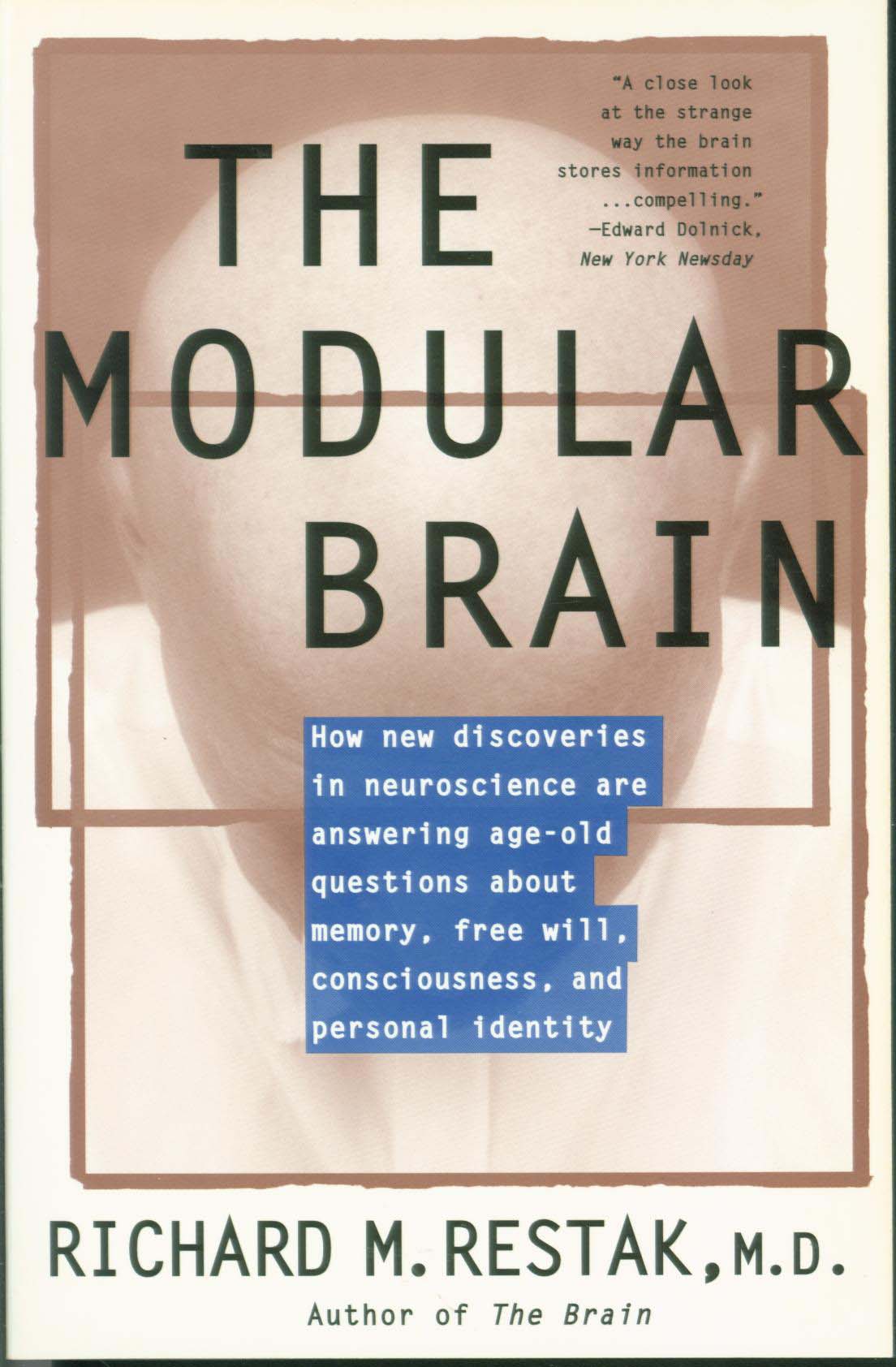 THE MODULAR BRAIN--paper. by Richard M. Restak.
THE MODULAR BRAIN--paper. by Richard M. Restak.
How new discoveries in neuroscience are answering age-old
questions about memory, free will, consciousness, and personal identity. Gain new understanding of consciousness, dreams, drugs, emotions, memory loss, and kindred subjects. A close look at the way the brain stores information, that parts of the brain are specialized to manage certain purposes of memory, motion, or action. Drawings, 218 pages, index.
Inventory =1. ISBN: 0-684-80126-4. 1994. Order #: SISC6006 paper$14.00.
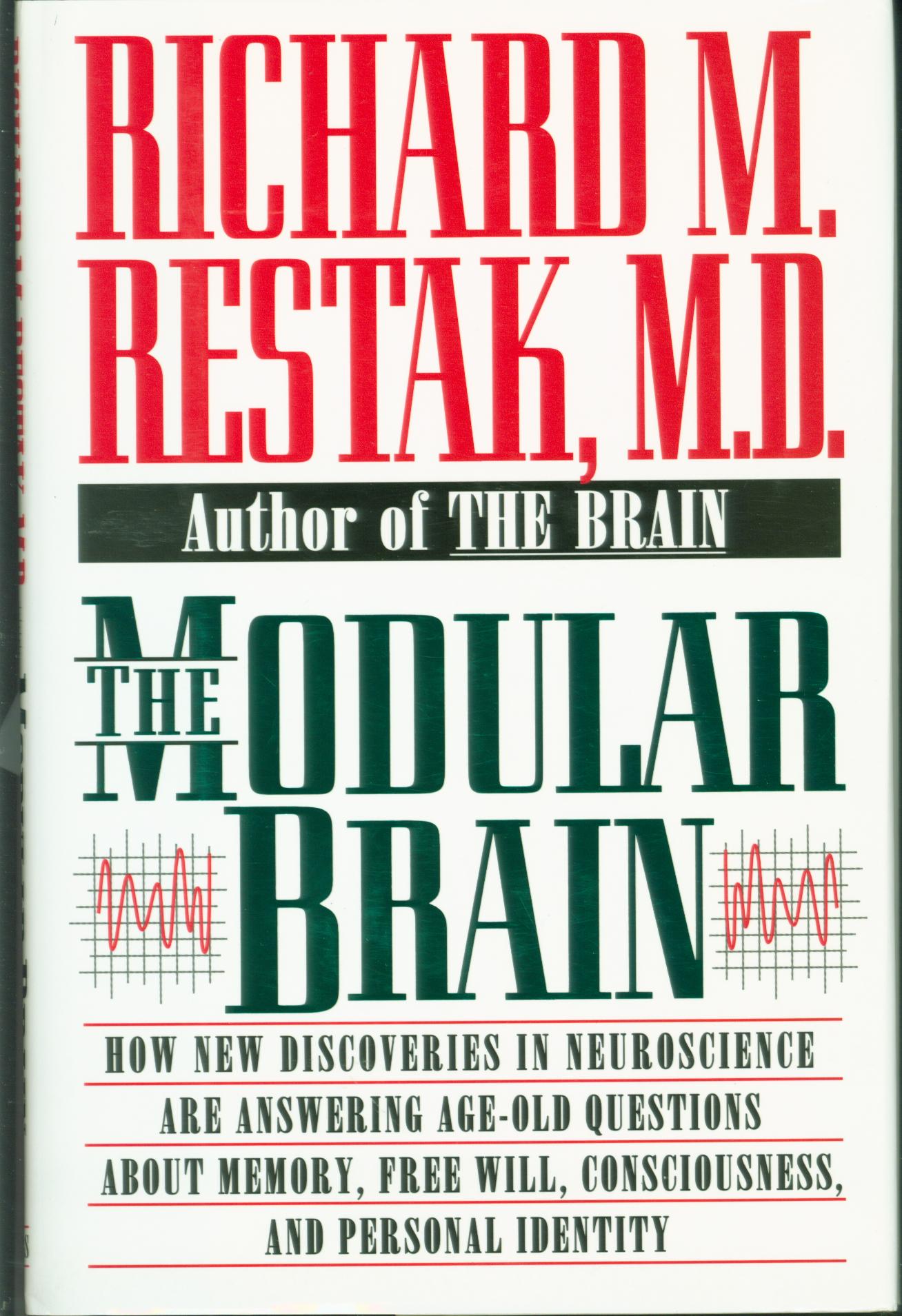 THE MODULAR BRAIN--cloth. by Richard M. Restak.
THE MODULAR BRAIN--cloth. by Richard M. Restak.
How new discoveries in neuroscience are answering age-old
questions about memory, free will, consciousness, and personal identity. Gain new understanding of consciousness, dreams, drugs, emotions, memory loss, and kindred subjects. A close look at the way the brain stores information, that parts of the brain are specialized to manage certain purposes of memory, motion, or action. Drawings, 218 pages, index.
Inventory =1. ISBN: 0-684-19544-54. 1994. Order #: SCRI6006 cloth$22.00.
 A PERFECT HARMONY: the intertwining lives of animals and humans throughout history. by Roger A. Caras.
A PERFECT HARMONY: the intertwining lives of animals and humans throughout history. by Roger A. Caras.
Observes that we are all the products of cultures, histories, and events that were made possible by domestication of animals. What would we do without them? is asked and the answer is as personal as the pets we keep, the food we eat, and the clothes we wear, a panorama as the history of mankind. We would still be hunting for meat, for example. Ideas about how man has successfully domesticated some animals, like the horse but failed with others, as with the zebra. And some domesticated animals have been used to manager others: horse/cattle; dog/sheep; cormorant/fish are examples. Drawings,
271 pages, index.
Inventory =1. ISBN: 0-684-81100-6. 1996. Order #: SISC8809 cloth$23.00.
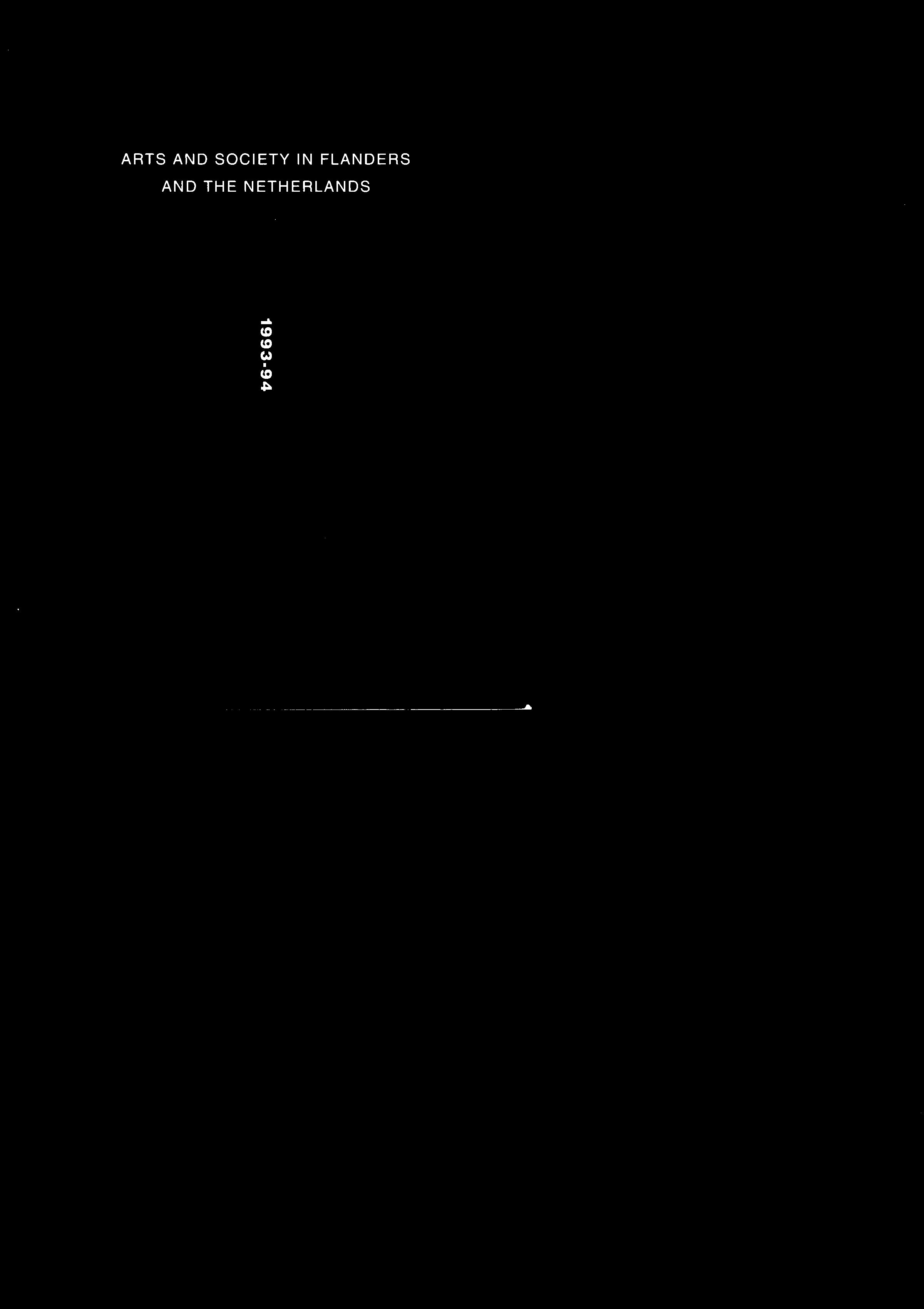 A POPULAR TREATISE ON THE ART OF PHOTOGRAPHY;
including Daguerreotype and all the new methods of producing pictures by the chemical agency of light. by Robert Hunt.
A POPULAR TREATISE ON THE ART OF PHOTOGRAPHY;
including Daguerreotype and all the new methods of producing pictures by the chemical agency of light. by Robert Hunt.
Reprint of an 1841 publication by this pioneer in photography. Also details Hunt's life, challenges he dealt with in pursuing the knowledge that resulted in his discovery of the principles and processes that can make pictures from images. An important resource for historians, scholars, and scientists and technologists in this field. Treatise is 96 pages with engravings and it is preceded with 76 pages of notes and references and a 6 page introduction.
Inventory = 2.ISBN: 0-8214-0127-0. 1973. Order #: OHIO3427 cloth$10.00.
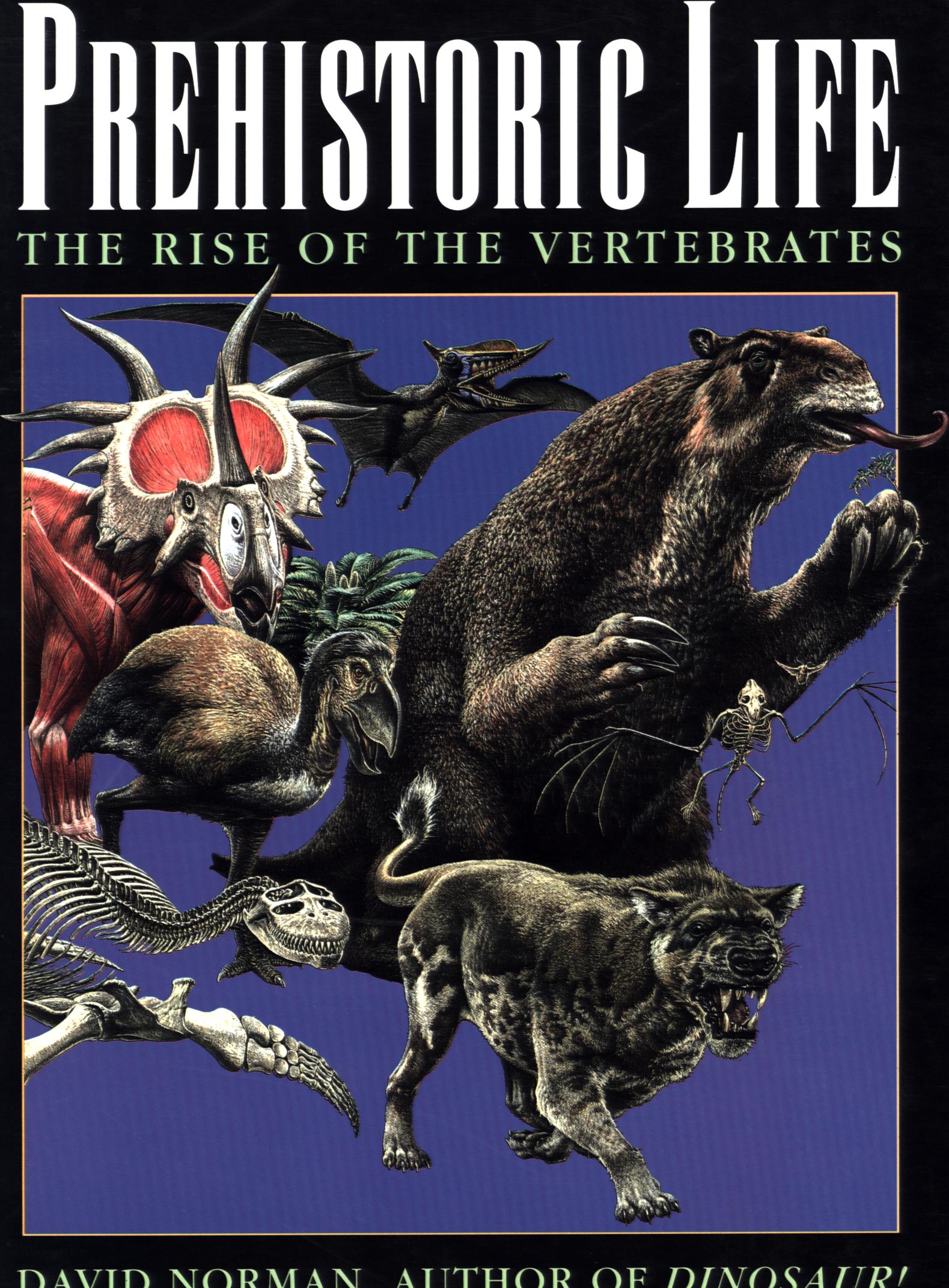 PREHISTORIC LIFE: the rise of the vertebrates. by David Norman.
PREHISTORIC LIFE: the rise of the vertebrates. by David Norman.
Traces emergence of life from earliest complex organisms to rise of
mammals (including humans), scientific theories on origins of life, environmental changes that influenced
evolution. Discusses the preservation, discovery, and interpretation of fossils and relates them to time periods on Earth as well as to the shifting positions of the continents. Tells of the development of special organs such as ears and lungs and presents those species that have more of the characteristics of modern humans as well as some of the cultural traits of our species. Includes section on further reading. Color photos and drawings, 246 large-format pages, index. See sample pages, illustrations.
Inventory = 1. ISBN: 0-671-79940-1. 1994. Order #: MACM8538 cloth w/dust jacket$30.00.
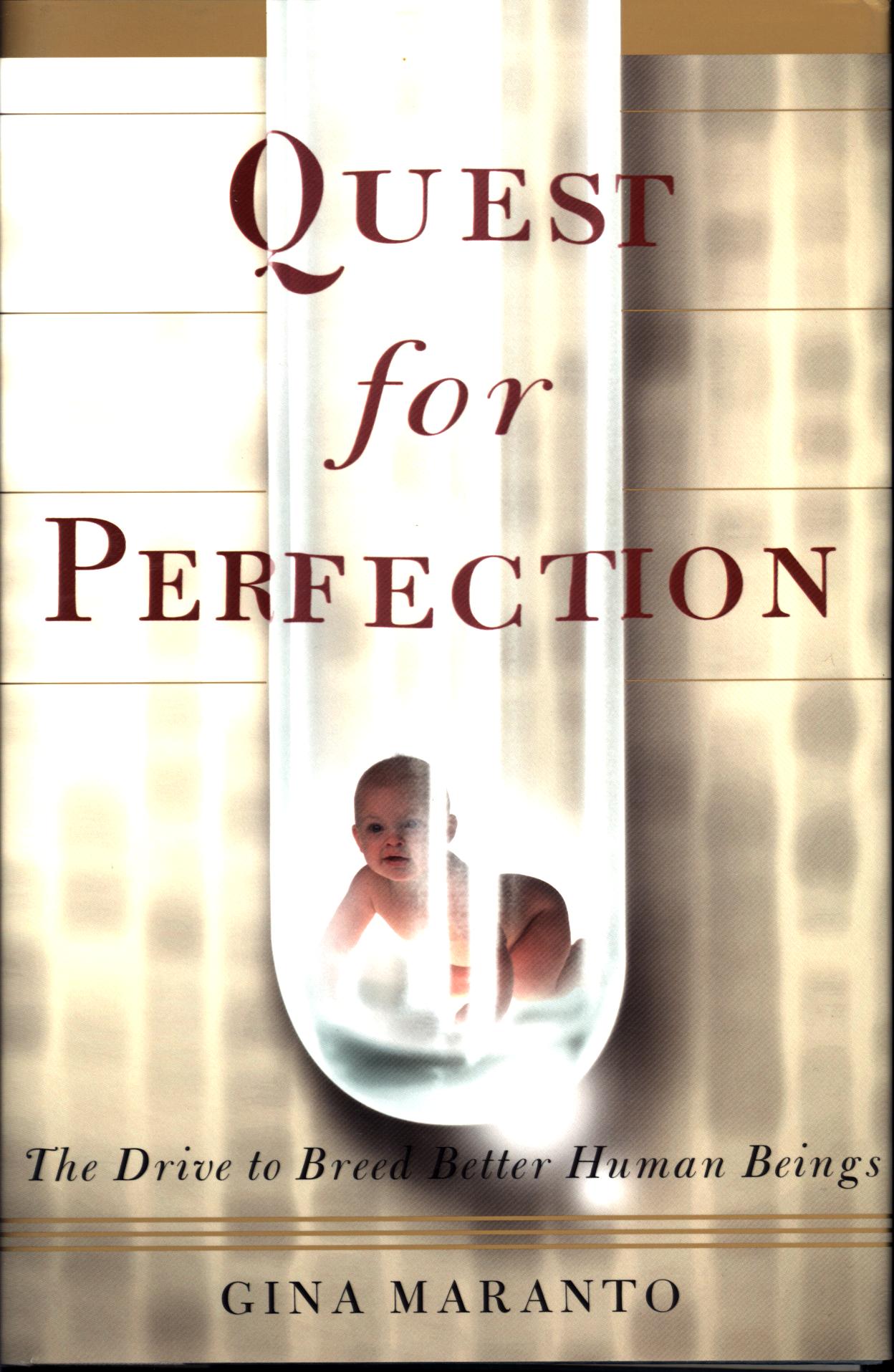 QUEST FOR PERFECTION: the drive to breed better human beings. by Gina Maranto.
QUEST FOR PERFECTION: the drive to breed better human beings. by Gina Maranto.
From the selective breeding to produce in farm animals and pets those traits that humans want in them to applying the same principles to their own species, documents the attitudes of many centuries and the technological changes that make such practice more plausible, along with attitudes from various perspectives about doing this. An important contribution to the debate over the ethical and political implications of attempts to direct our own evolution. Chapter notes, bibliography, 335 pages, index.
Inventory = 1. ISBN: 0-684-80029-2 1996. Order #: SISC8808 cloth$25.00.
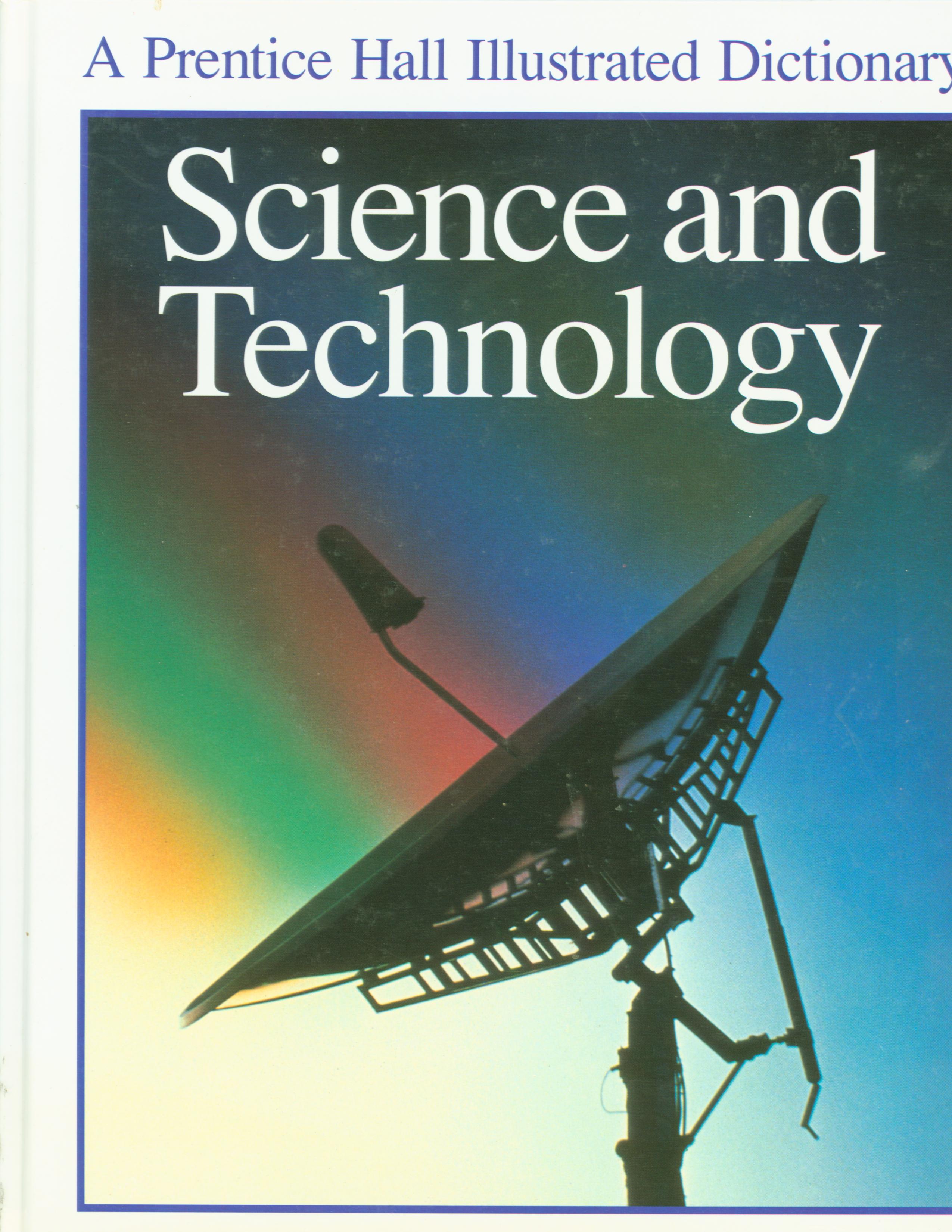 SCIENCE AND TECHNOLOGY: A Prentice Hall Illustrated Dictionary. Mellett et. al.
SCIENCE AND TECHNOLOGY: A Prentice Hall Illustrated Dictionary. Mellett et. al.
Dictionary for 9 to 14 year olds. 250 color illustrations, 160 large-format pages.
Inventory = 1. ISBN: 0-13-681727-0. Order #: PRHA4083 cloth$19.00.
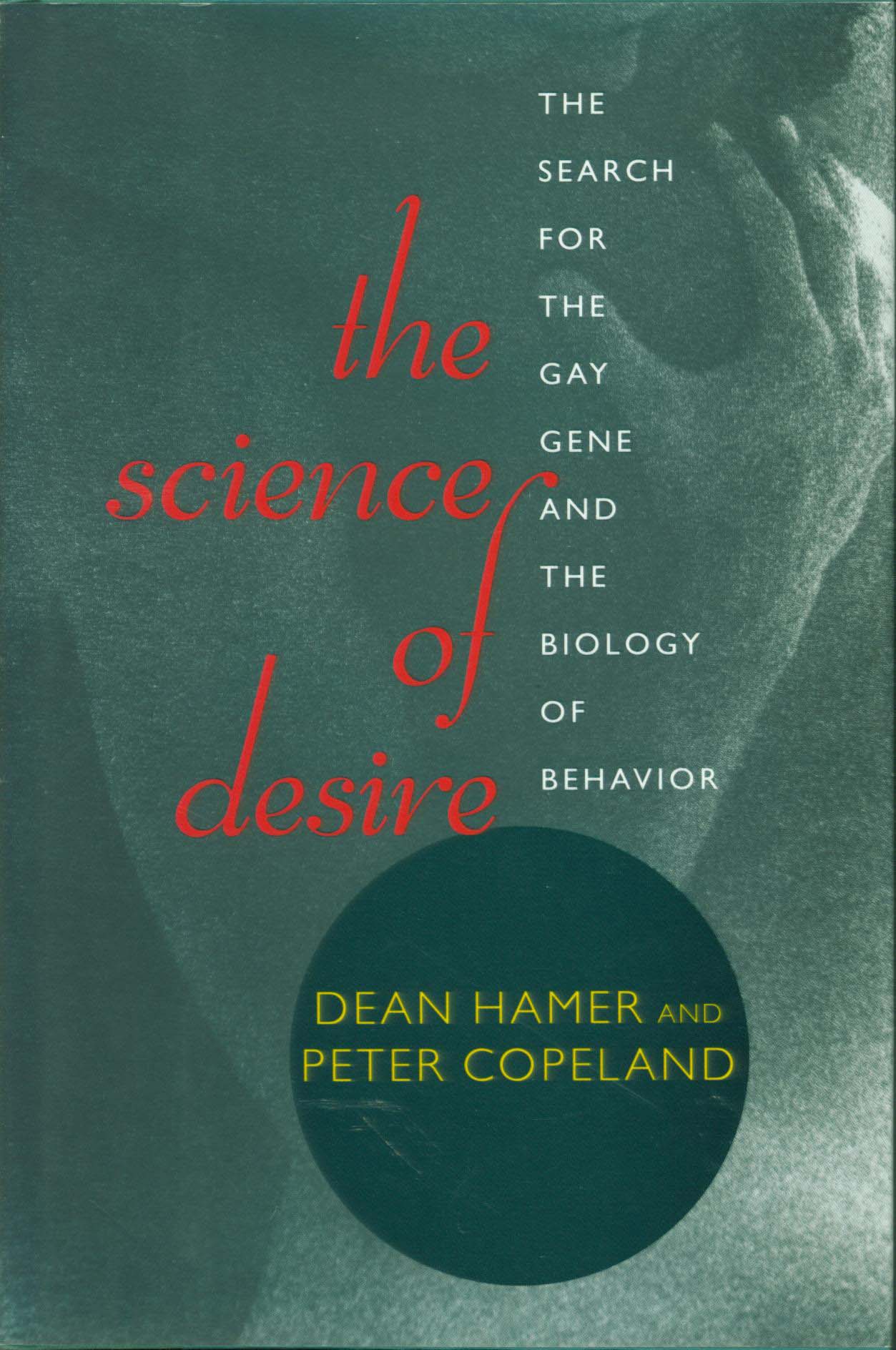 THE SCIENCE OF DESIRE: the search for the gay gene and the biology of behavior--cloth. by Dean Hamer & Peter Copeland.
THE SCIENCE OF DESIRE: the search for the gay gene and the biology of behavior--cloth. by Dean Hamer & Peter Copeland.
How it was discovered that a gene plays a significant role in determining
sexuality, and what it means for human behavior in general, bringing up the potentially turbulent relation between the biological sciences and public policy. Documents not only the discovery that sexuality is inheritable but the rage so evoked and the social, legal, and ethical consequences, giving insights into how scientists might mange such conflicts. Diagrams, 272 pages,index.
Inventory =1. ISBN: 0-671-88724-6. Order #: SISC6879 cloth$23.00.
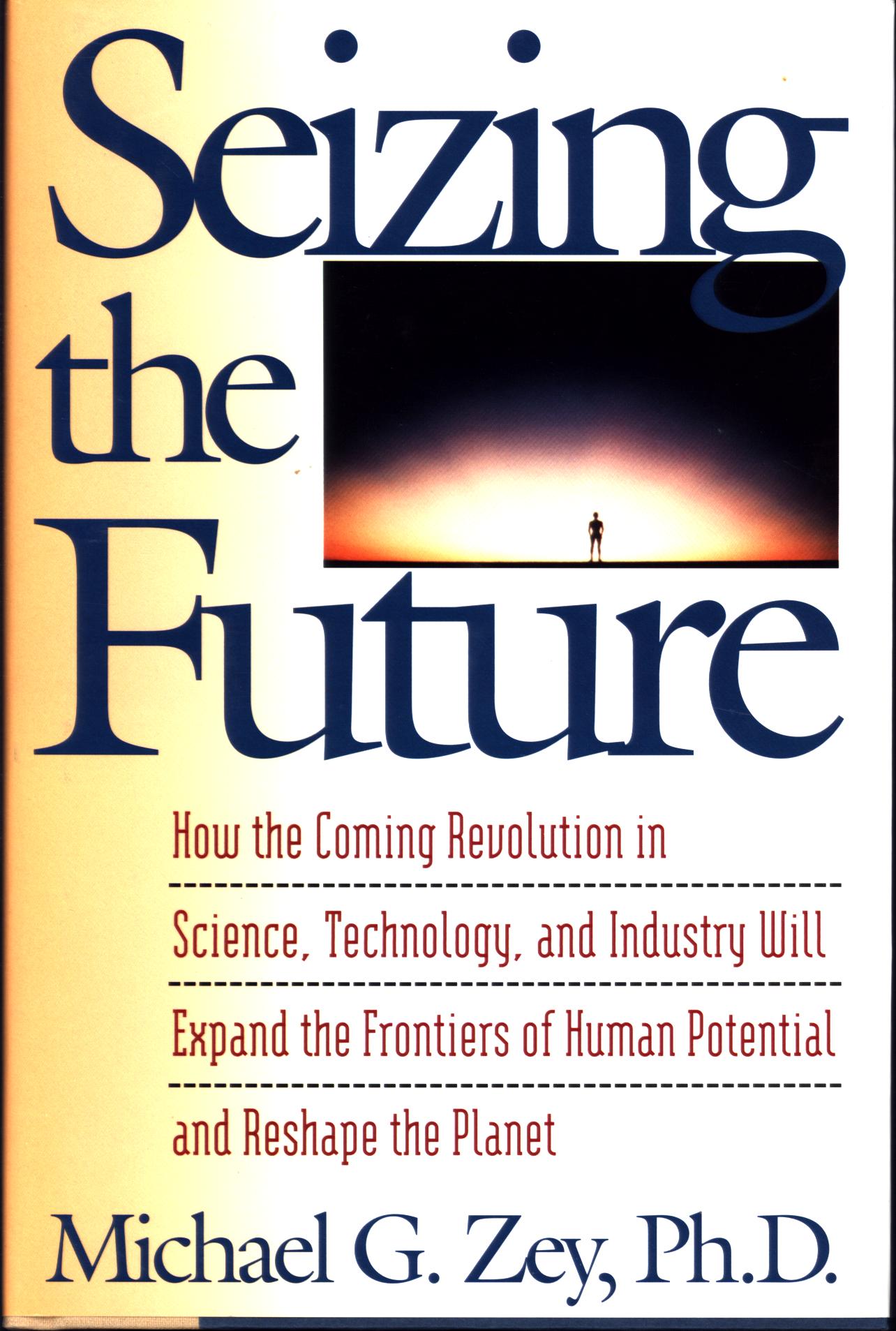 SEIZING THE FUTURE. by Michael G. Zey.
SEIZING THE FUTURE. by Michael G. Zey.
How the coming revolution in science, technology, and industry will
expand the frontiers of human potential and reshape the planet. An optimistic look at the way advances in science and technical knowledge will overcome challenges brought by expanding populations and environmental changes. Chapter notes, 414 pages, index.
Inventory =1. ISBN:0-671-74948-X. 1994. Order #: SISC0991 cloth$24.00.
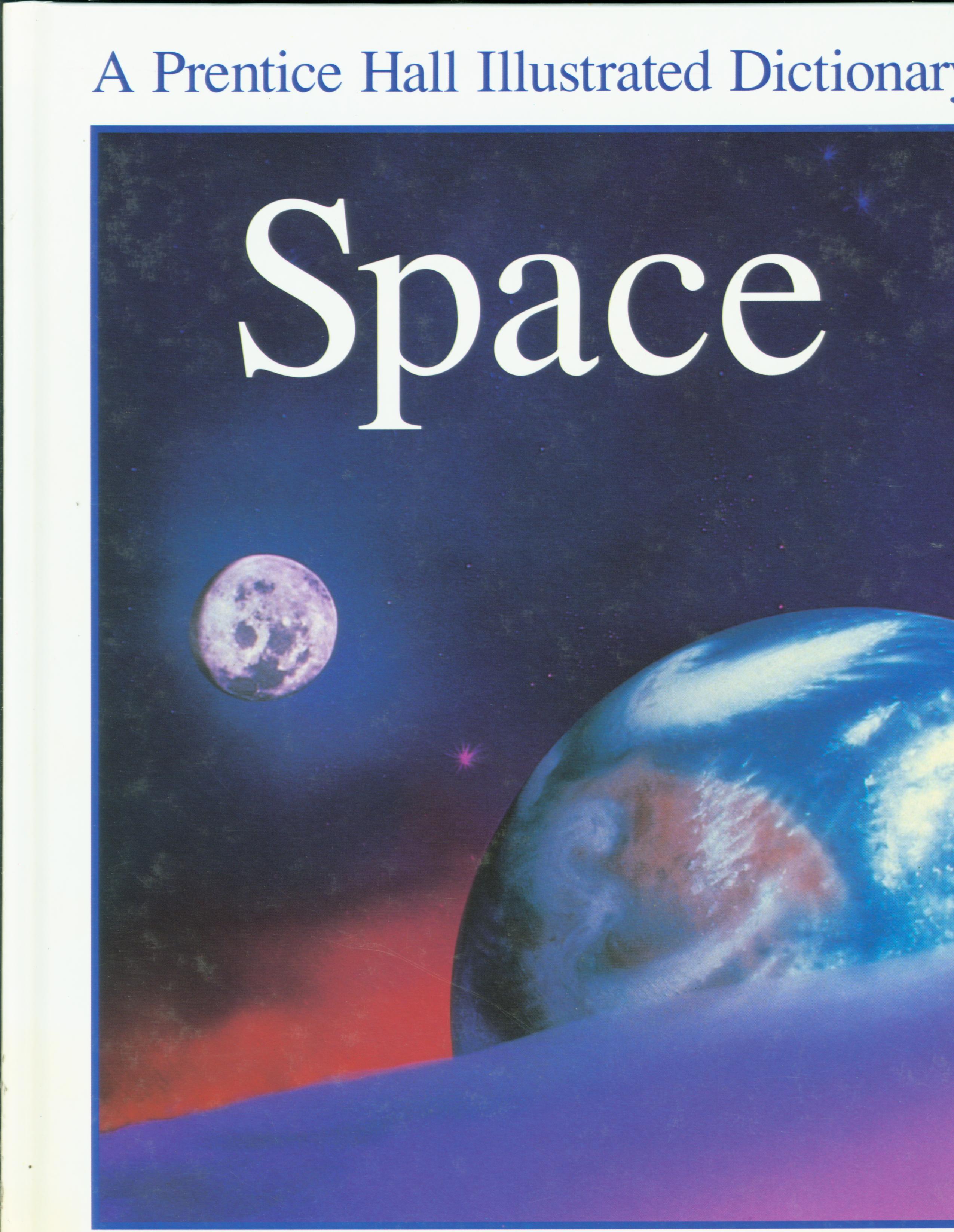 SPACE: A Prentice Hall Illustrated Dictionary. by Michael Pollard and Felicity Trotman.
SPACE: A Prentice Hall Illustrated Dictionary. by Michael Pollard and Felicity Trotman.
Dictionary of space terms for 9 to 14 year
olds; gives introduction to concepts such as planets, stars, and moons; galaxies, nebulas, and asteroids; constellations; gravity, the Big Bang, and other laws and theories.. Color drawings, 160 large-format pages.
Inventory =1. ISBN: 0-13-681743-2. 1992. Order #: PRHA4082 cloth$19.00.
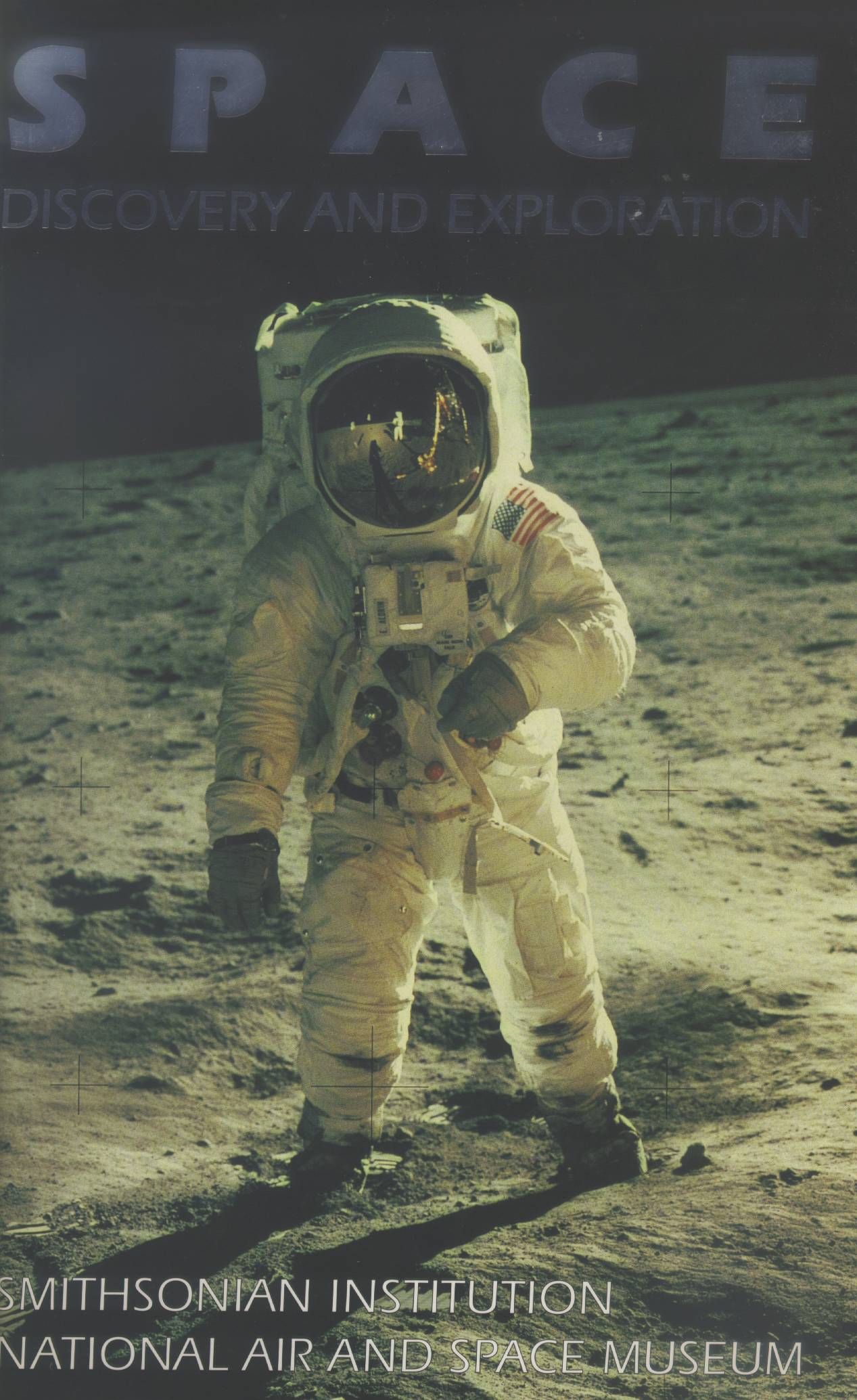 SPACE: discovery and exploration. SOLD 5/25edited by Martin J. Collins & Sylvia K. Kraemer.
SPACE: discovery and exploration. SOLD 5/25edited by Martin J. Collins & Sylvia K. Kraemer.
Begins with a chronicling of man's historical explorations of Earth by sea and by land as a precursor to modern space exploration. Narrative moves into the scientific and engineering feats that allowed this new arena for discoveries and includes the politics and economics as well as the costs of accomplishments including aspects of the Cold War and of military and governmental aspects. Presents the stories of dedicated individuals who pioneered space exploration both in the laboratory and on missions. Color and black-and-white photographs and drawings, 321
extra-large-format pages. See sample pages, illustrations.
Inventory = 0. ISBN:0-88363-893-2 1993. Order #: SISC8583 cloth$75.00. SOLD 5/25
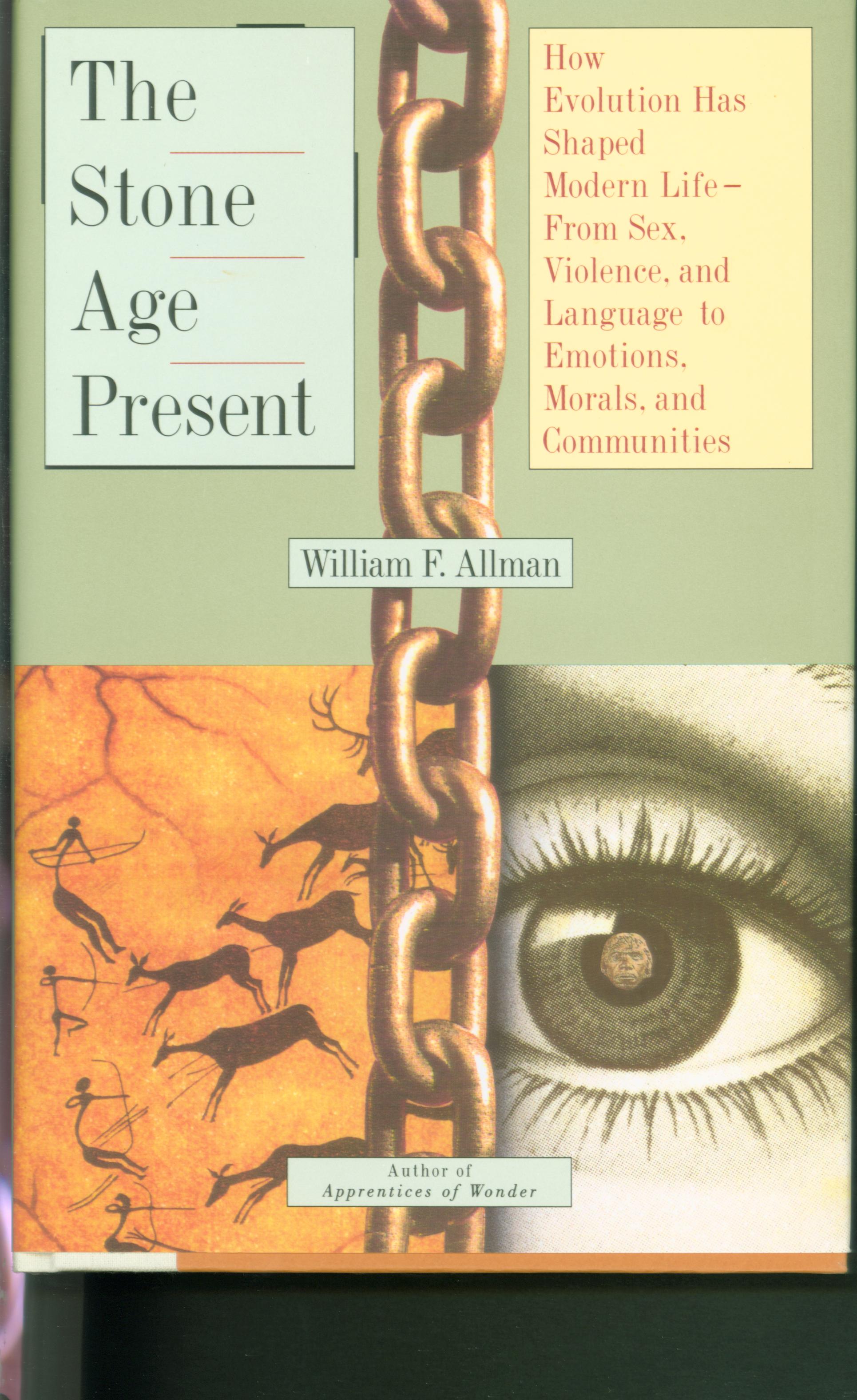 THE STONE AGE PRESENT--cloth. by William F. Allman.
THE STONE AGE PRESENT--cloth. by William F. Allman.
How evolution has shaped modern life--from sex, violence,
and language to emotions, morals, and communities. A speculation is that many of the problems and situations humans face in contemporary life have their roots in our "stone-age minds" that haven't caught up with today. Our attitudes and reactions thus are still playing out the evolutionary legacy of our ancient ancestors. 288 pages, index.
Inventory =1. ISBN: 0-671-89226-6. 1994. Order #: SISC6877 cloth$23.00.
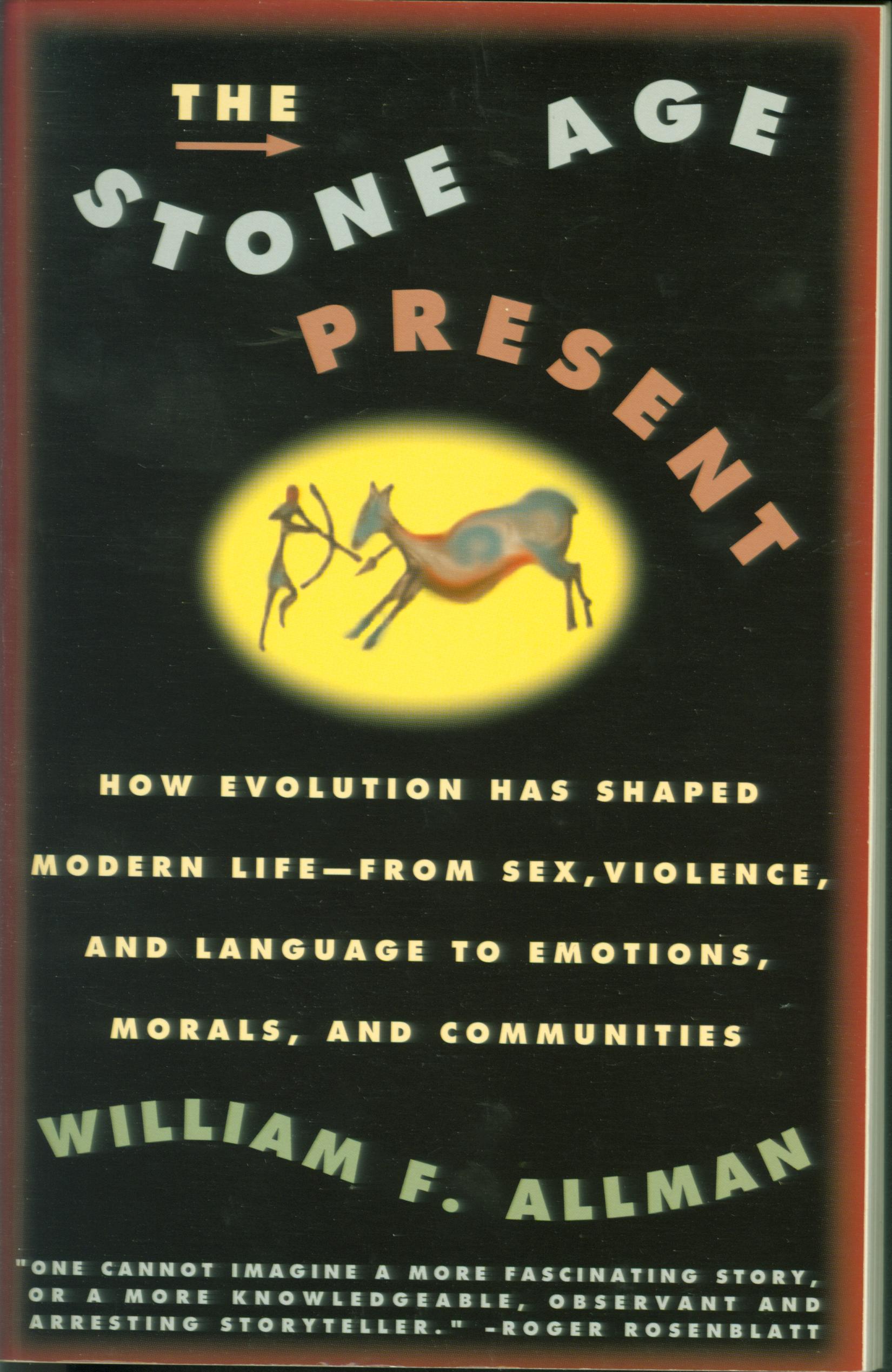 THE STONE AGE PRESENT--paper. by William F. Allman.
THE STONE AGE PRESENT--paper. by William F. Allman.
How evolution has shaped modern life--from sex, violence,
and language to emotions, morals, and communities. A speculation is that many of the problems and situations humans face in contemporary life have their roots in our "stone-age minds" that haven't caught up with today. Our attitudes and reactions thus are still playing out the evolutionary legacy of our ancient ancestors. 288 pages, index.
Inventory =1. ISBN: 0-684-80455-7. 1994. Order #: SISC6110 paper$12.00.
#THE TERRITORIAL IMPERATIVE: a personal inquiry into the animal origins of property and nations. Ardrey.
Inventory =1. ISBN: . Order #: MISC3522 cloth$12.95.
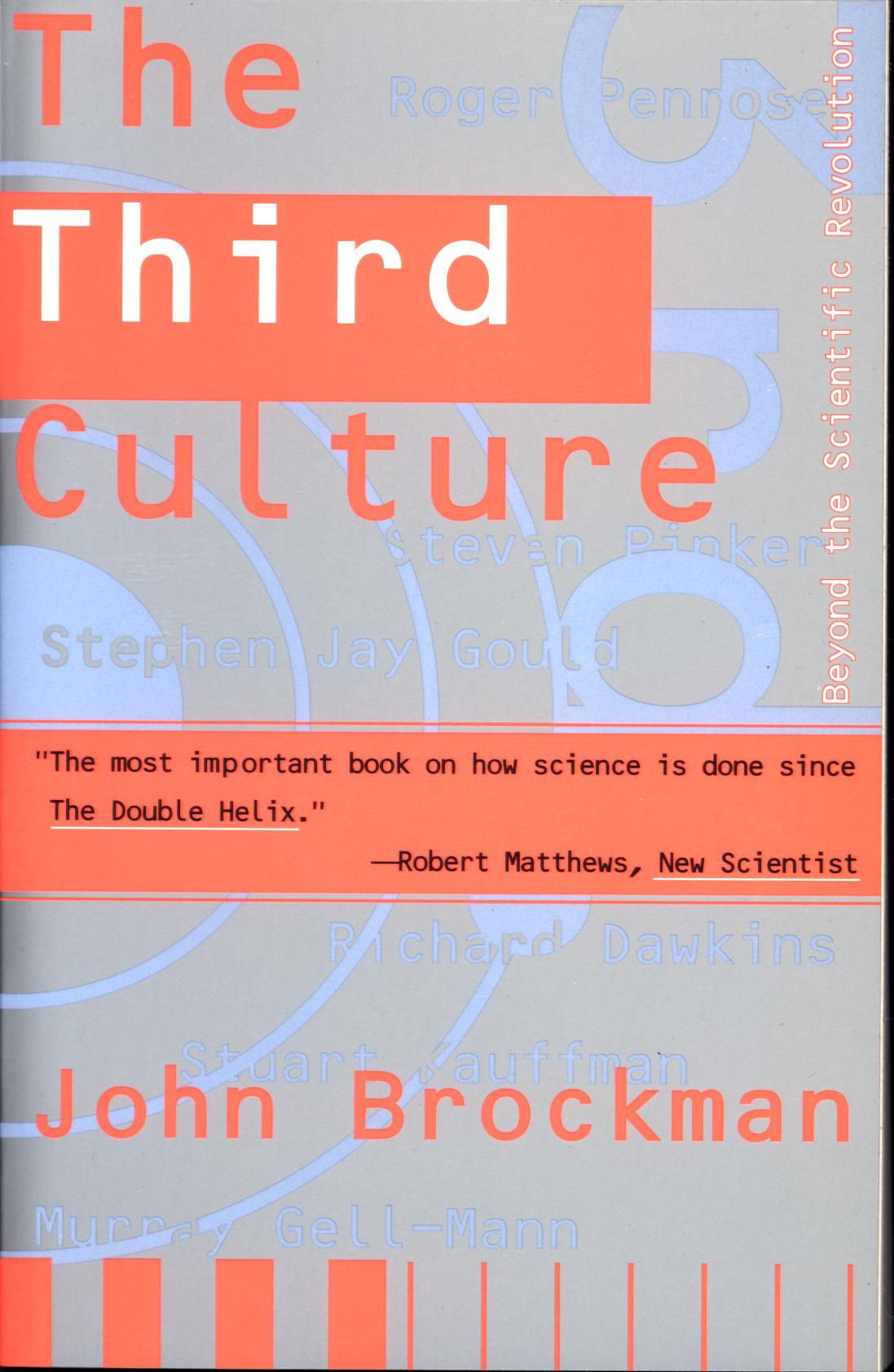 THE THIRD CULTURE: beyond the scientific revolution. by John Brockman.
THE THIRD CULTURE: beyond the scientific revolution. by John Brockman.
How literary intellectuals and
scientists are emerging into a third culture with science bridging the intellectual landscape. Author's thesis is that science is emerging as the intellectual center of our society and weaves together the voices of influential scientific figures on the implications of evolution, how the mind works, and the new sciences of complexity. 413 pages.
Inventory =1. ISBN: 0-684-8344-6. 1996. Order #: SISC8806 paper$14.00
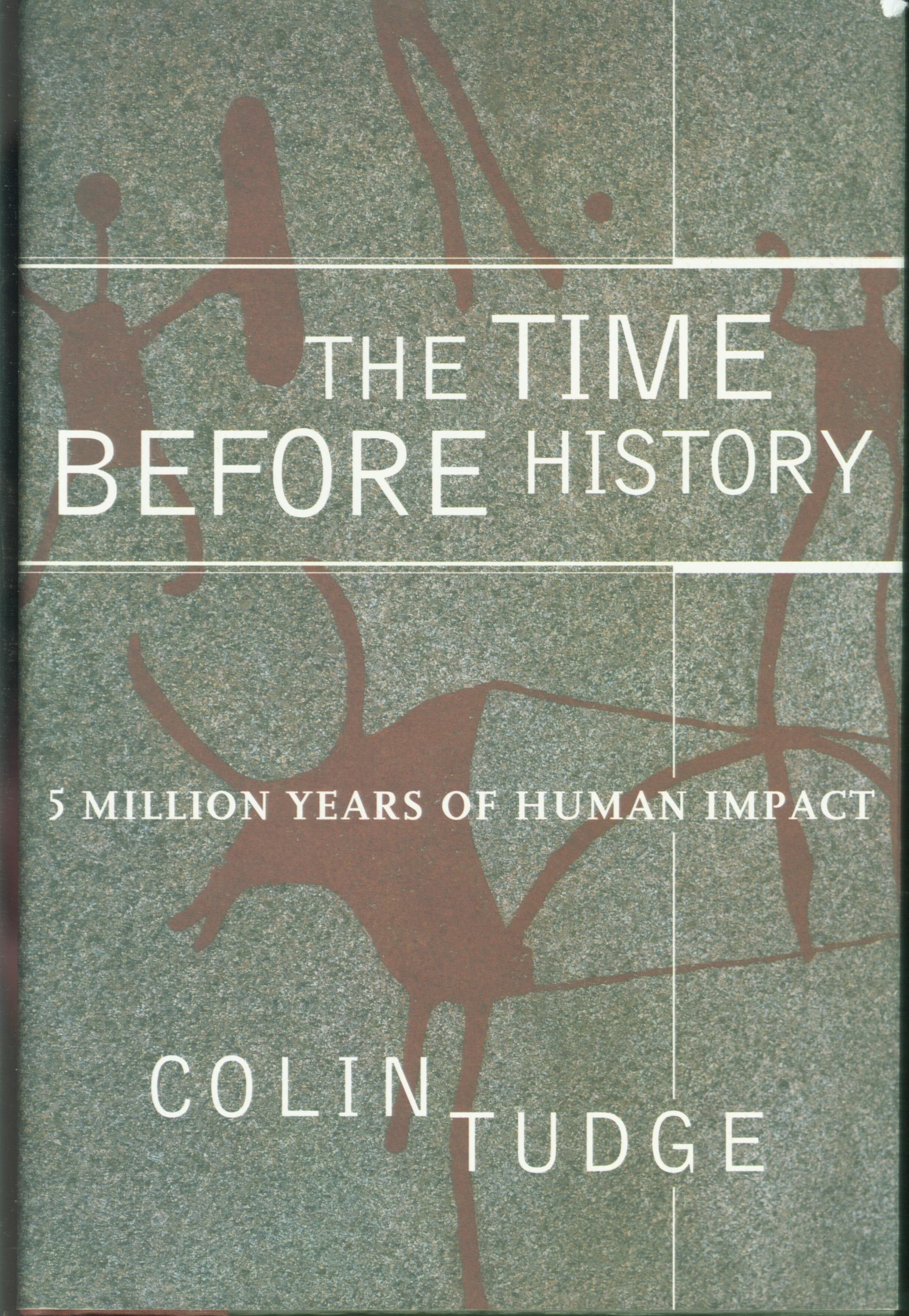 THE TIME BEFORE HISTORY: 5 million years of human impact. by Colin Tudge.
THE TIME BEFORE HISTORY: 5 million years of human impact. by Colin Tudge.
Man's past from 5 million
years ago to 10,000 years ago, when history began. During this lengthy time period there have been ice ages; the continuing clash of continents; expanding diversity of mammal, birds, and modern reptiles; and the origination of man in a small area of Africa to invade most of the world. There is importance in becoming aware of the meaning of time to understand these events.366 pages.
Inventory =1. ISBN: 0-684-80726-2. Order #: SISC7771 cloth$27.50.
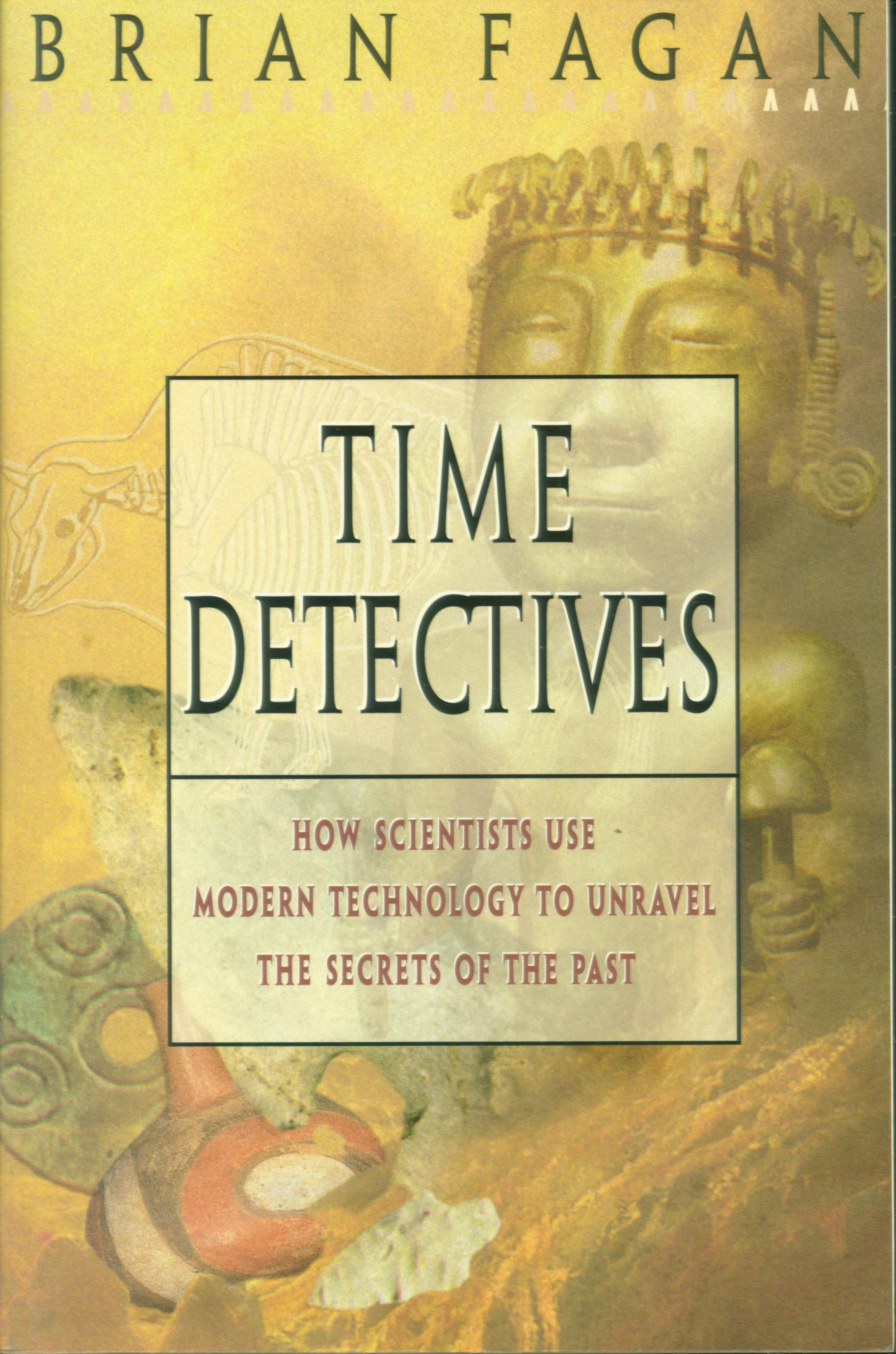 TIME DETECTIVES: how archaeologists use technology to recapture the past--paper. Fagan.
TIME DETECTIVES: how archaeologists use technology to recapture the past--paper. Fagan.
How scientists use modern technology with minute clues to unravel the secrets of
the past. Archaeological detective stories, reconstructing ancient diets from bone collagen remains or describing millenia-old landscapes from fossilized seeds and grains. Sites considered range over15,000 years of human history--from long before the pharaohs to Mayan cities, Bronze-age shipwrecks, and even excavated gardens of Annapolis, Maryland. Maps, illustrations, 288 pages, index.
Inventory =1. ISBN: 0-684-81828-0. 1995. Order #: SISC1565 paper$14.00.
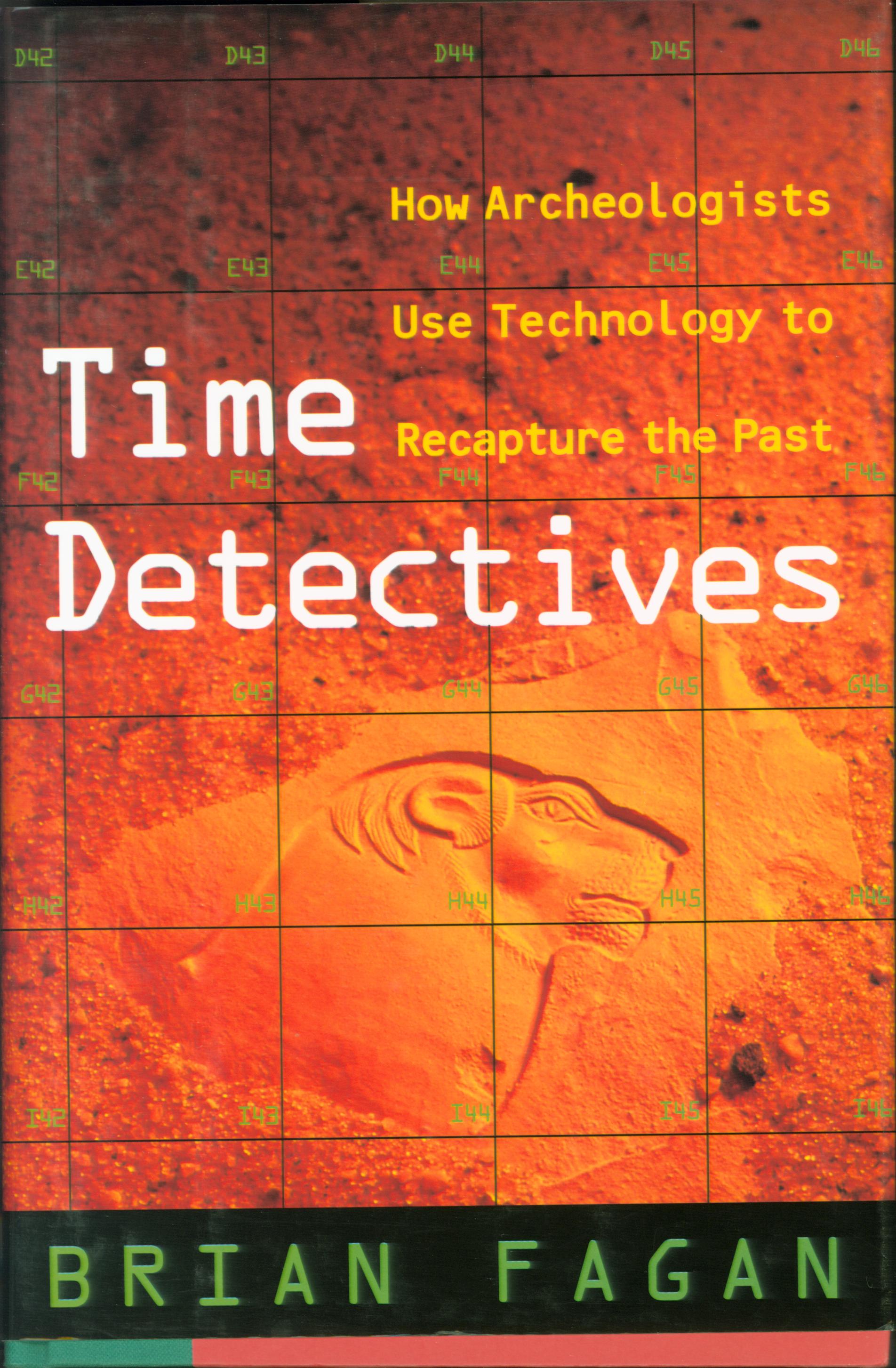 TIME DETECTIVES: how archaeologists use technology to recapture the past--cloth. Fagan.
TIME DETECTIVES: how archaeologists use technology to recapture the past--cloth. Fagan.
How scientists use modern technology with minute clues to unravel the secrets of
the past. Archaeological detective stories, reconstructing ancient diets from bone collagen remains or describing millenia-old landscapes from fossilized seeds and grains. Sites considered range over15,000 years of human history--from long before the pharaohs to Mayan cities, Bronze-age shipwrecks, and even excavated gardens of Annapolis, Maryland. Maps, illustrations, 288 pages, index.
Inventory =1. ISBN: 0-671-79385-3. 1995. Order #: SISC4578 cloth$24.00.
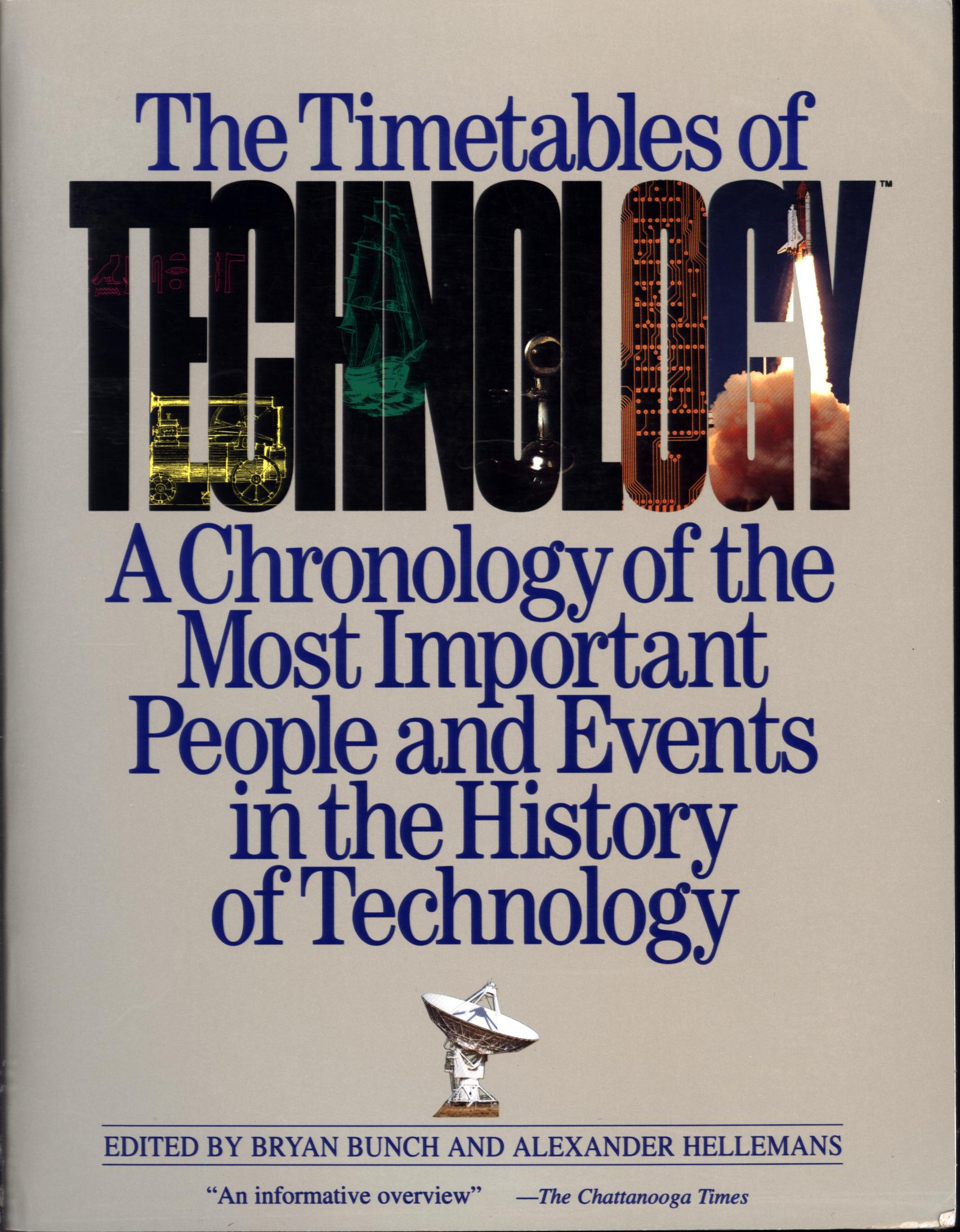 THE TIMETABLES OF TECHNOLOGY: a chronology of the most important people and events in the history of technology--paper. by Bryan Bunch & Alexander Hellemans.
THE TIMETABLES OF TECHNOLOGY: a chronology of the most important people and events in the history of technology--paper. by Bryan Bunch & Alexander Hellemans.
How the modern technological world came to be,
organized along time lines, with profiles of important figures and essays on key subjects and trends. Contains over 5,000 entries organized by fields, including architecture and construction, communication, entry, food and agriculture, materials, medical technology, tools and devices and transportation. Includes supplemental essays on the first machines, city life inventing writing and the alphabet cathedrals, gunpowder and guns in East and West, the age of canals, color and chemistry, first generation computers, and communicating with light. A valuable reference for libraries, schools, and universities and for anyone curious about how our modern world came to be. 490 large-format pages, indexes of names and subjects. See sample pages, illustrations.
Inventory =1. ISBN: 0-671-88767-X. 1993. Order #: SISC8581 paper$20.00. See SISC0993 for cloth cover edition.
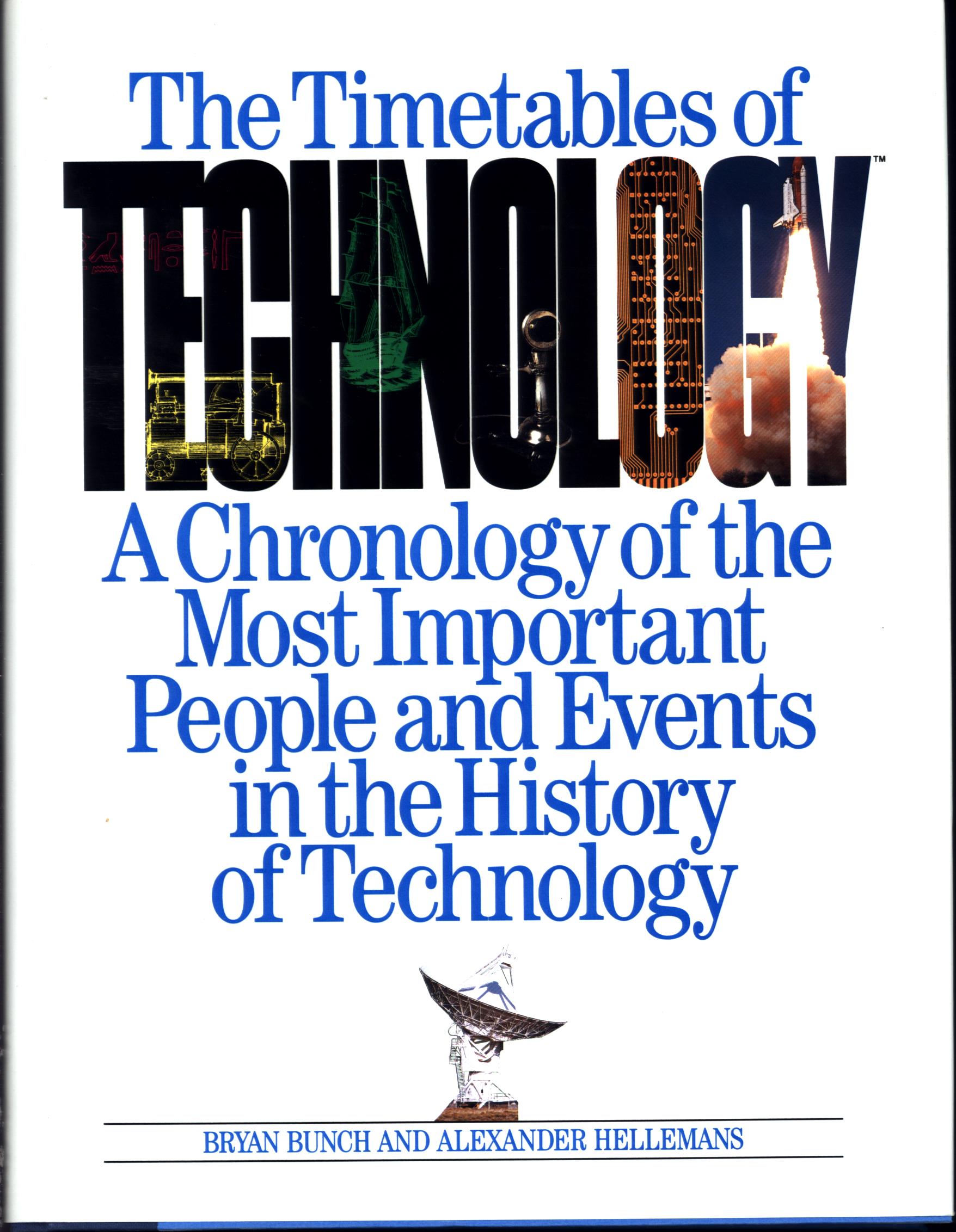 THE TIMETABLES OF TECHNOLOGY: a chronology of the most important people and events in the history oftechnology--cloth.
by Bryan Bunch & Alexander Hellemans.
THE TIMETABLES OF TECHNOLOGY: a chronology of the most important people and events in the history oftechnology--cloth.
by Bryan Bunch & Alexander Hellemans.
How the modern technological world came to be,
organized along time lines, with profiles of important figures and essays on key subjects and trends. Contains over 5,000 entries organized by fields, including architecture and construction, communication, entry, food and agriculture, materials, medical technology, tools and devices and transportation. Includes supplemental essays on the first machines, city life inventing writing and the alphabet cathedrals, gunpowder and guns in East and West, the age of canals, color and chemistry, first generation computers, and communicating with light. A valuable reference for libraries, schools, and universities and for anyone curious about how our modern world came to be. 490 large-format pages, indexes of names and subjects. See sample pages
Inventory =1. ISBN: 0-671-76918-9. 1993. Order #: SISC0993 cloth w/dust jacket$35.00. See SISC8581 for paper cover edition.
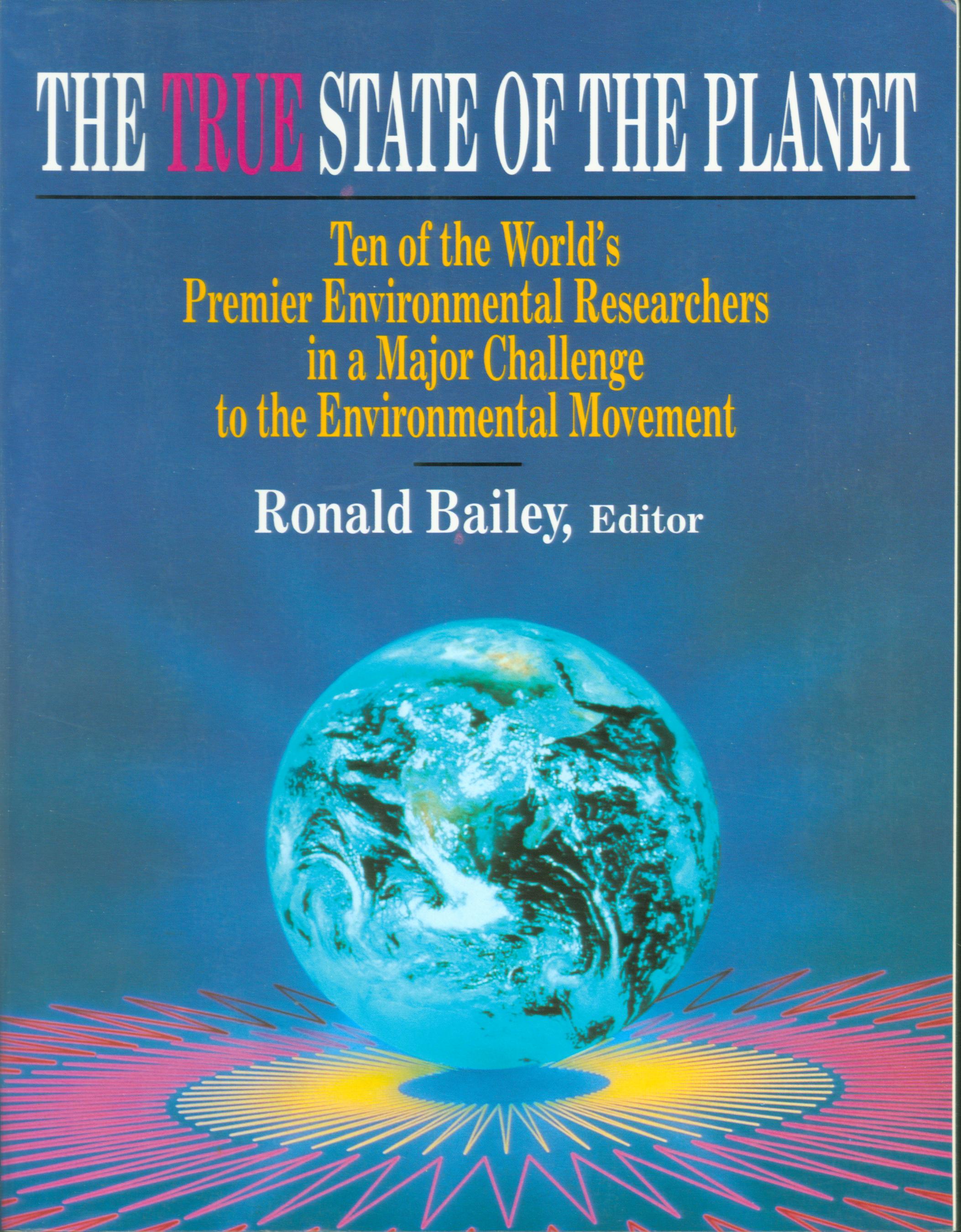 THE TRUE STATE OF THE PLANET: ten of the world's premier environmental researchers in a major challenge
to the environmental movement. by Ronald Bailey. Confronts some fundamental
tenets of environmentalists, noting that overpopulation, food, global warming, and pesticides may be less critical at least currently than the problem of fisheries, fresh water, and third-world pollution. Cites data and uses analyses with many references to research studies. Illustrated, 472 pages, index.
THE TRUE STATE OF THE PLANET: ten of the world's premier environmental researchers in a major challenge
to the environmental movement. by Ronald Bailey. Confronts some fundamental
tenets of environmentalists, noting that overpopulation, food, global warming, and pesticides may be less critical at least currently than the problem of fisheries, fresh water, and third-world pollution. Cites data and uses analyses with many references to research studies. Illustrated, 472 pages, index.
Inventory =1. ISBN: 0-02-874010-6. 1995. Order #: SISC6177 paper$15.00.
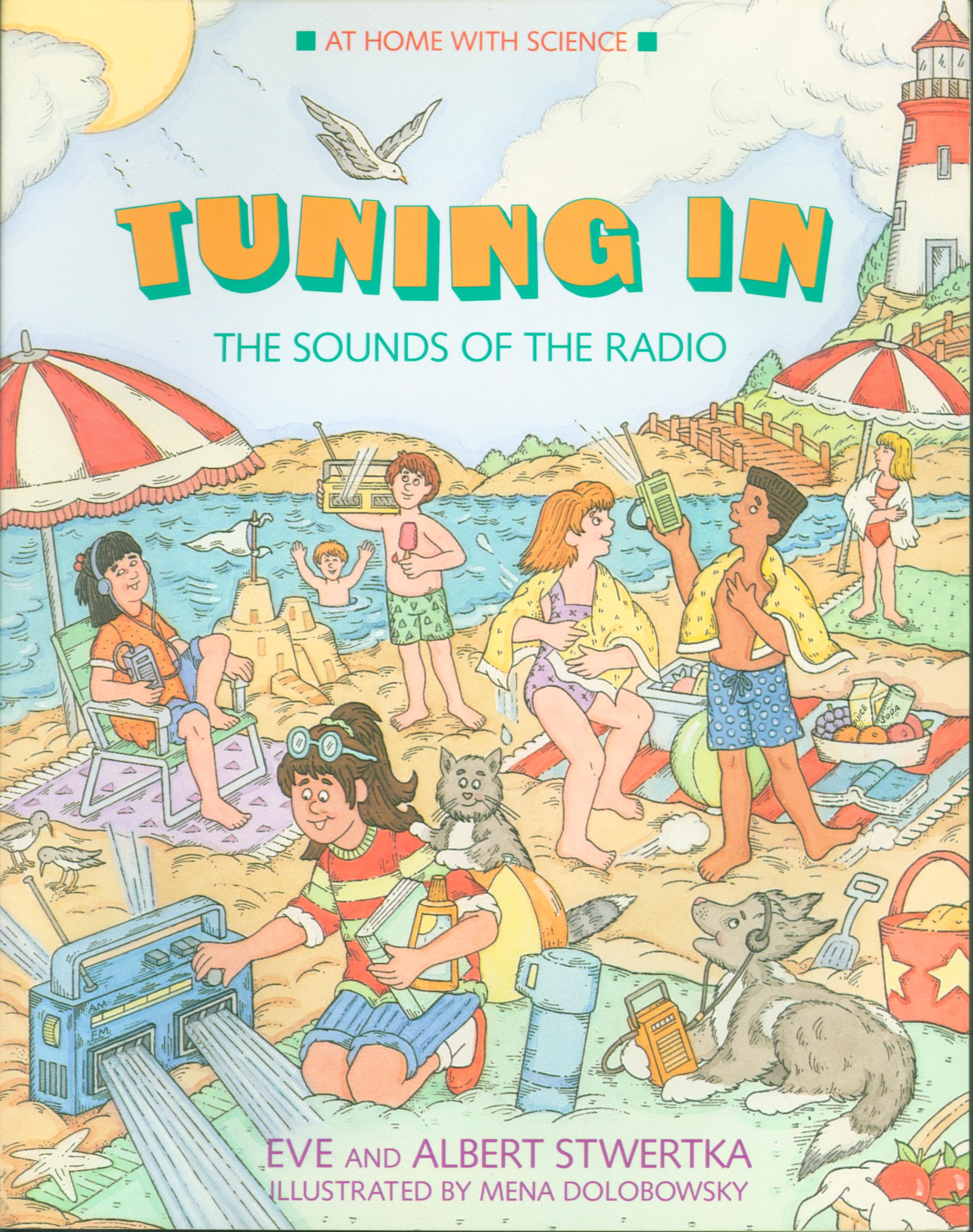 TUNING IN THE SOUNDS OF THE RADIO. by Eve and Albert Stwertka.
TUNING IN THE SOUNDS OF THE RADIO. by Eve and Albert Stwertka.
For younger readers, explores the workings of the
radio--how sound signals radiate in all directions and transmit all the different kinds of music, talk, and languages you can hear. Explains how invisible waves of energy are created, transmitted and then received miles away. What the numbers on a dial mean. Drawings, 40 pages, index.
Inventory =1. ISBN: 0-671-69466-9. 1992. Order #: SISC7054 paper$5.95.
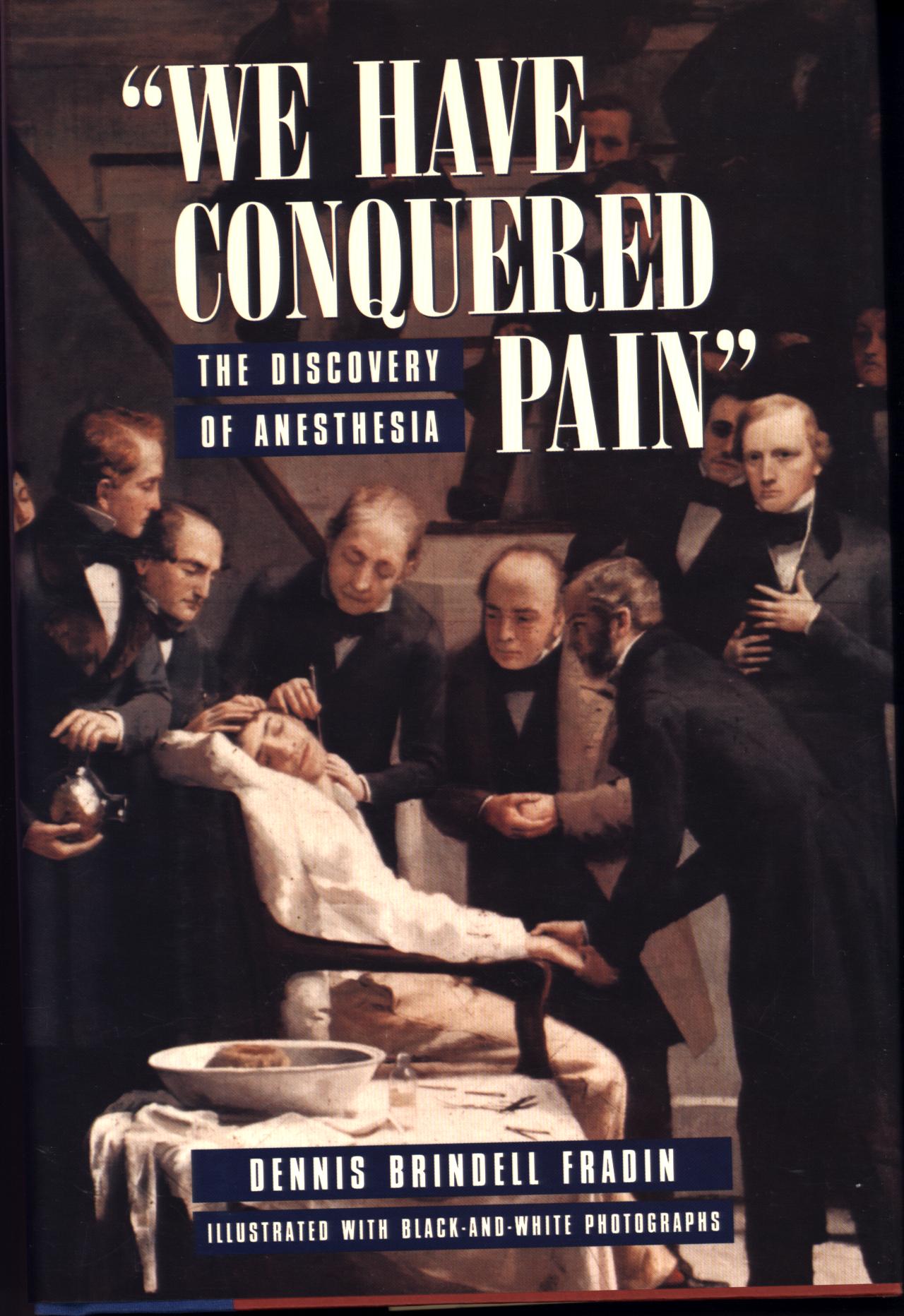 "WE HAVE CONQUERED PAIN": the discovery of anesthesia. by Dennis Brindell Fradin.
"WE HAVE CONQUERED PAIN": the discovery of anesthesia. by Dennis Brindell Fradin.
Until about 175 years ago, the surgical operating room was a torture chamber for there was no way to prevent pain from the surgeon's knives, but four American doctors then each developed anesthetics that put people to sleep. This has been deemed the greatest medical breakthrough ever but a battle ensued over who should get credit for the discovery and payments from it, still unresolved. Black-and-white photographs, bibliography,
148 pages, index.
Inventory = 1. ISBN: 0-689-50587-6. 1996. Junior Library Guild. Order#: SISC8805 cloth$16.00.
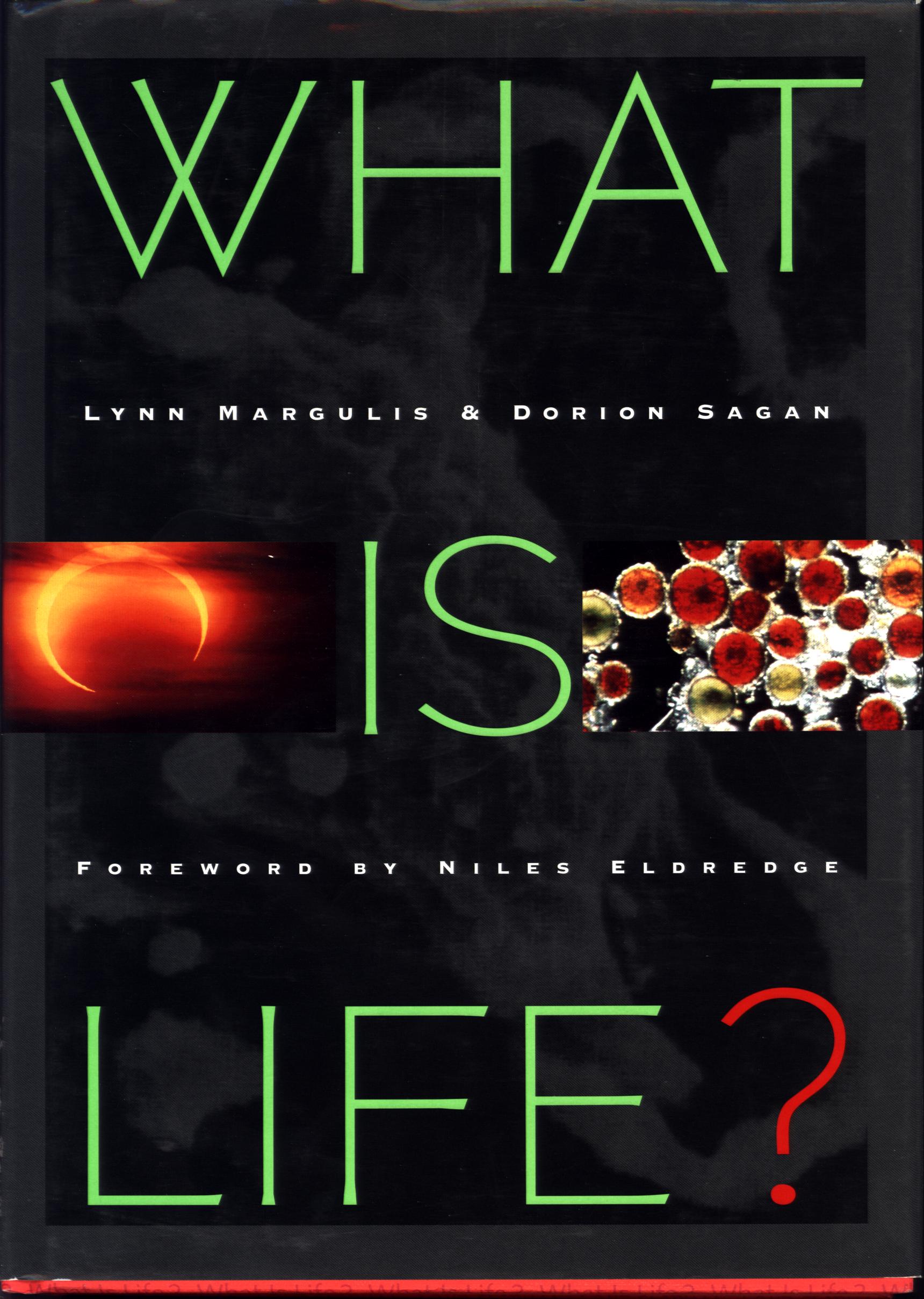 WHAT IS LIFE? by Lynn Margulis & Dorian Sagan.
WHAT IS LIFE? by Lynn Margulis & Dorian Sagan.
A new and spirited explanation of the emergent levels of biological organization. Delves into the origin of life and of Earth as a superorganism, the biological connection between programmed death and sex, the symbiotic evolution of the five organic kingdoms (bacteria, protoctists, animals, fungi, and plants). More than 4 billion years ago life on Earth began to eventually evolve into human form. Color photos, 207 large-format pages. See sample pages, illustrations.
Inventory =0. ISBN: 0-684-81087-5. 1995. Order #: SISC6108 cloth w/dust jacket$40.00. SOLD OUT 6/14/23
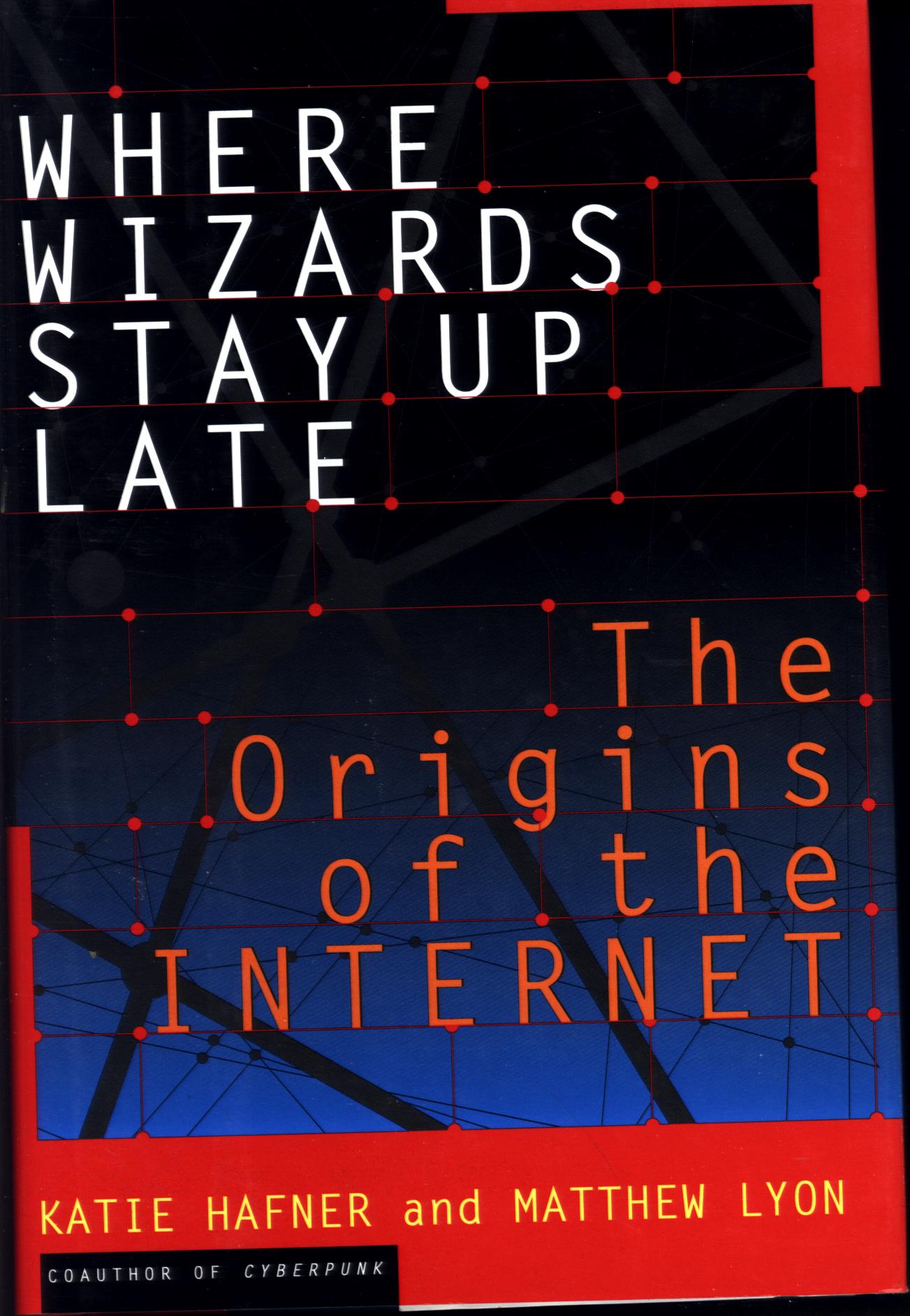 WHERE WIZARDS STAY UP LATE: the origins of the internet. by Katie Hafner & Matthew Lyon.
WHERE WIZARDS STAY UP LATE: the origins of the internet. by Katie Hafner & Matthew Lyon.
History of internet communications system, which started out as a way for defense contractors to share information and then communicate with each other. There were 4 initial sites and the whole idea grew from university scientists working rapidly to meet a contract deadline, staying up late. Bibliography, 304 pages, index.
Inventory =1. ISBN: 0-684-81201-0. 1996. Order #: SISC8802 cloth$24.00.
END OF "Science/Technology" PAGE--click for TOP
click ![]() for VistaBooks Outlet Home/Contents or use links in sidebars for other pages
for VistaBooks Outlet Home/Contents or use links in sidebars for other pages
This VISTABOOKS OUTLET "Science/Technology" page last modified May 9, 2025. Did you come here from a link on another website? For latest version of this page, click or copy to your browser: https://www.vistabooksoutlet.com/pages/vbo0scte.html. Copyright © 2026 VistaBooks LLC.
Need help? email. We want you to find what you want to find.
Thanks for looking!